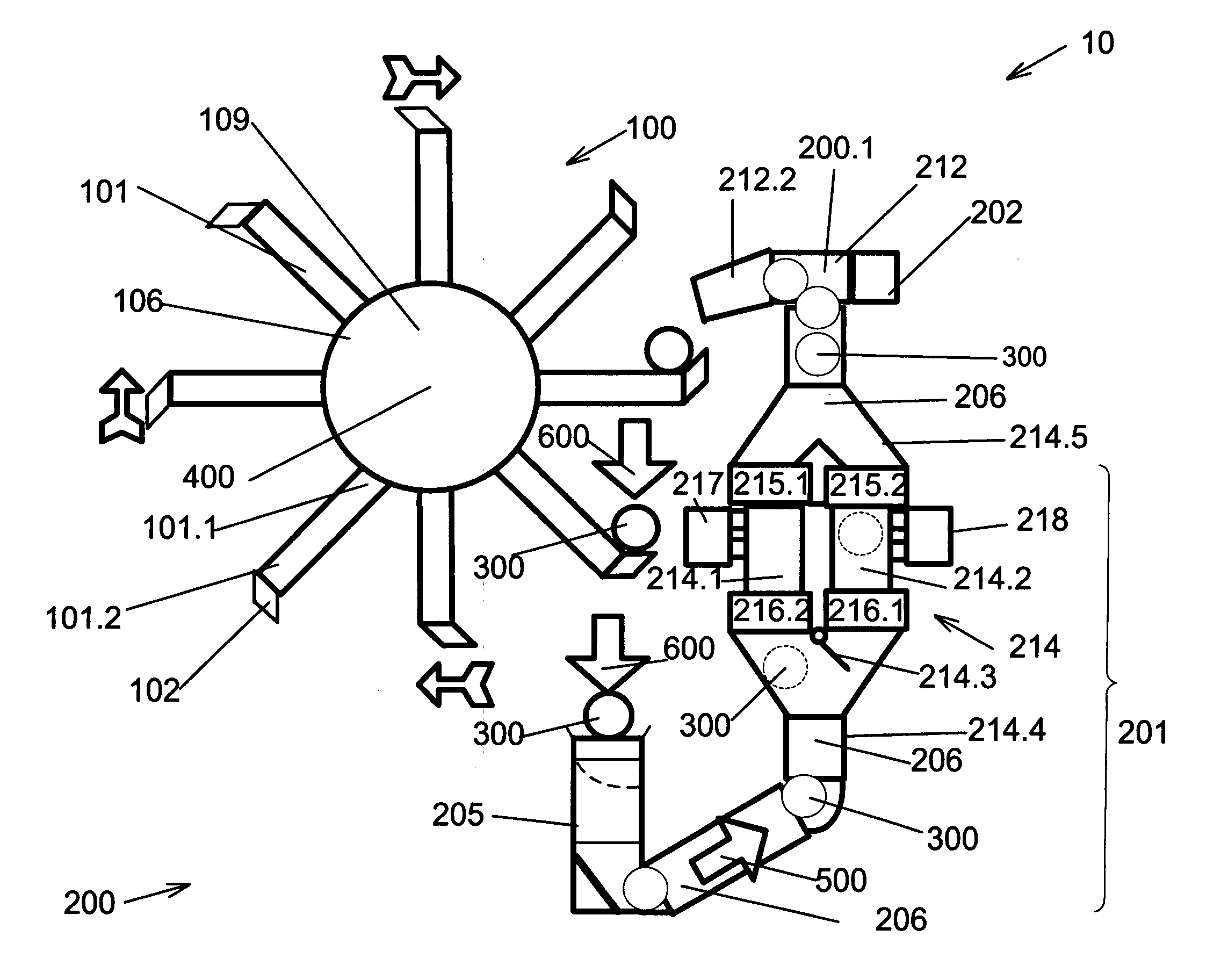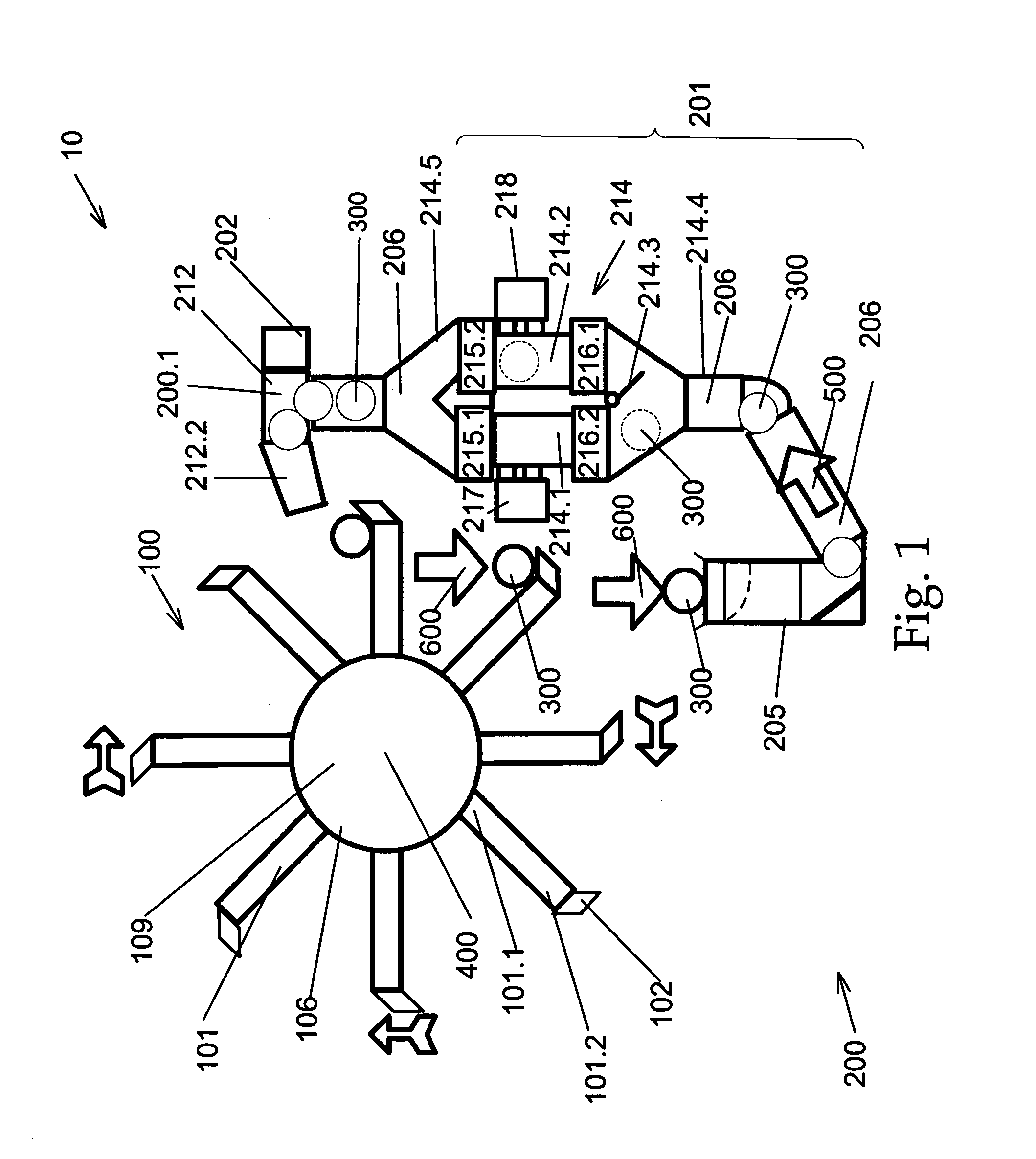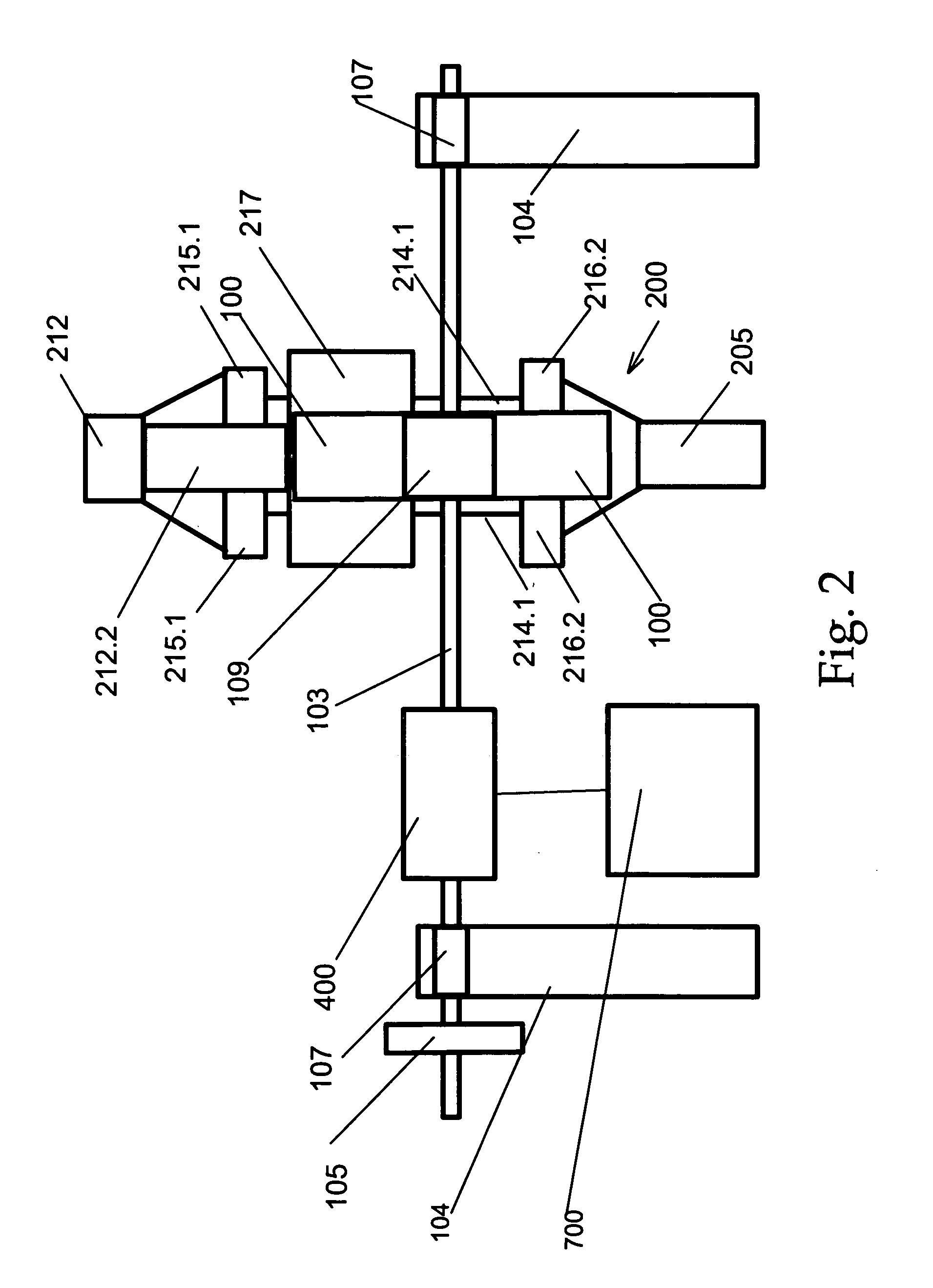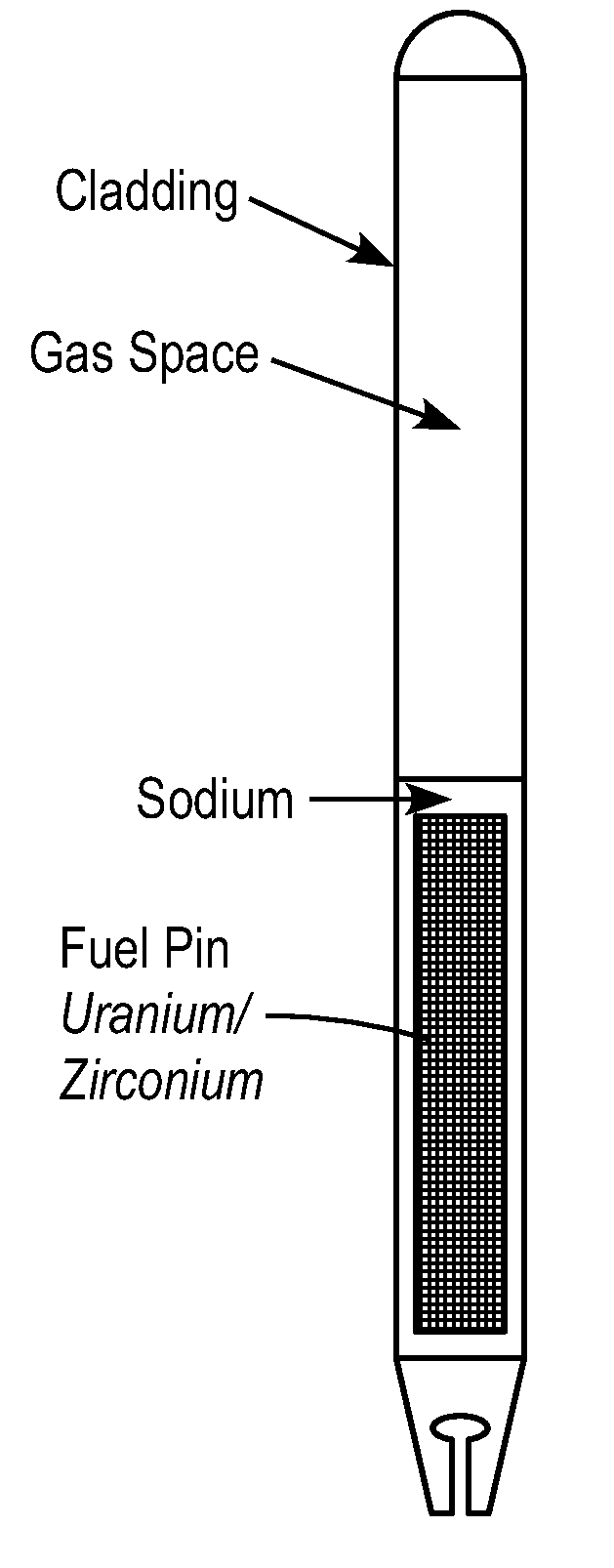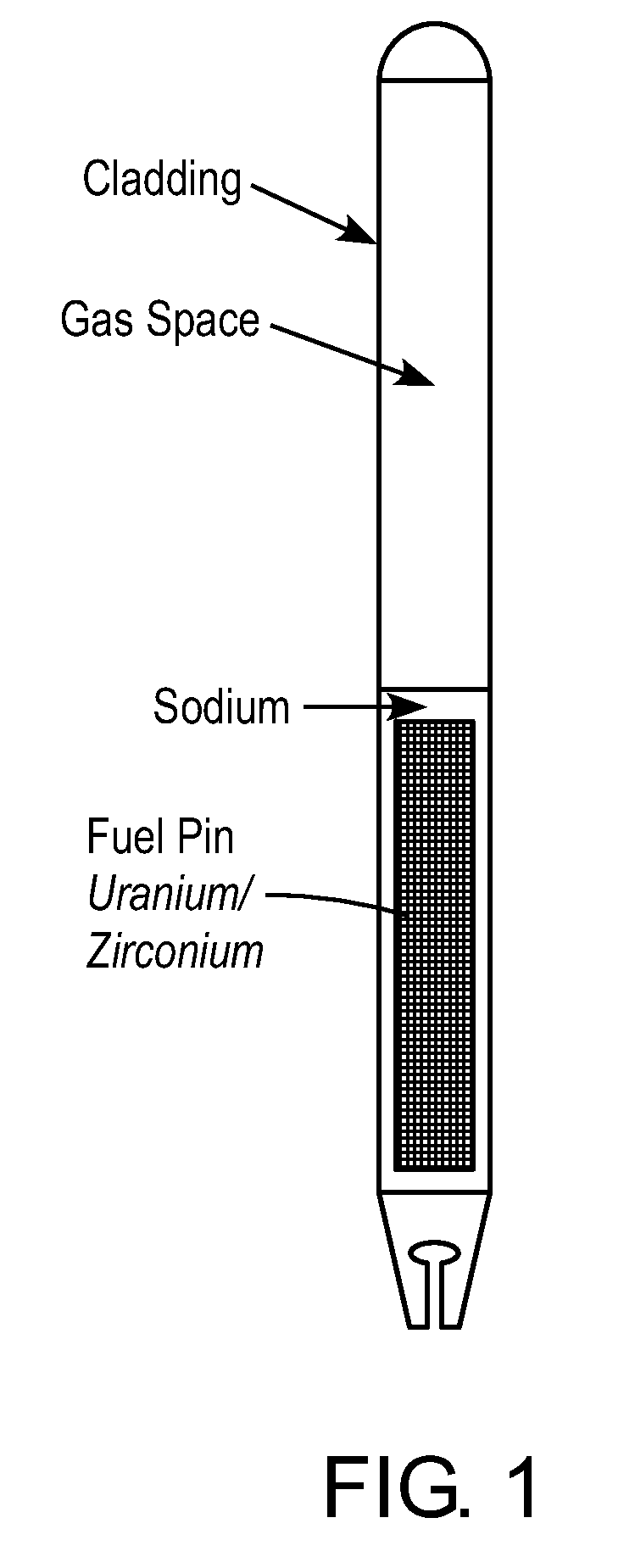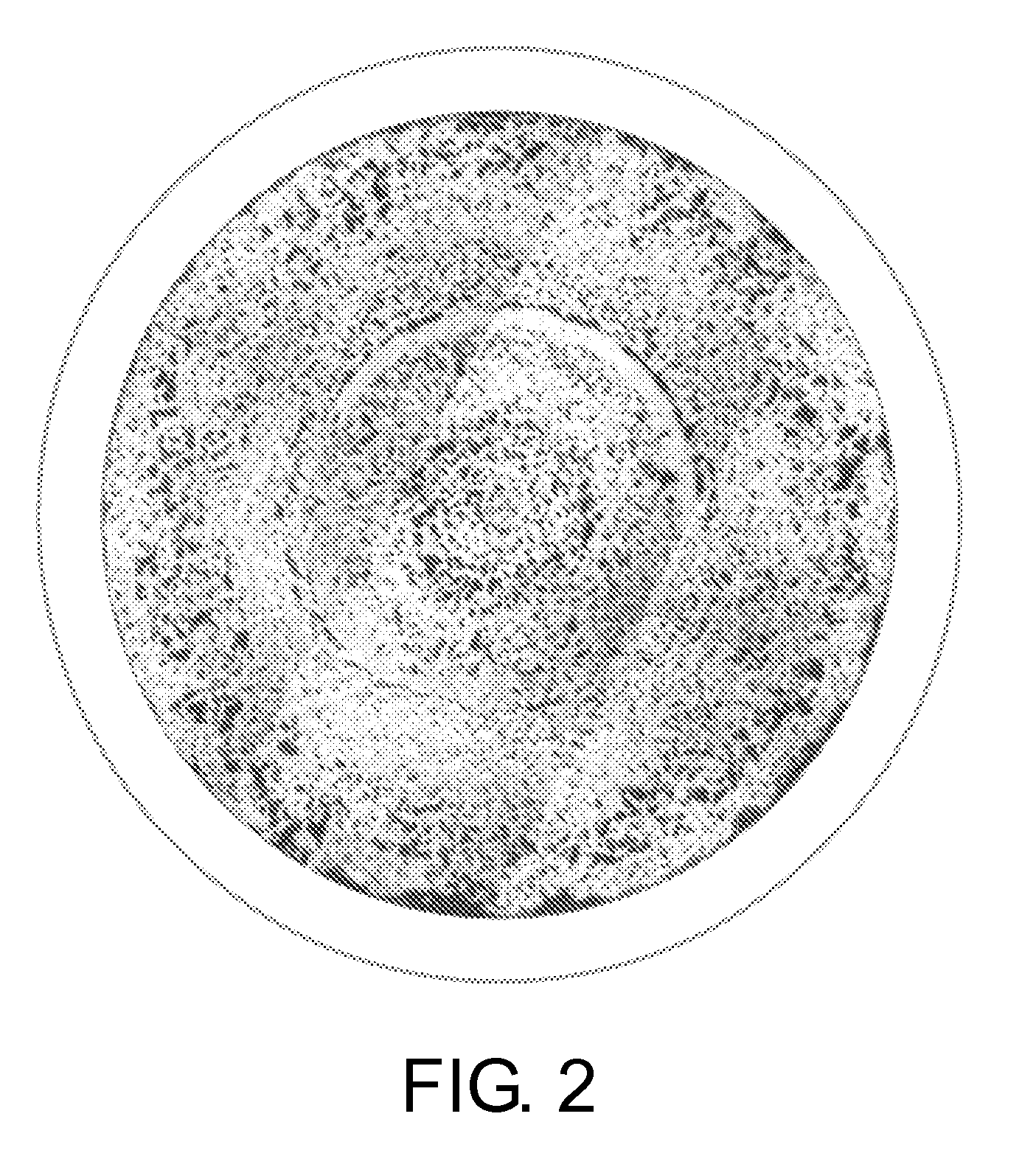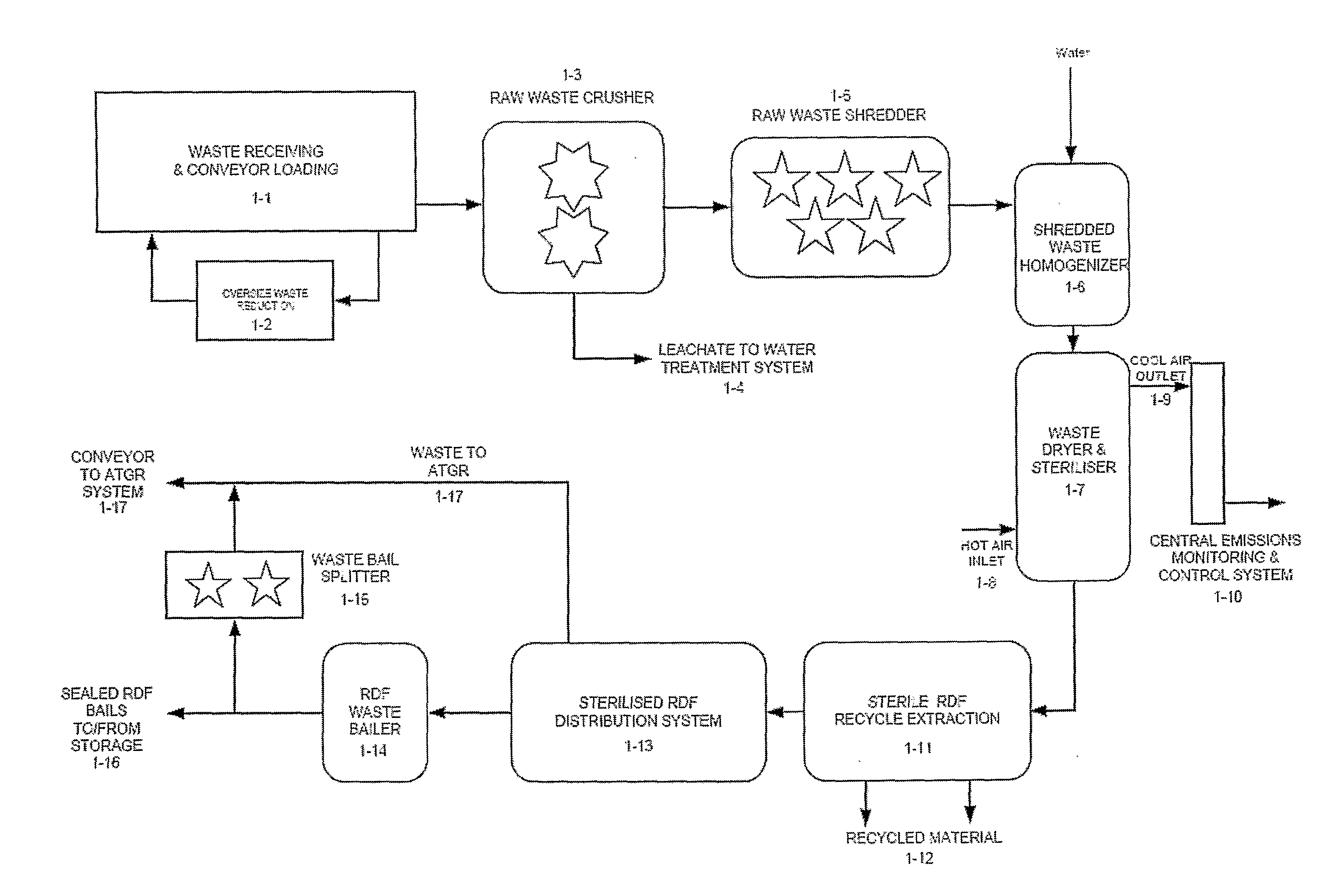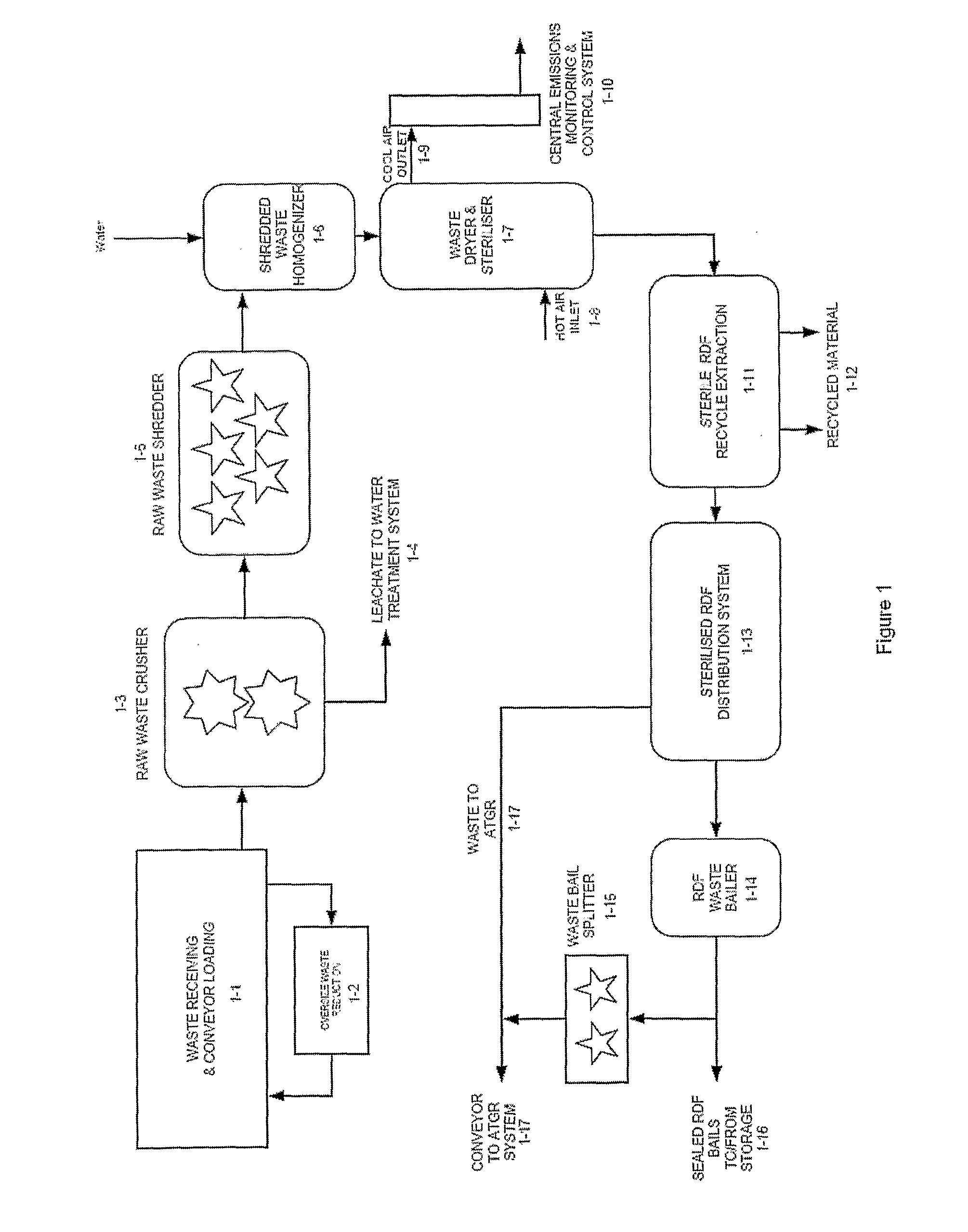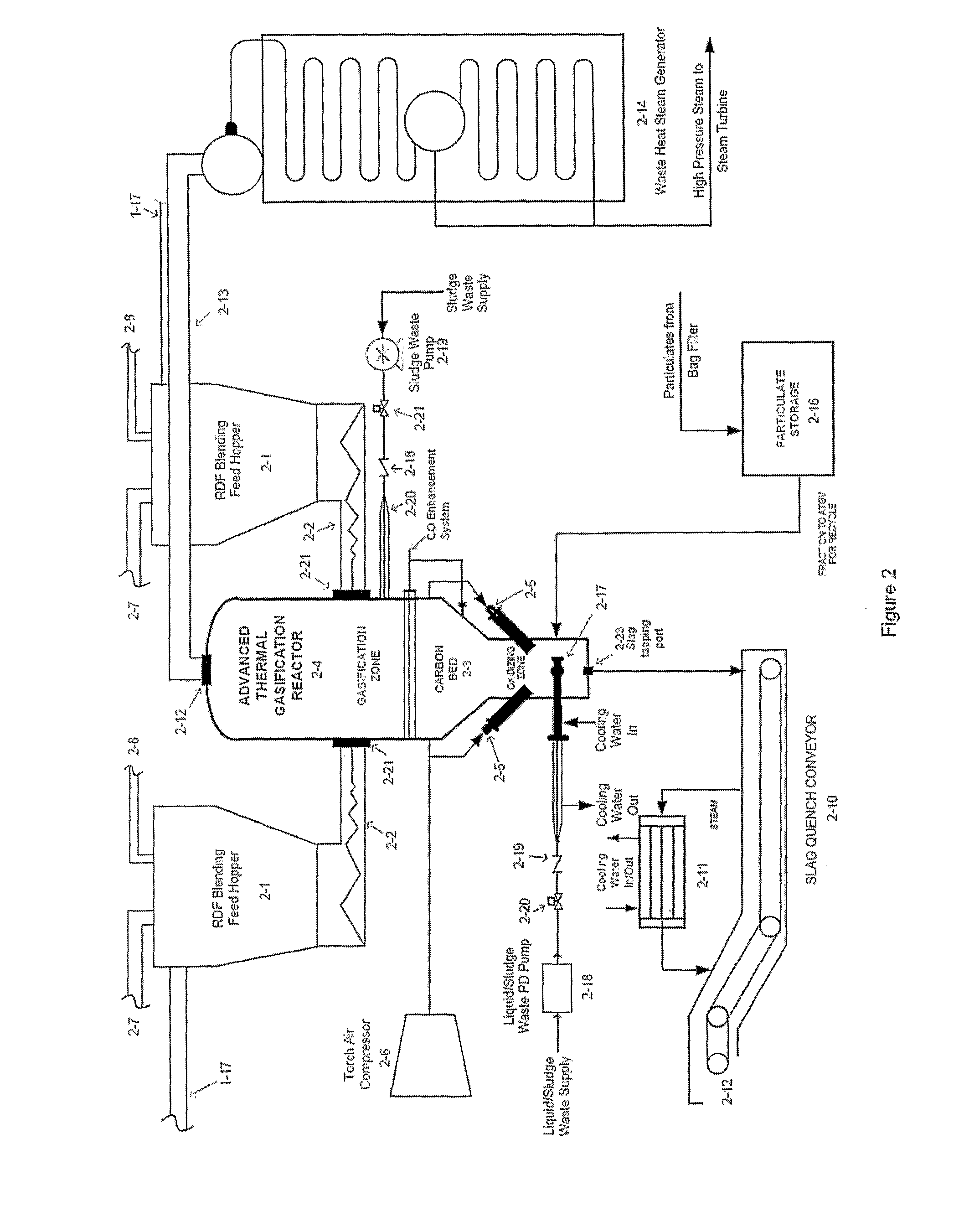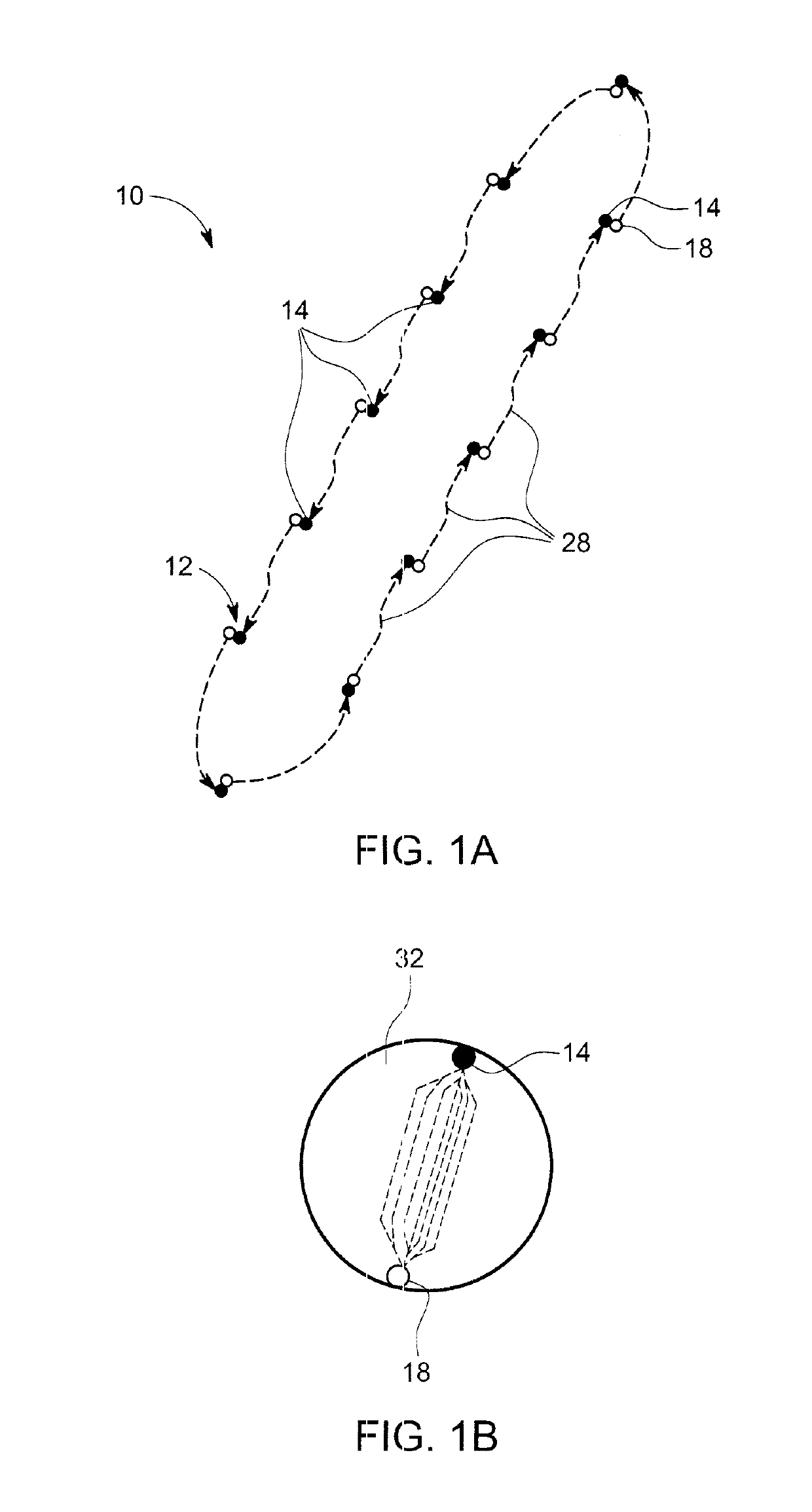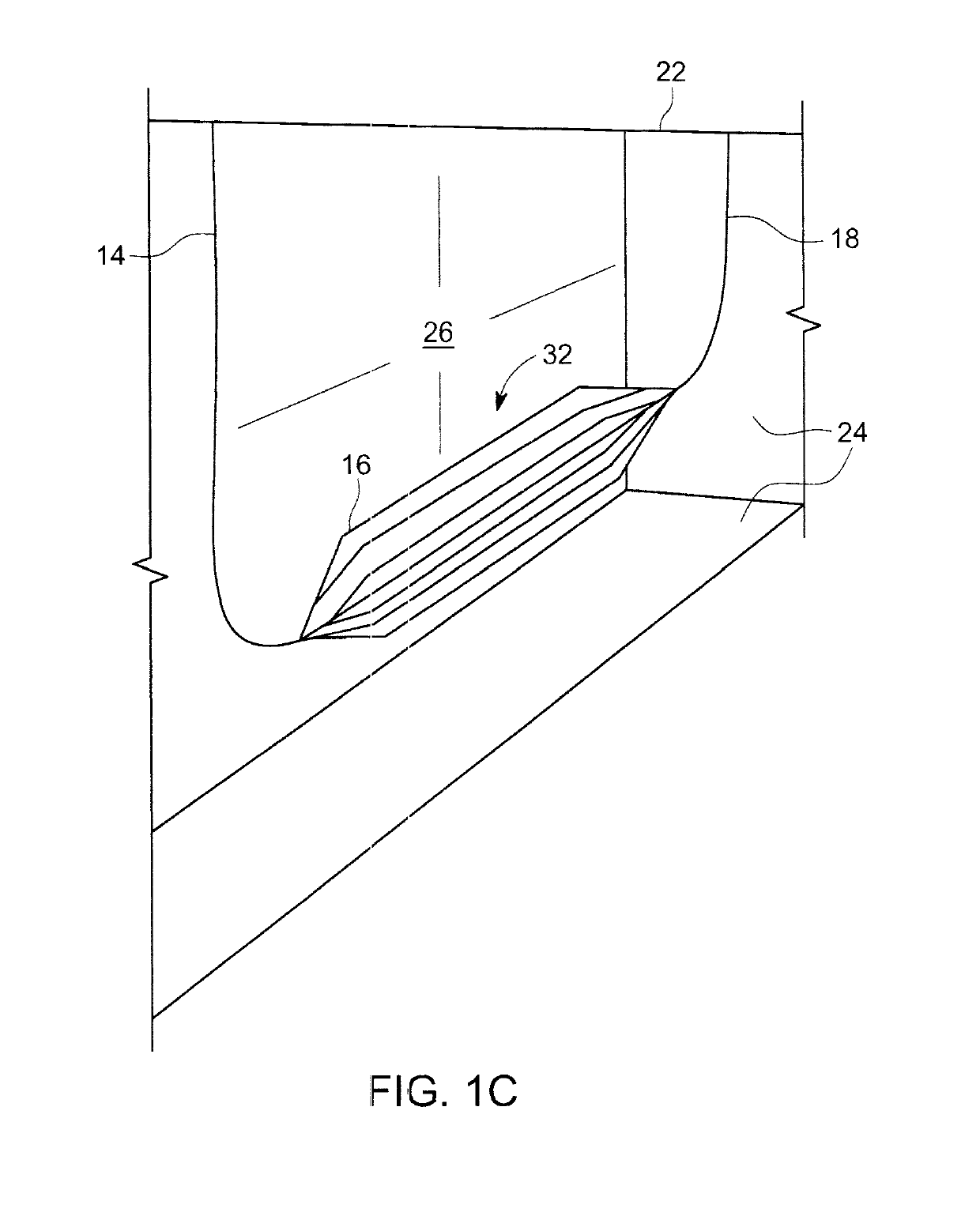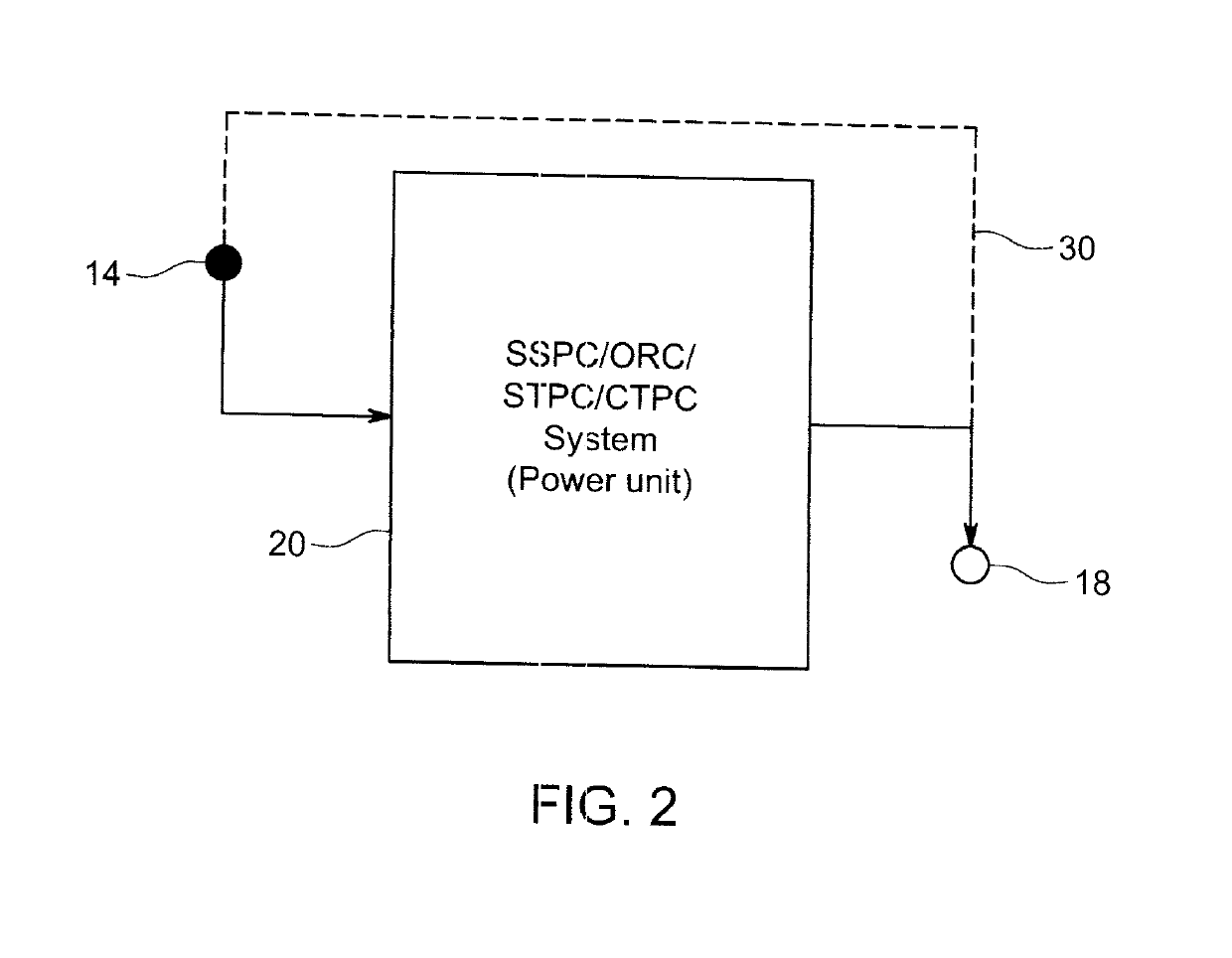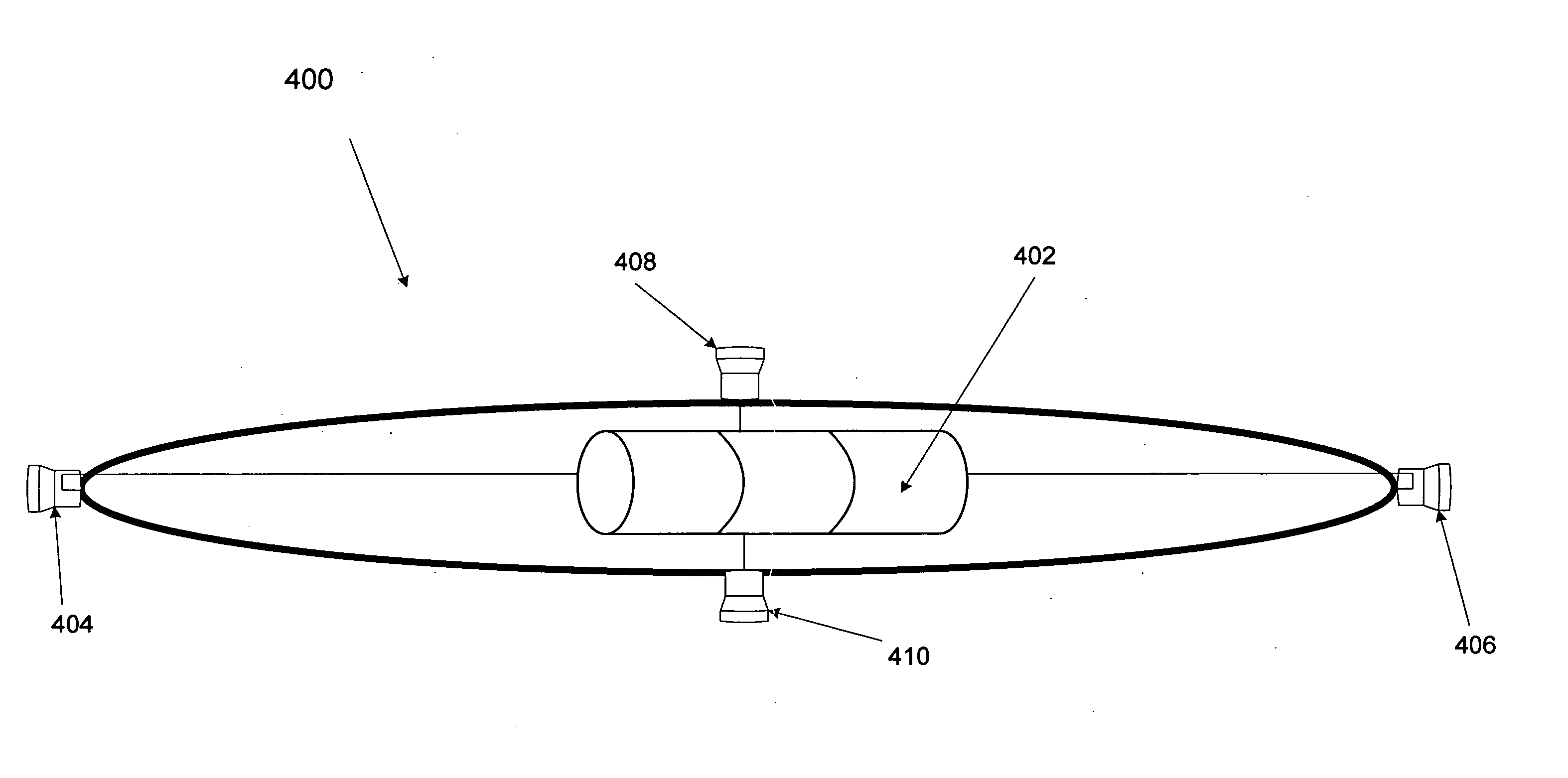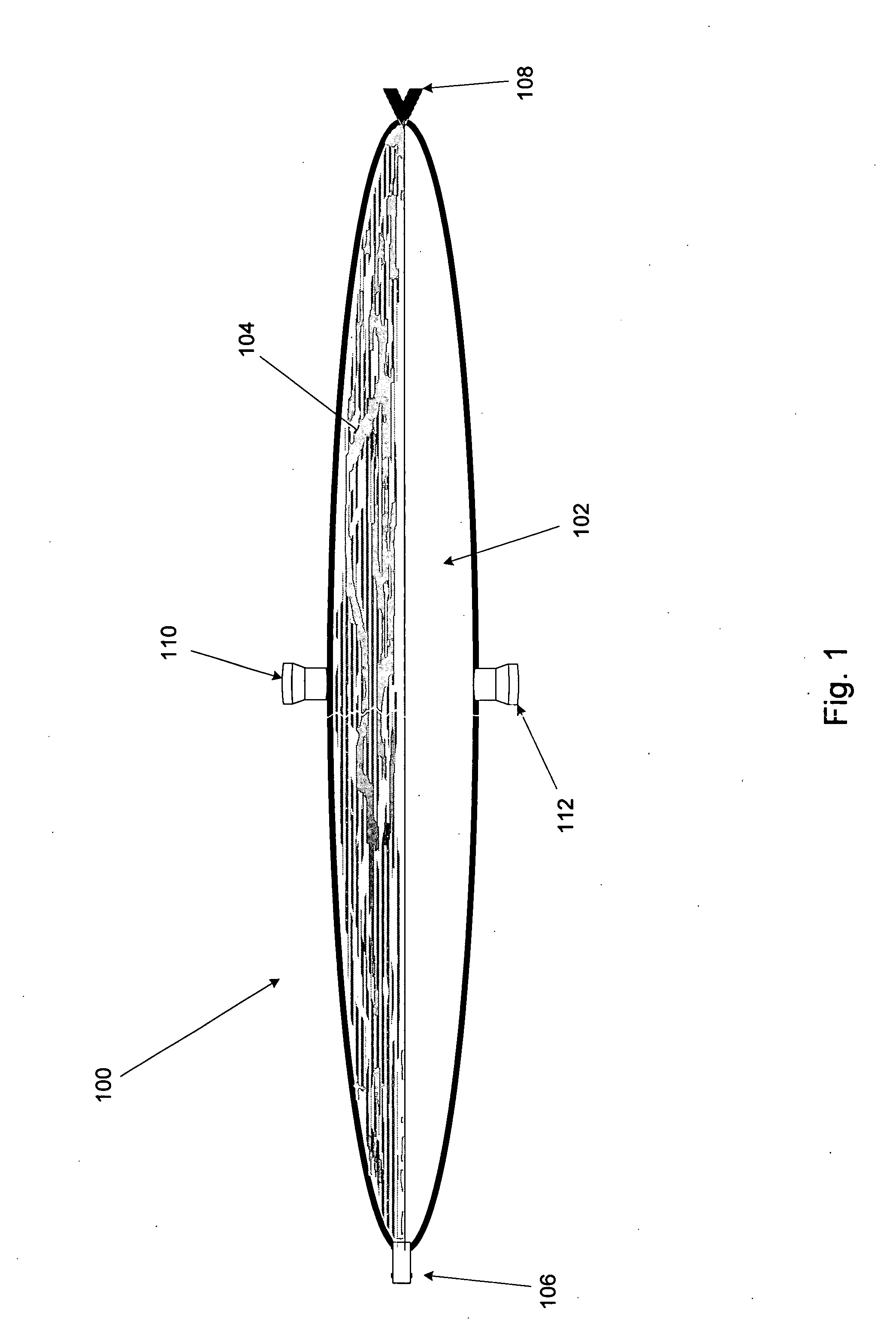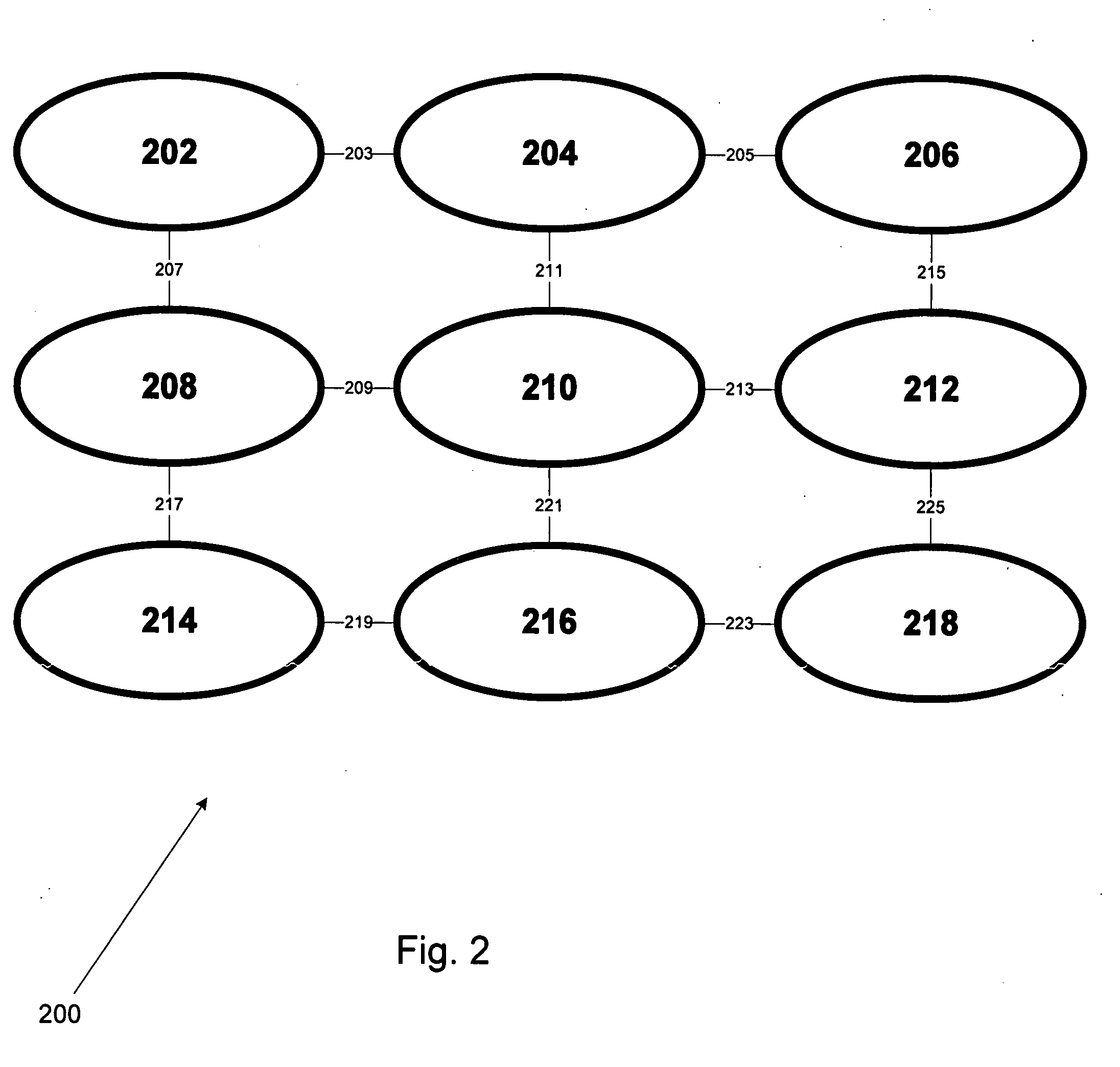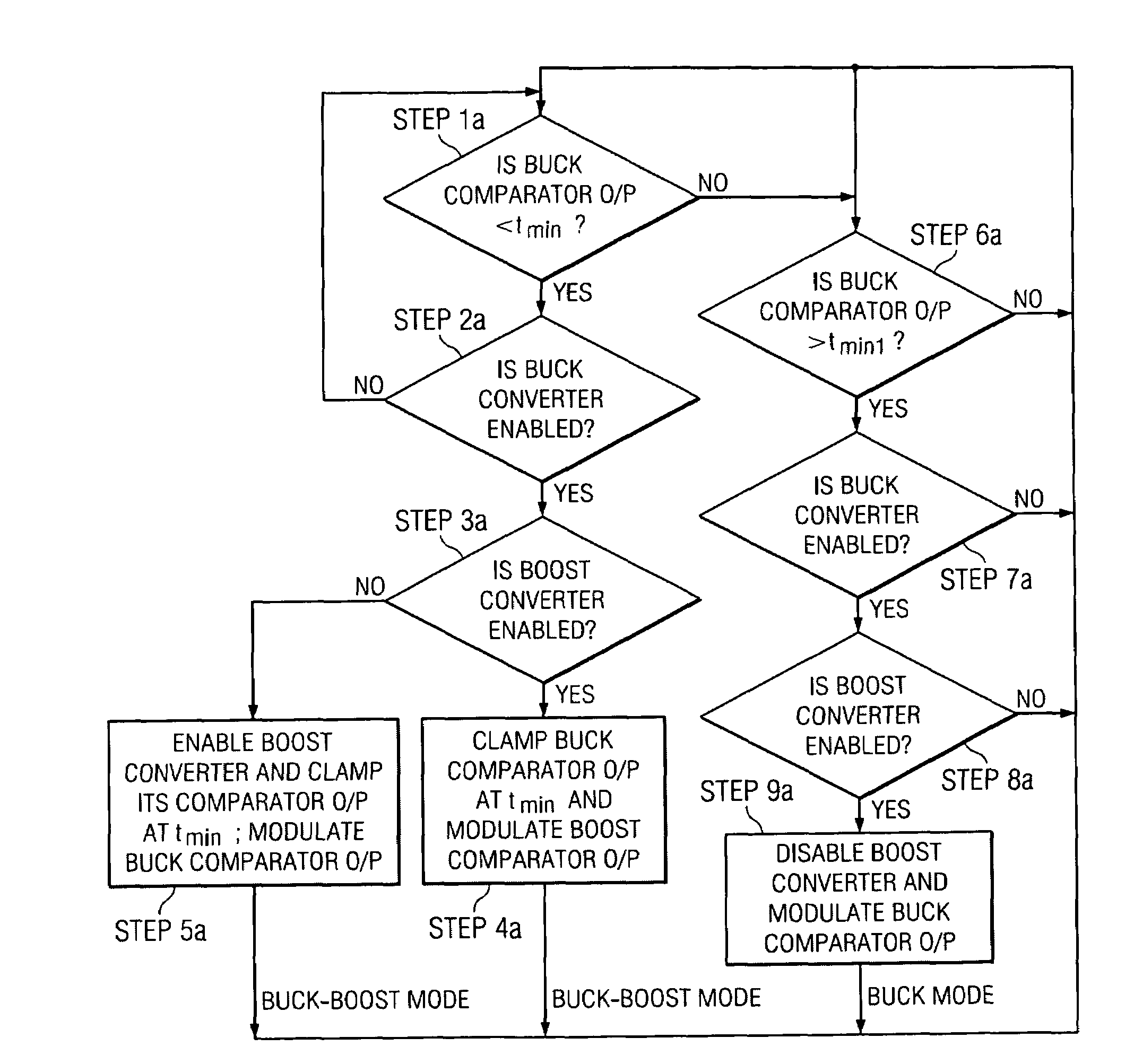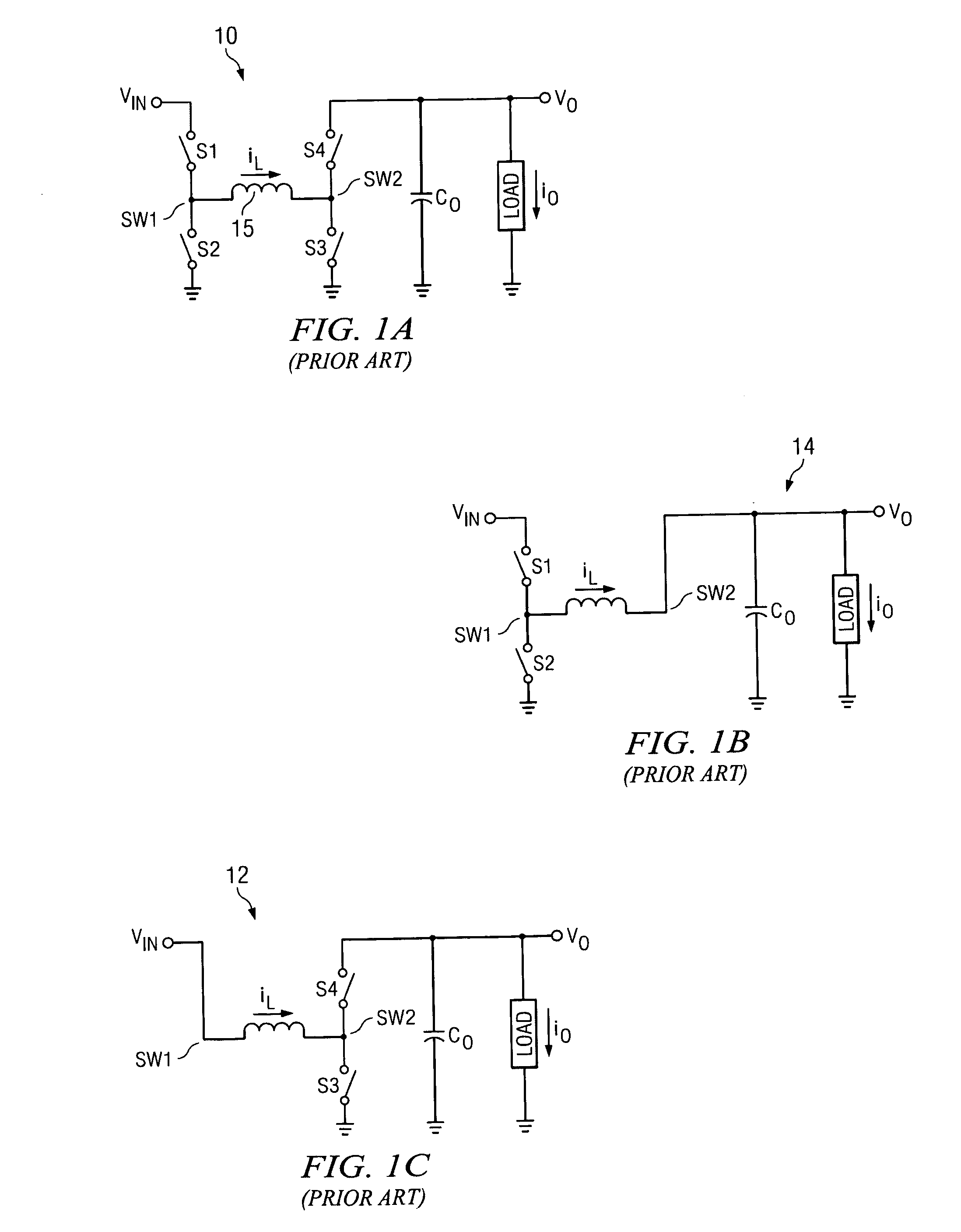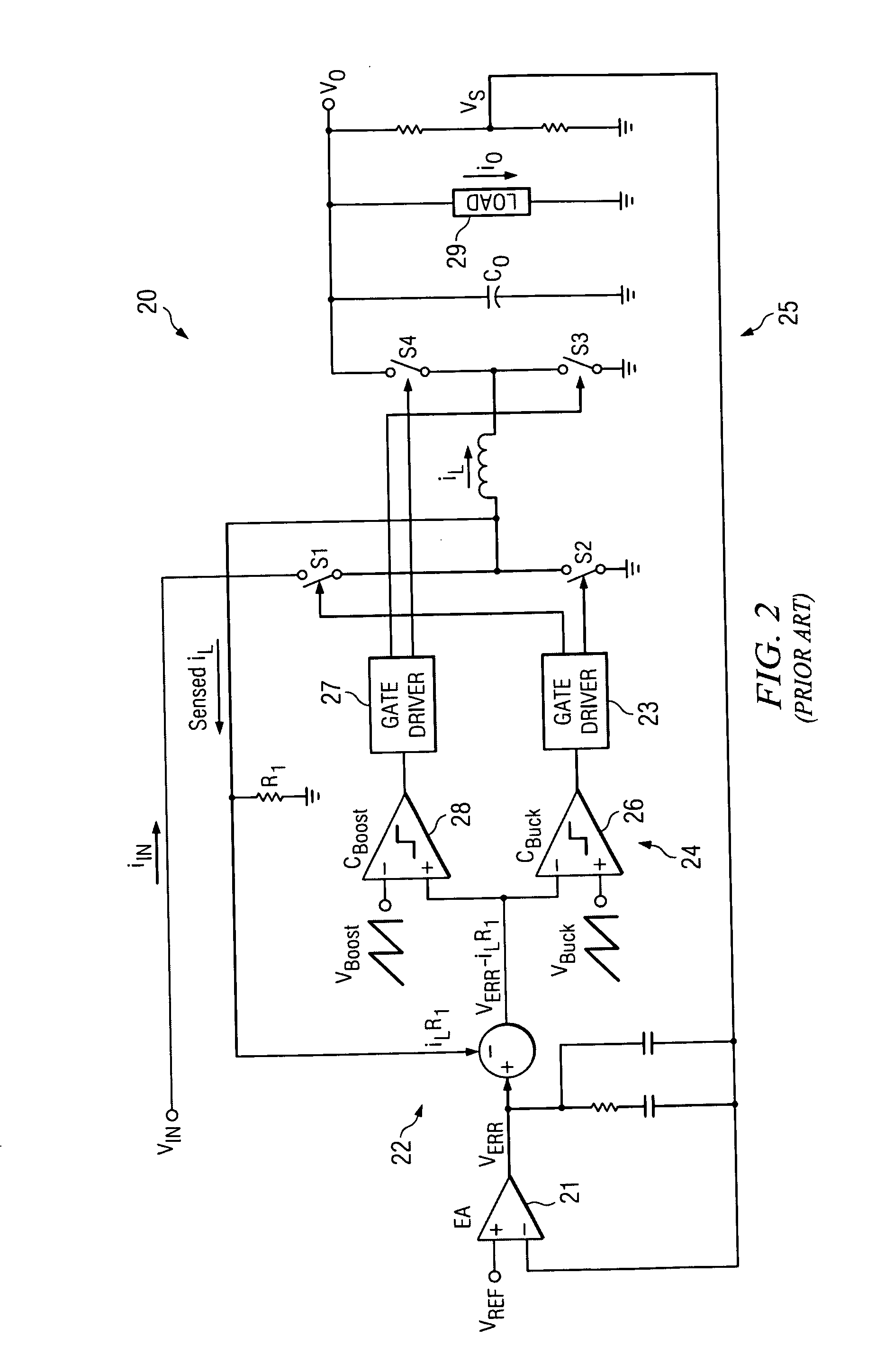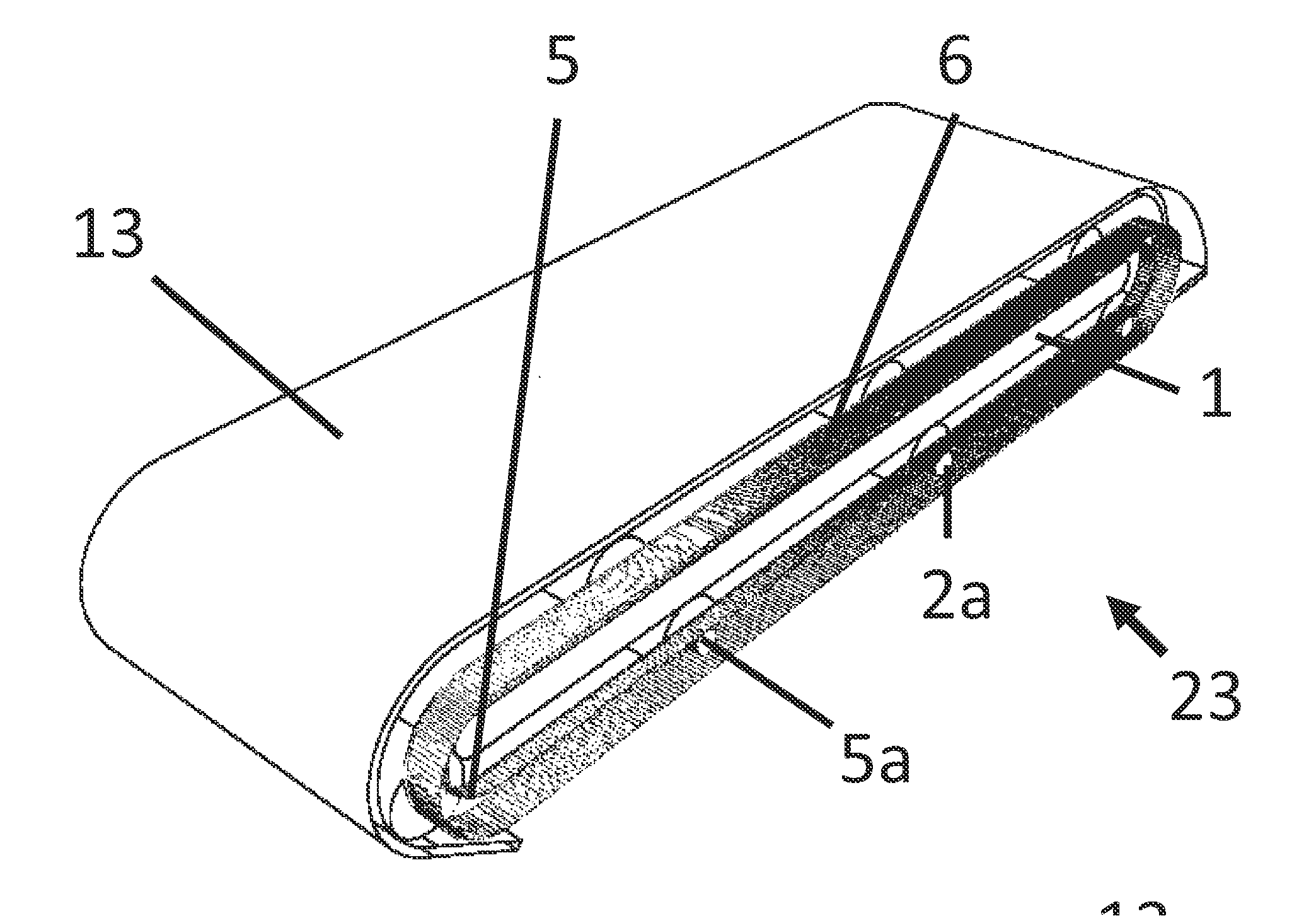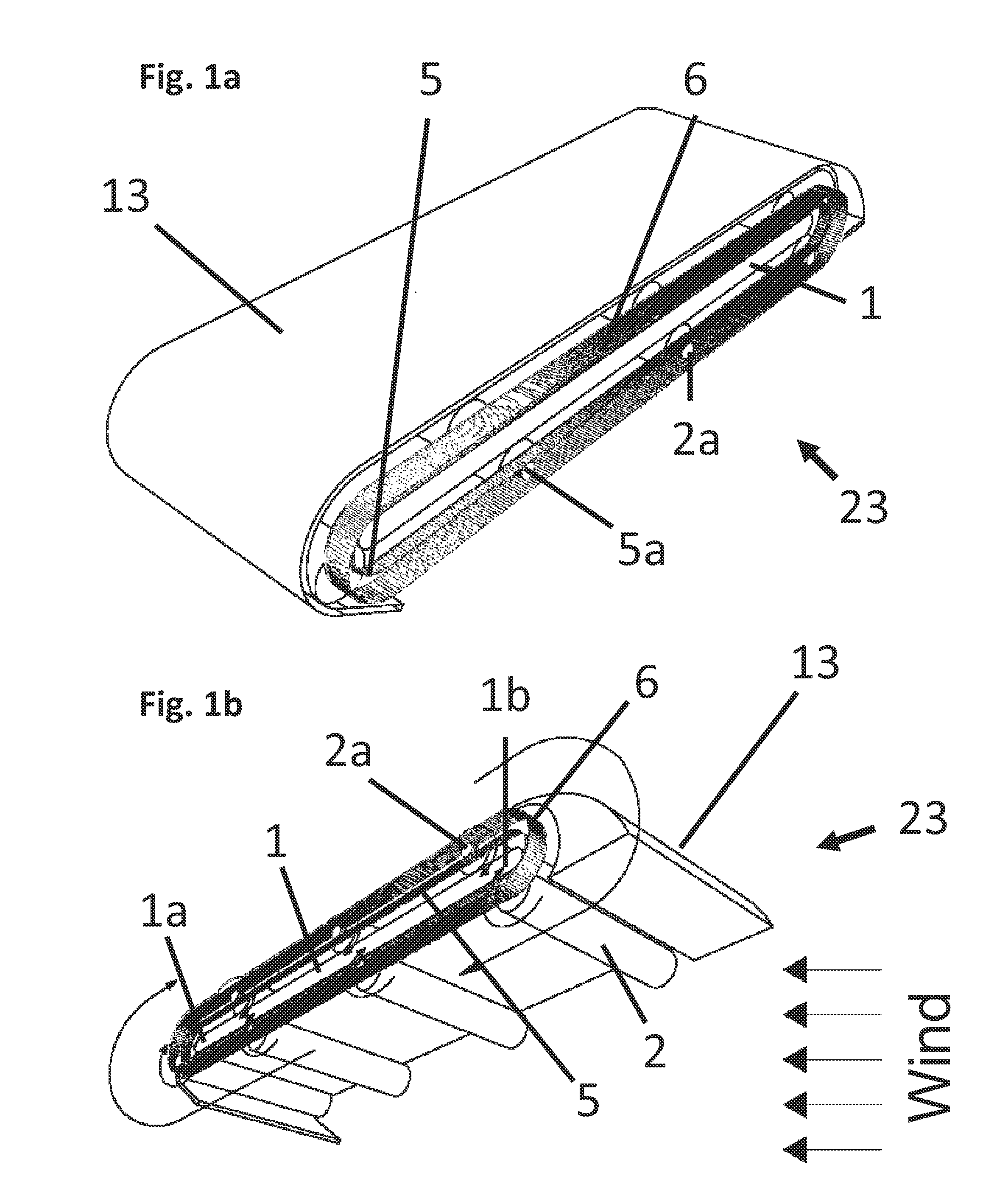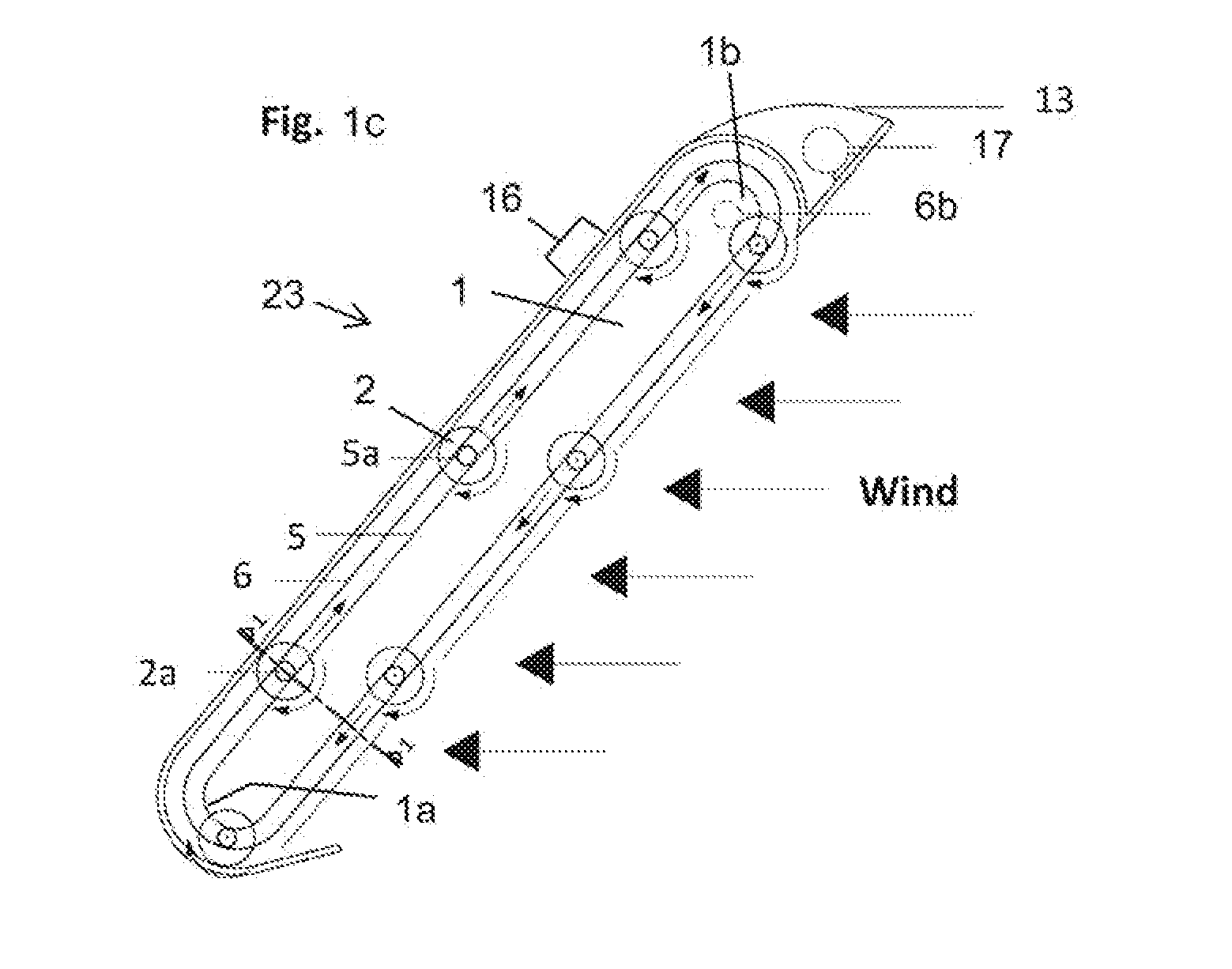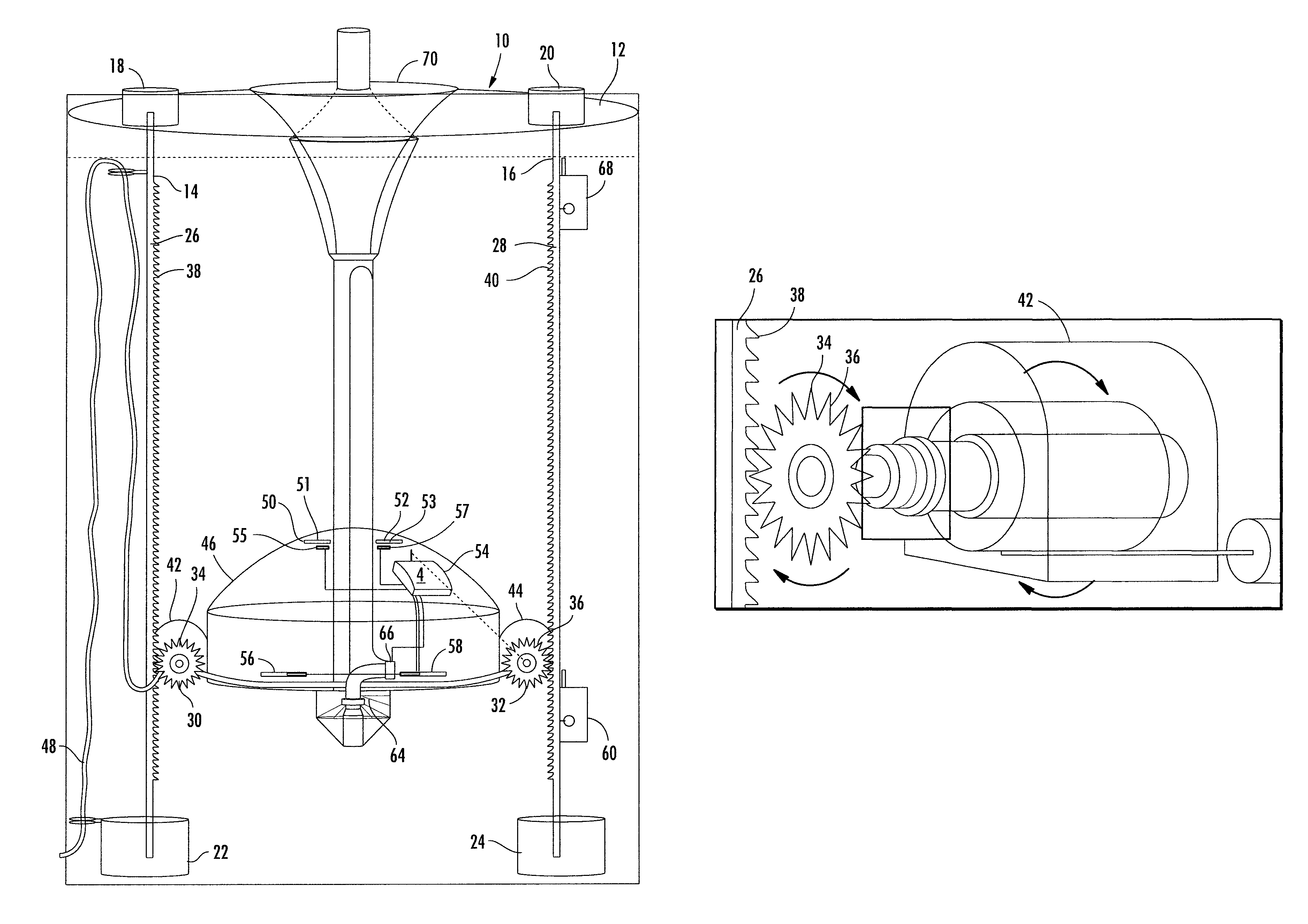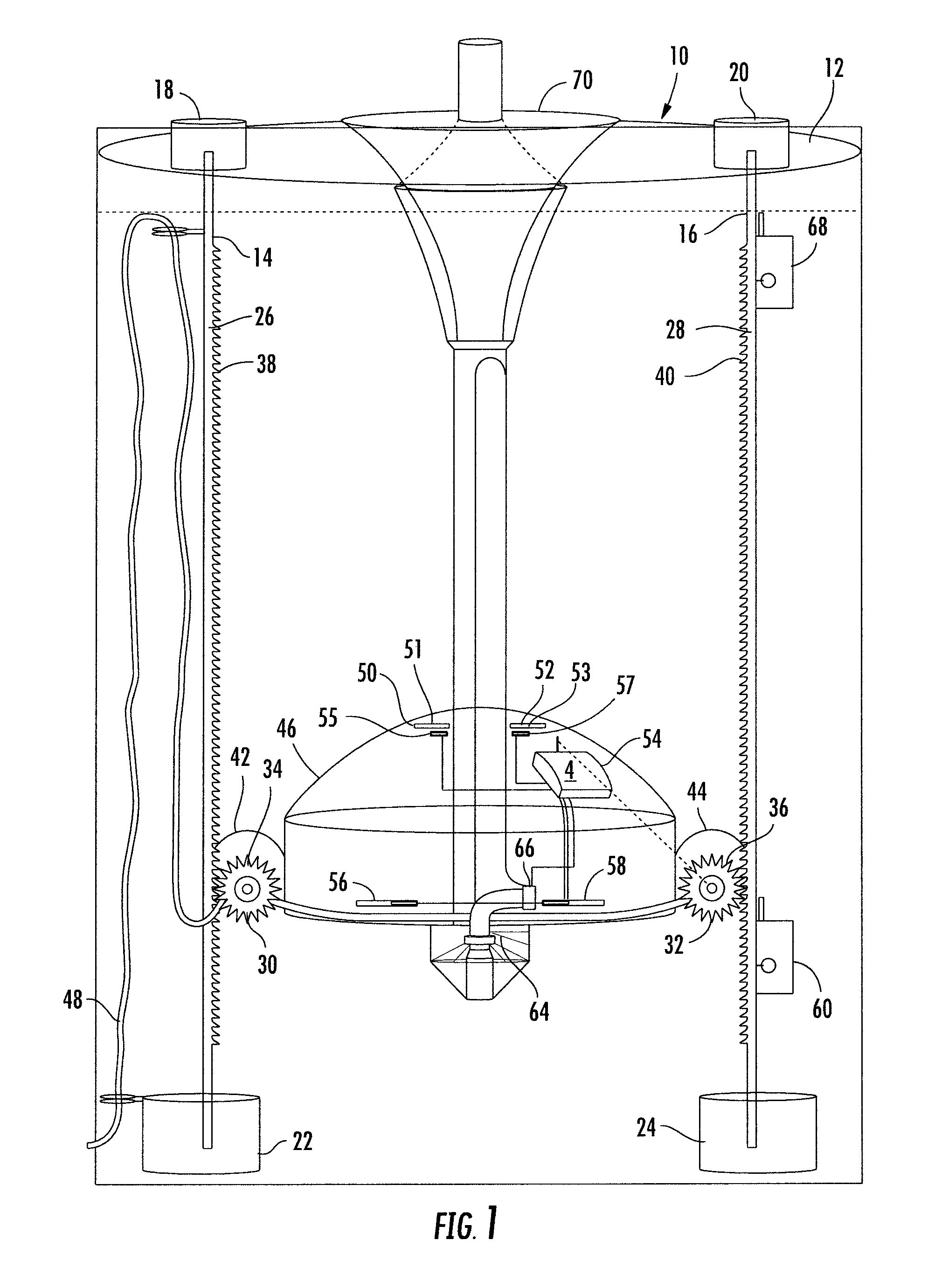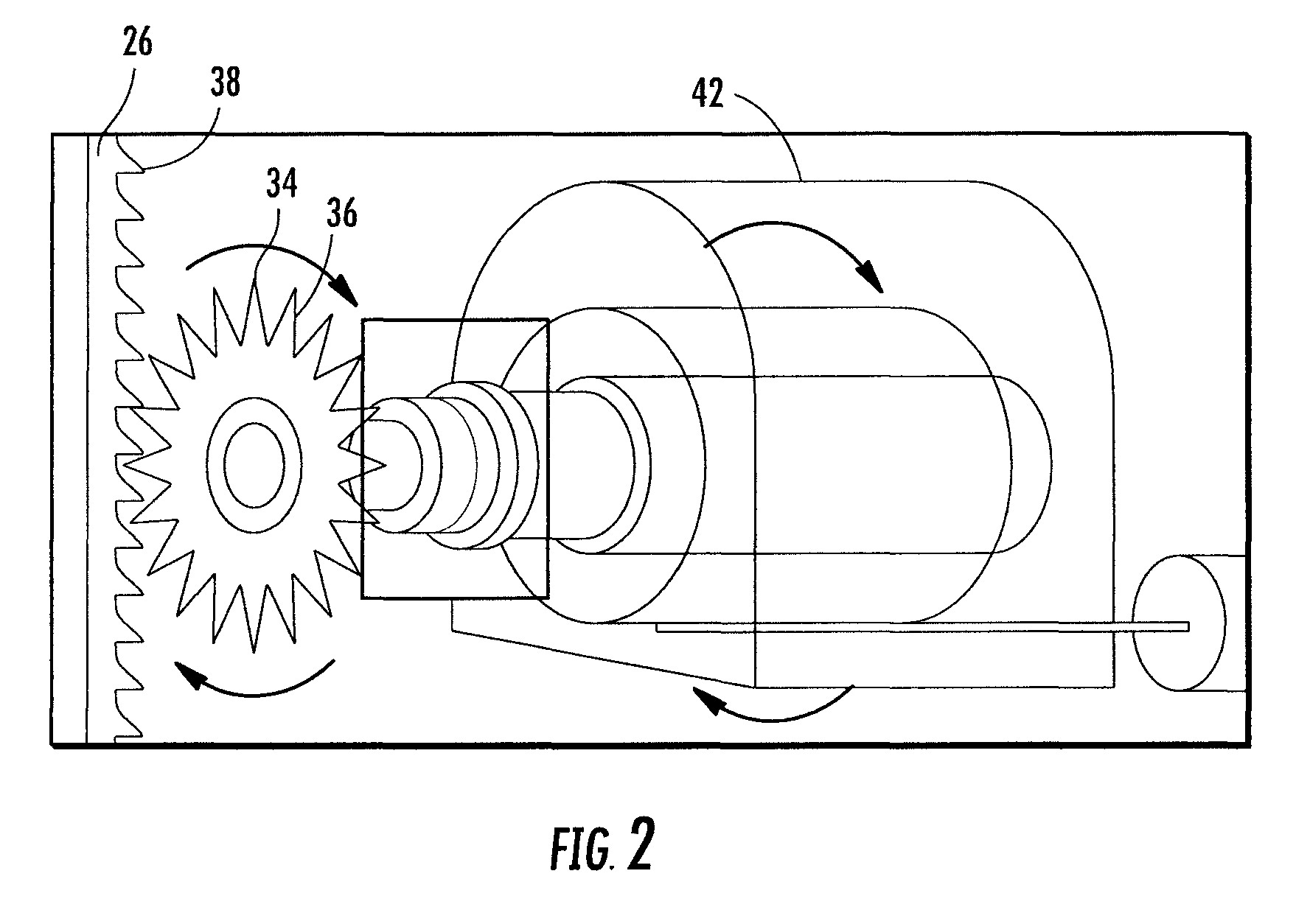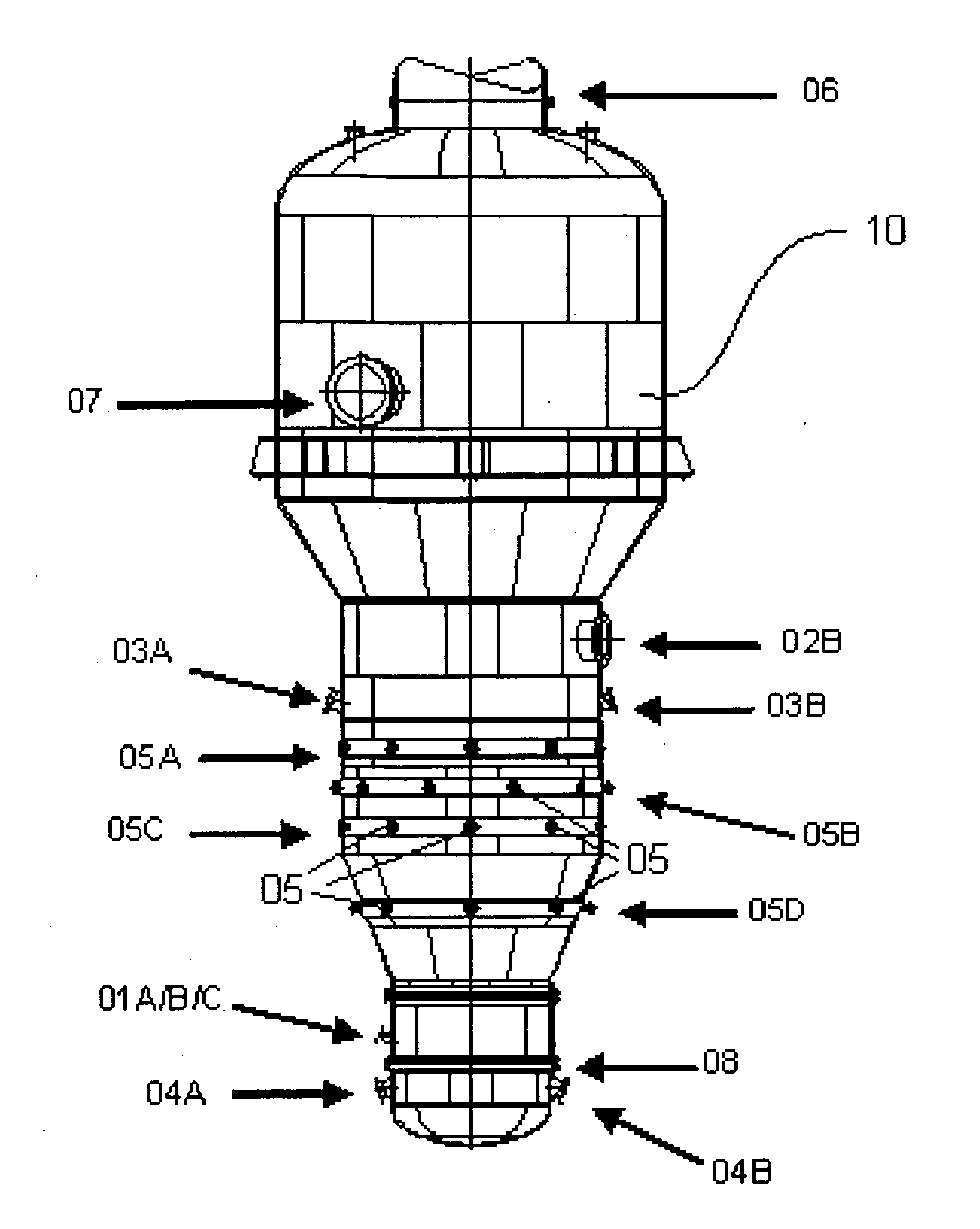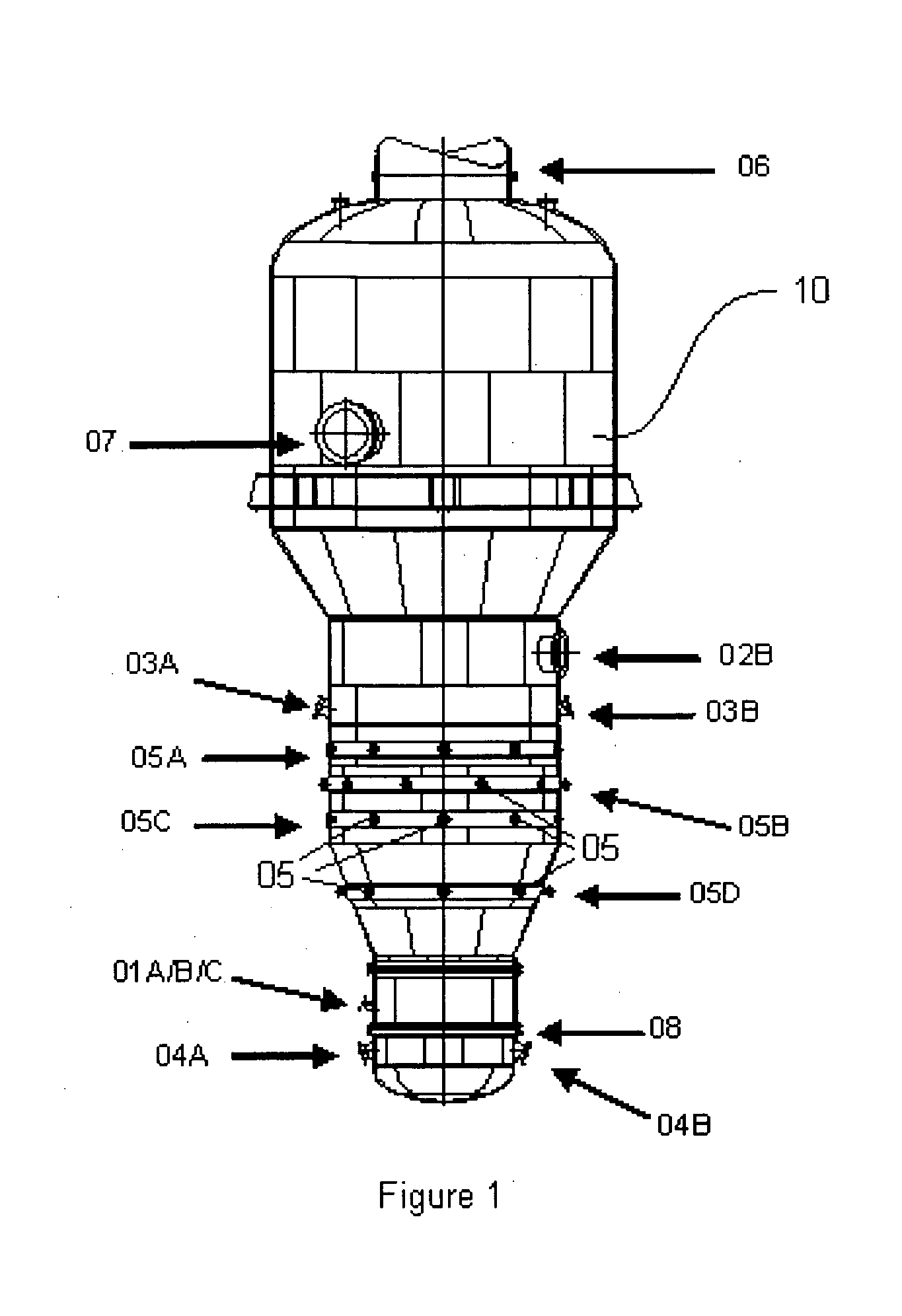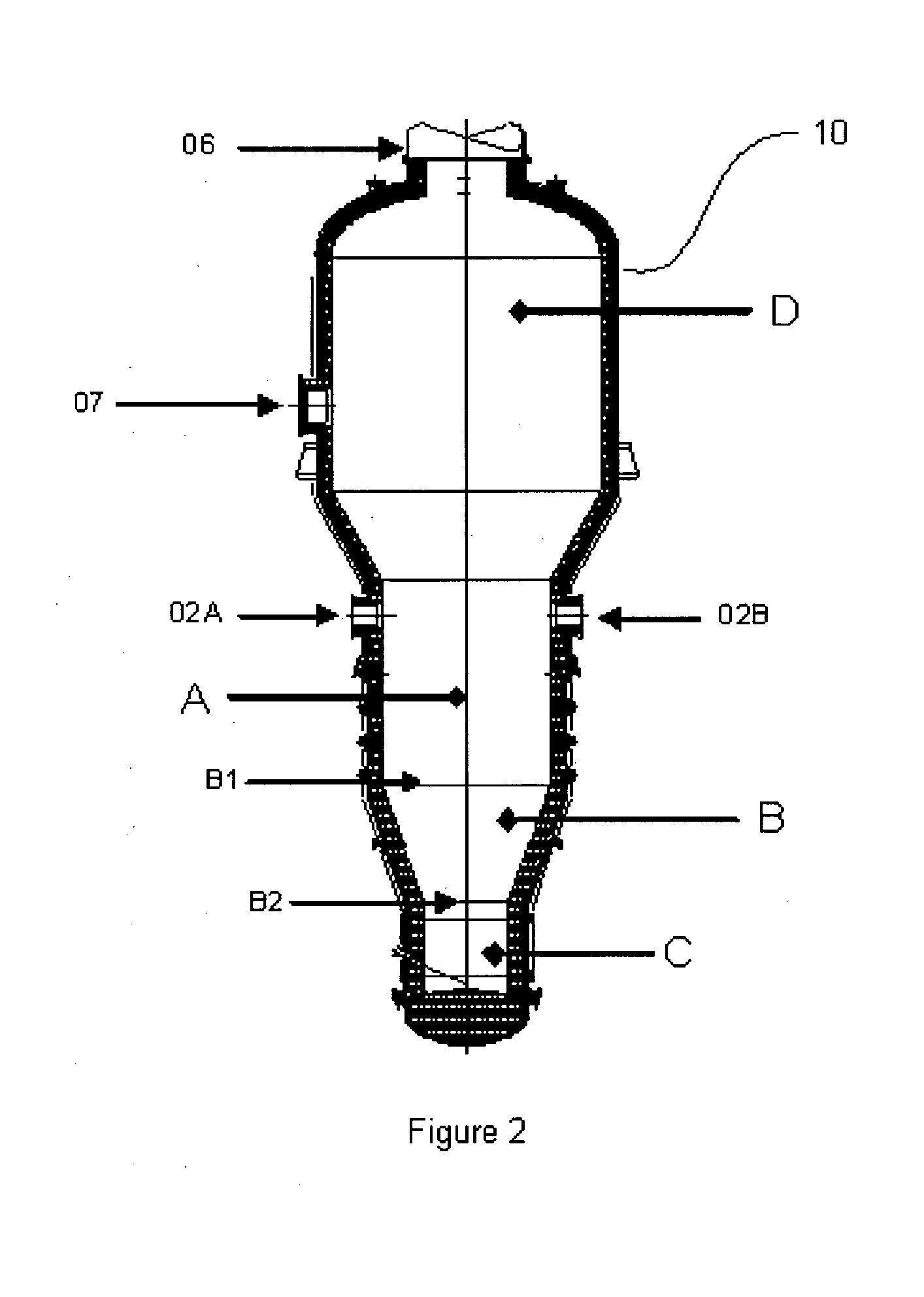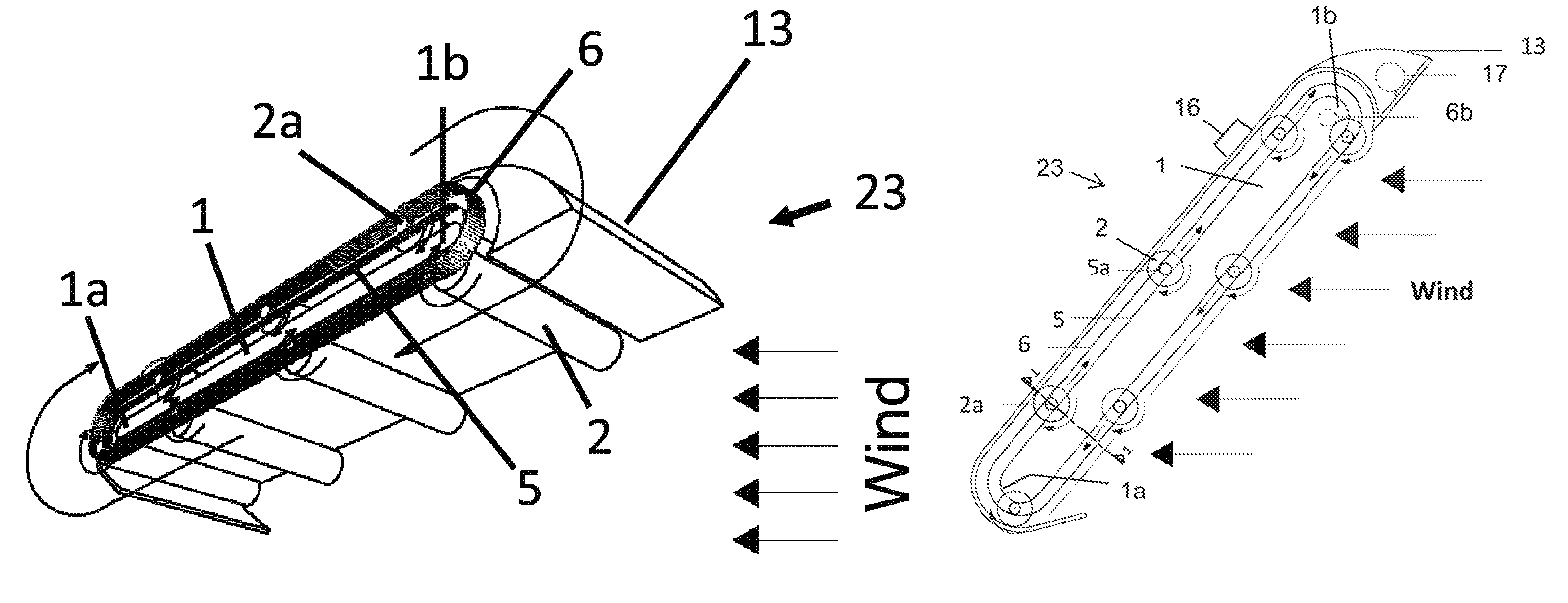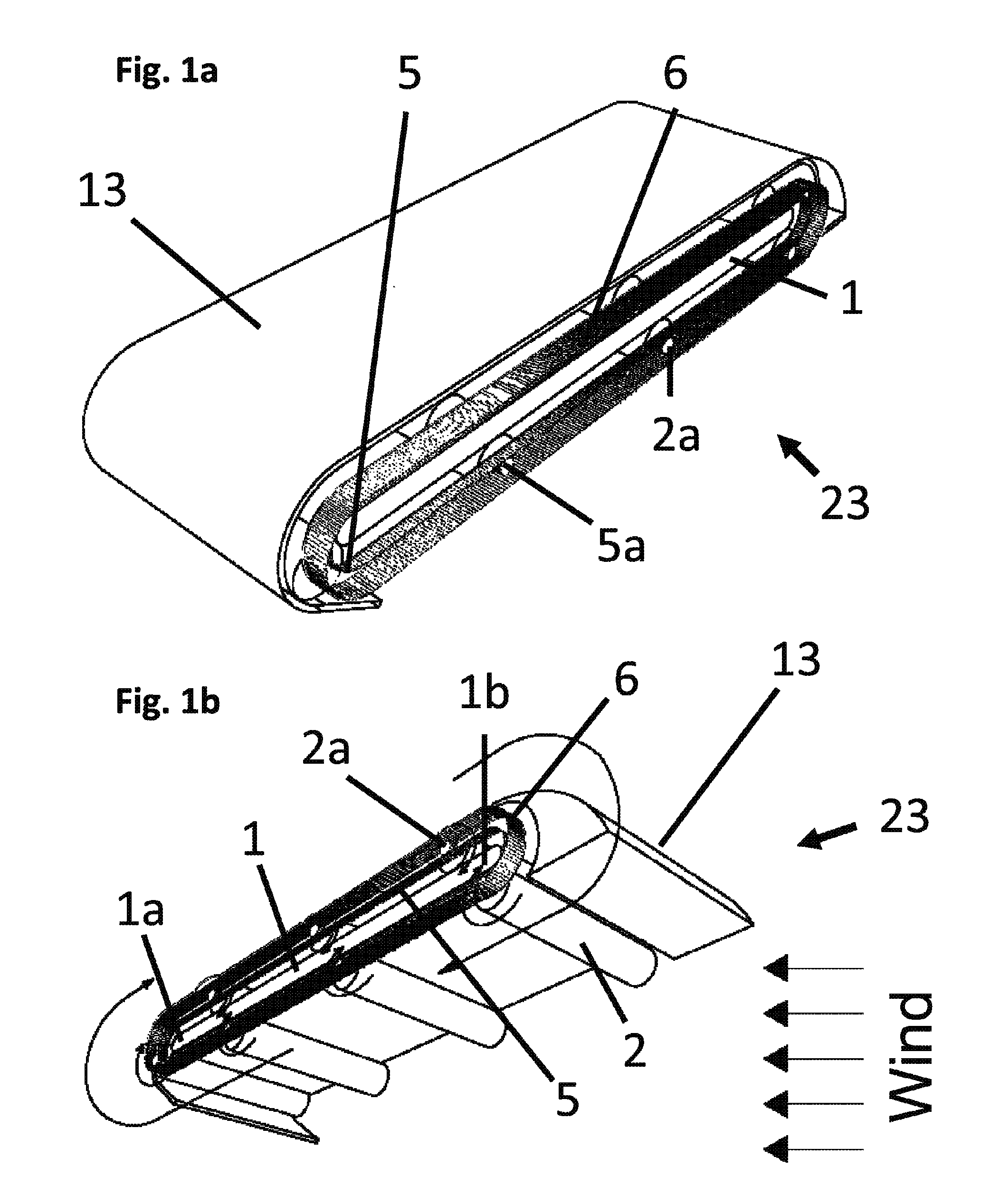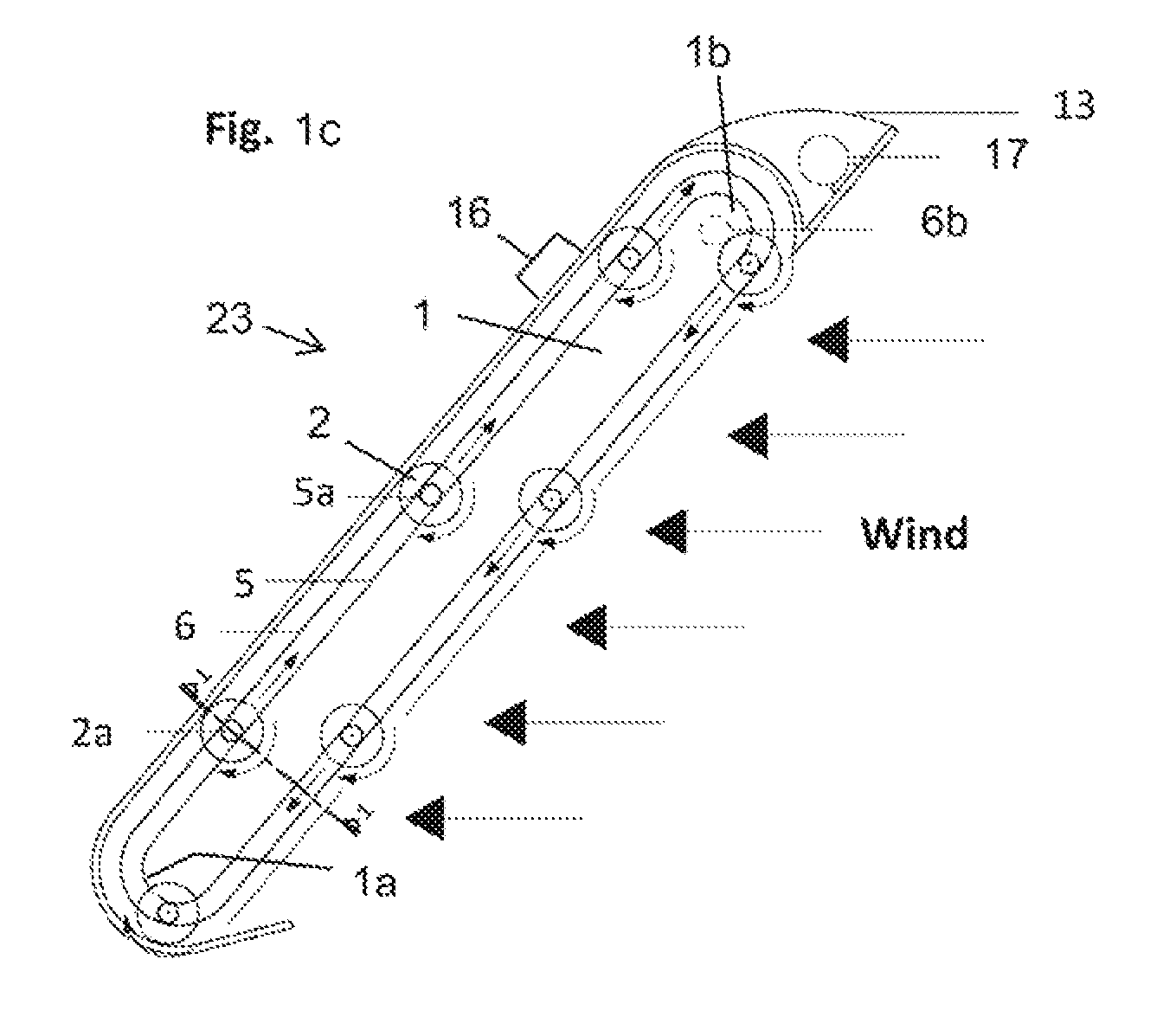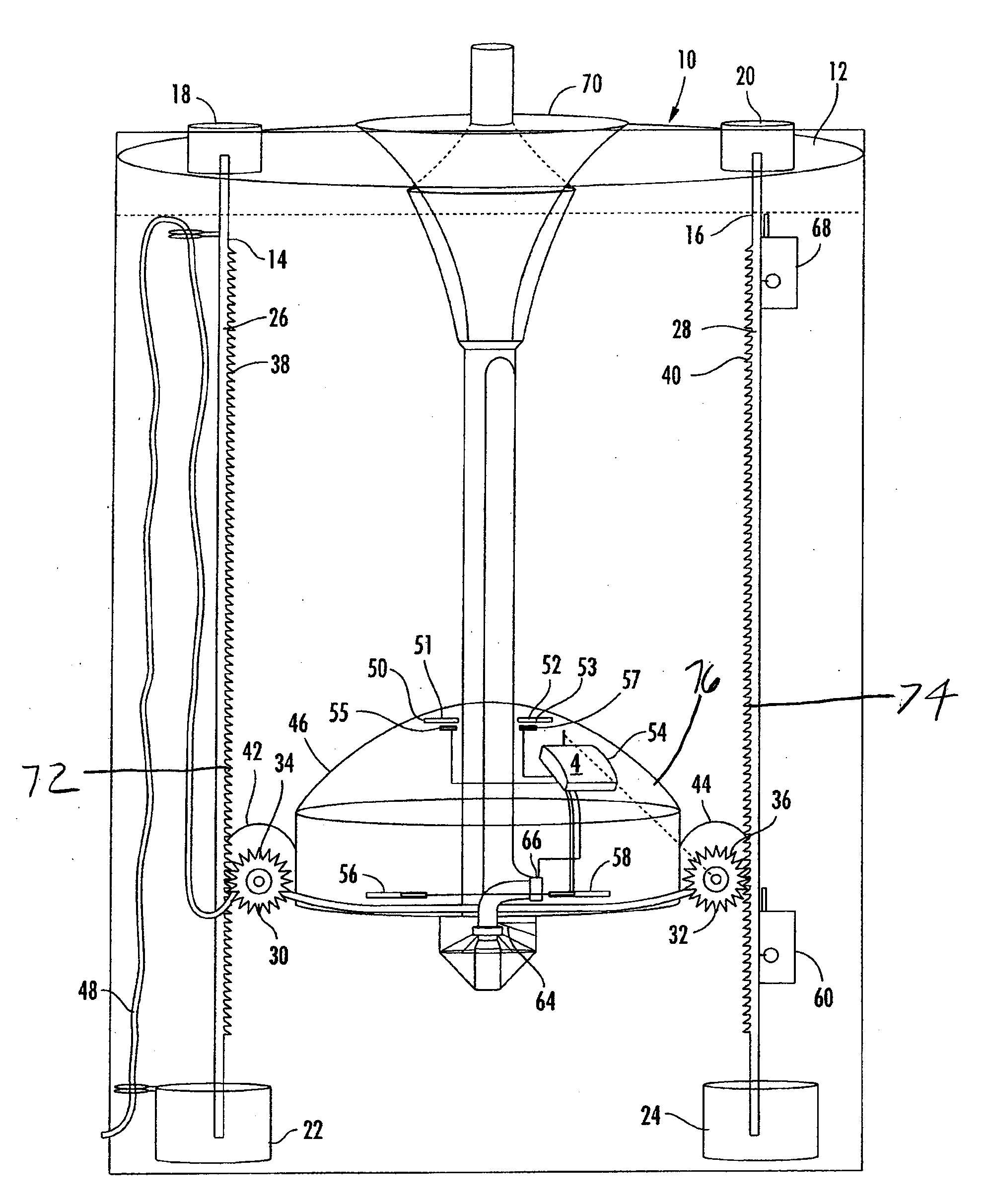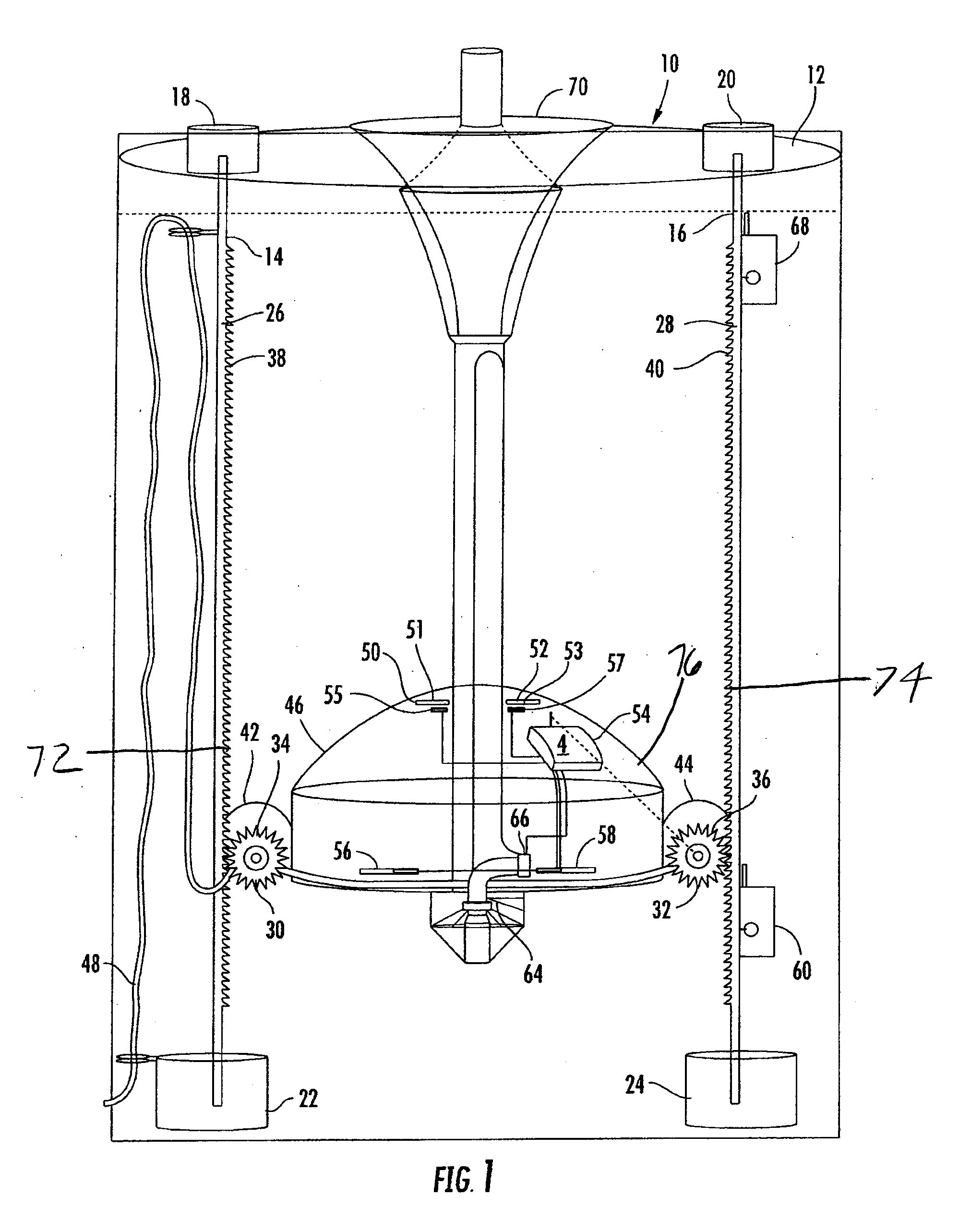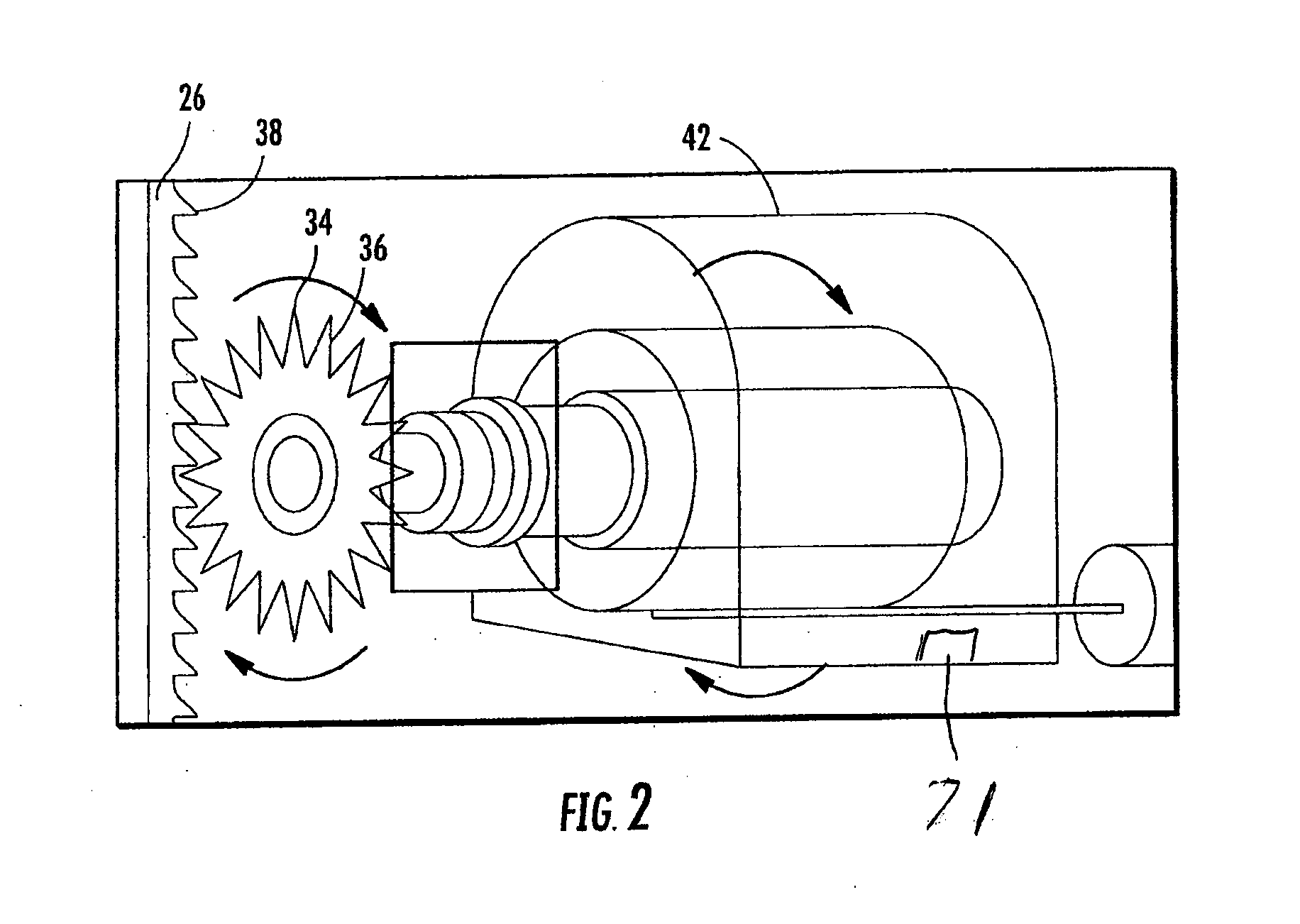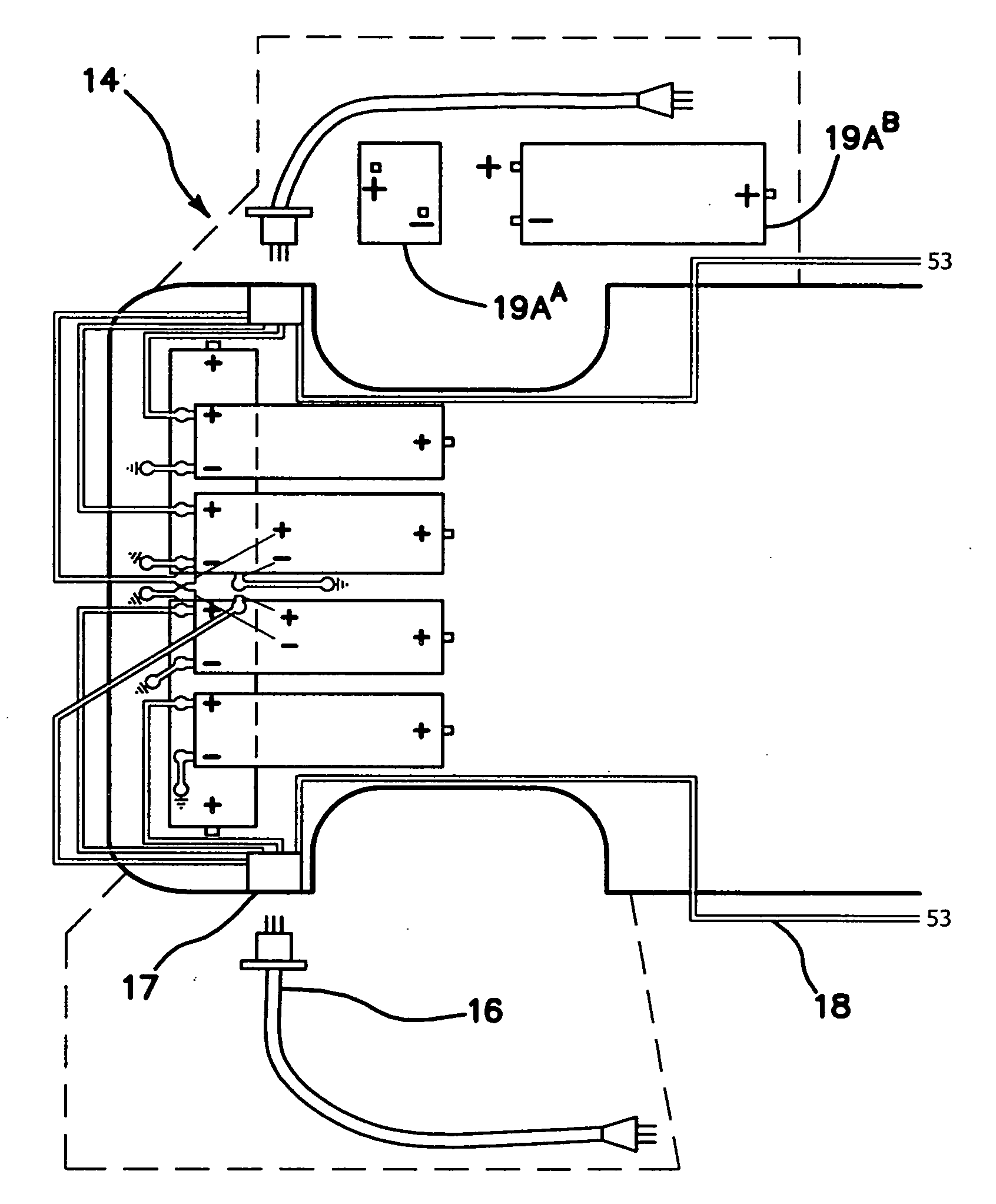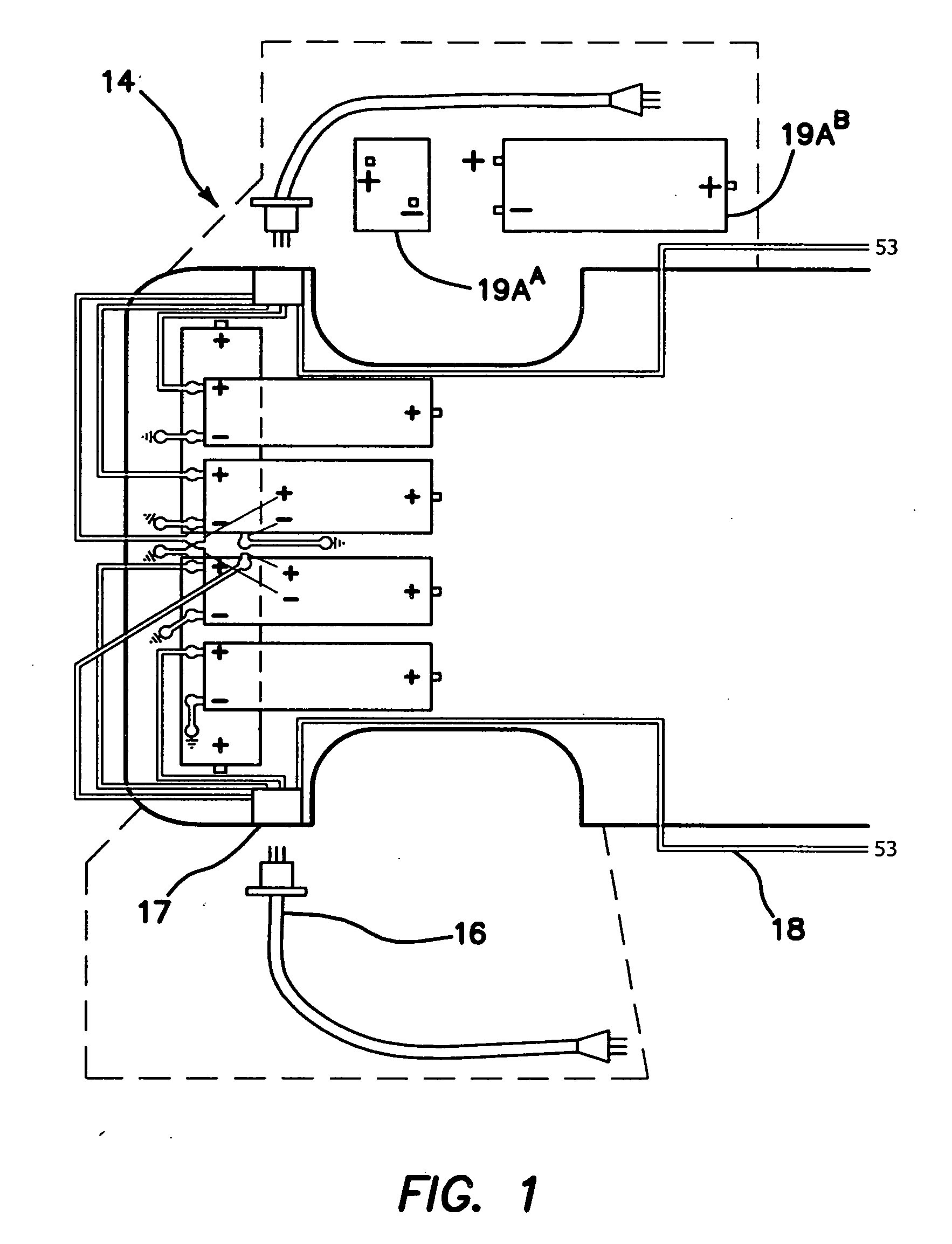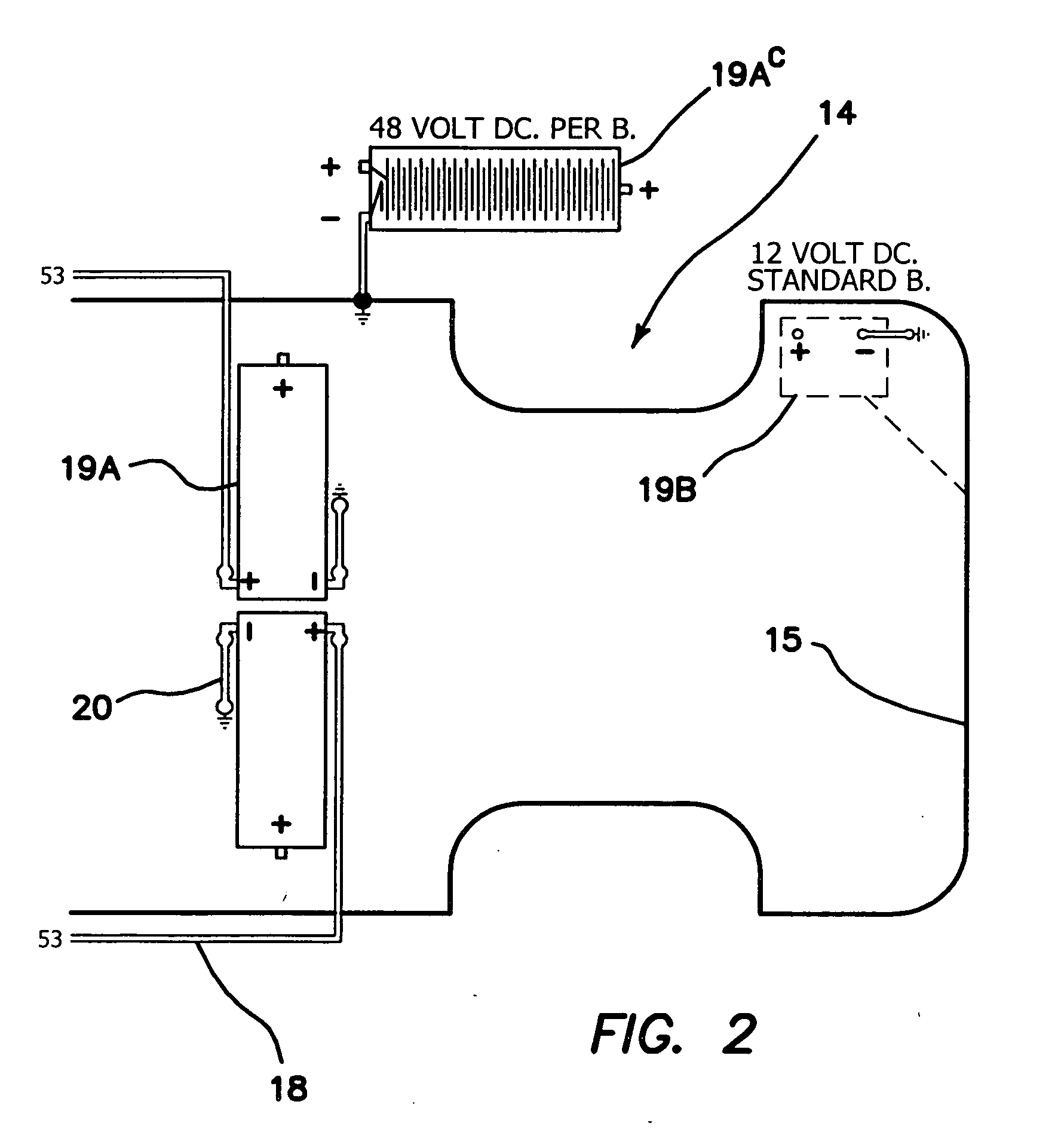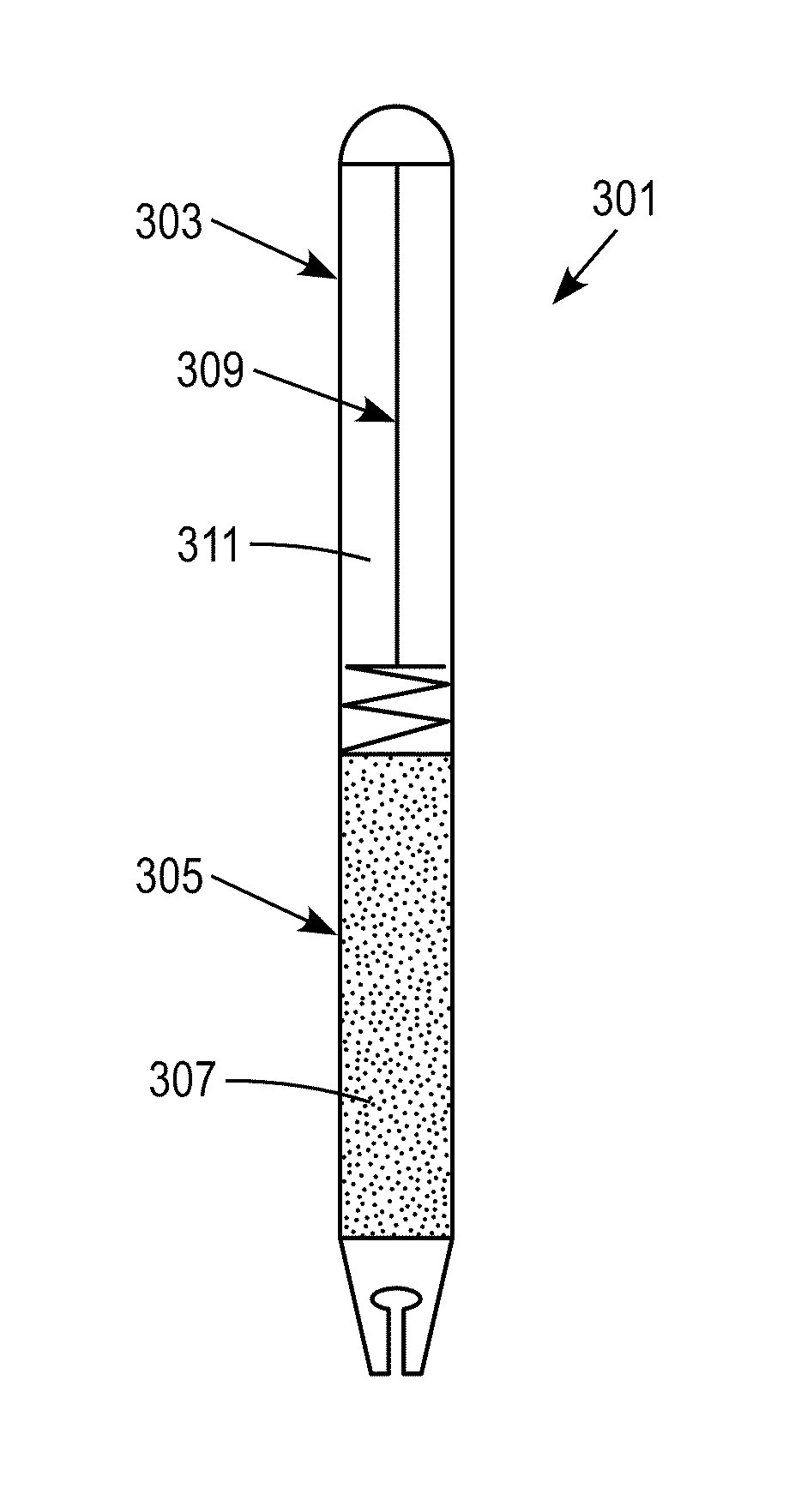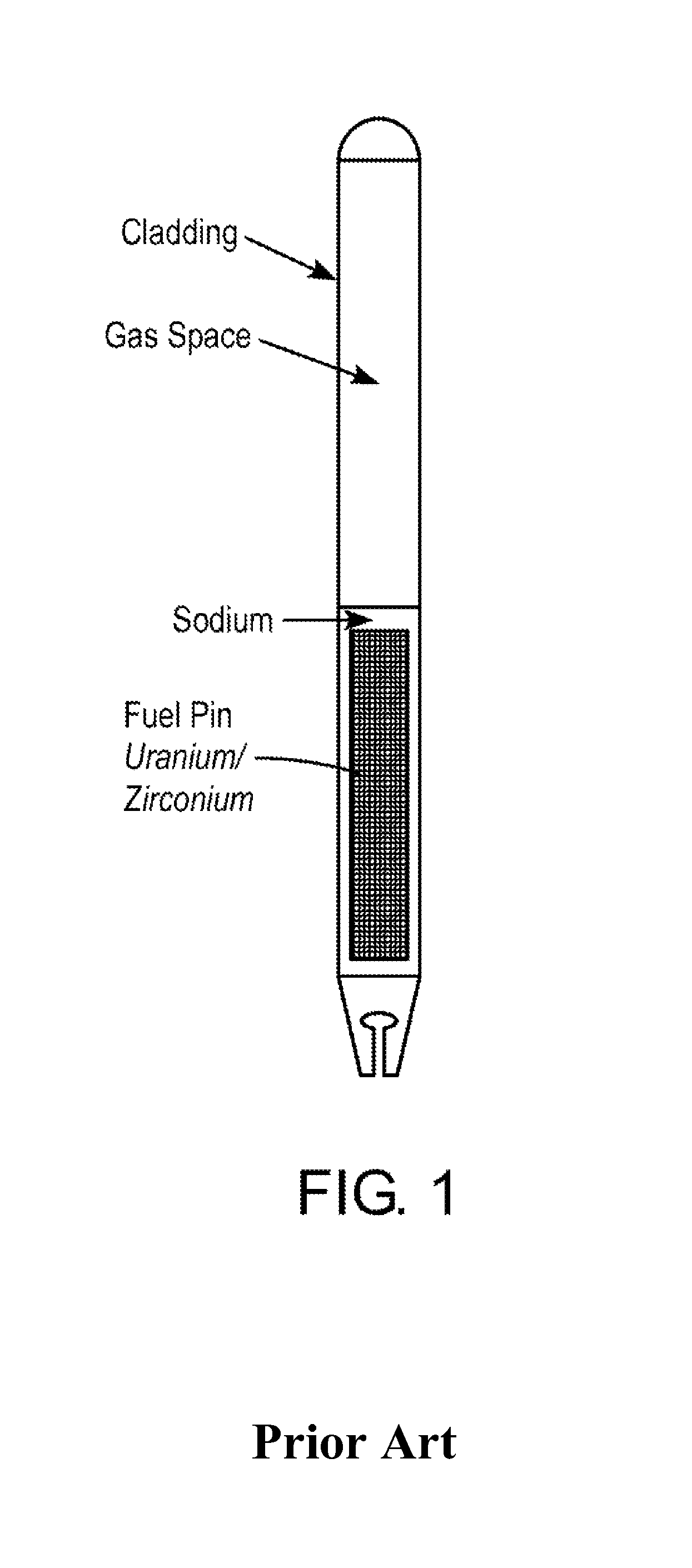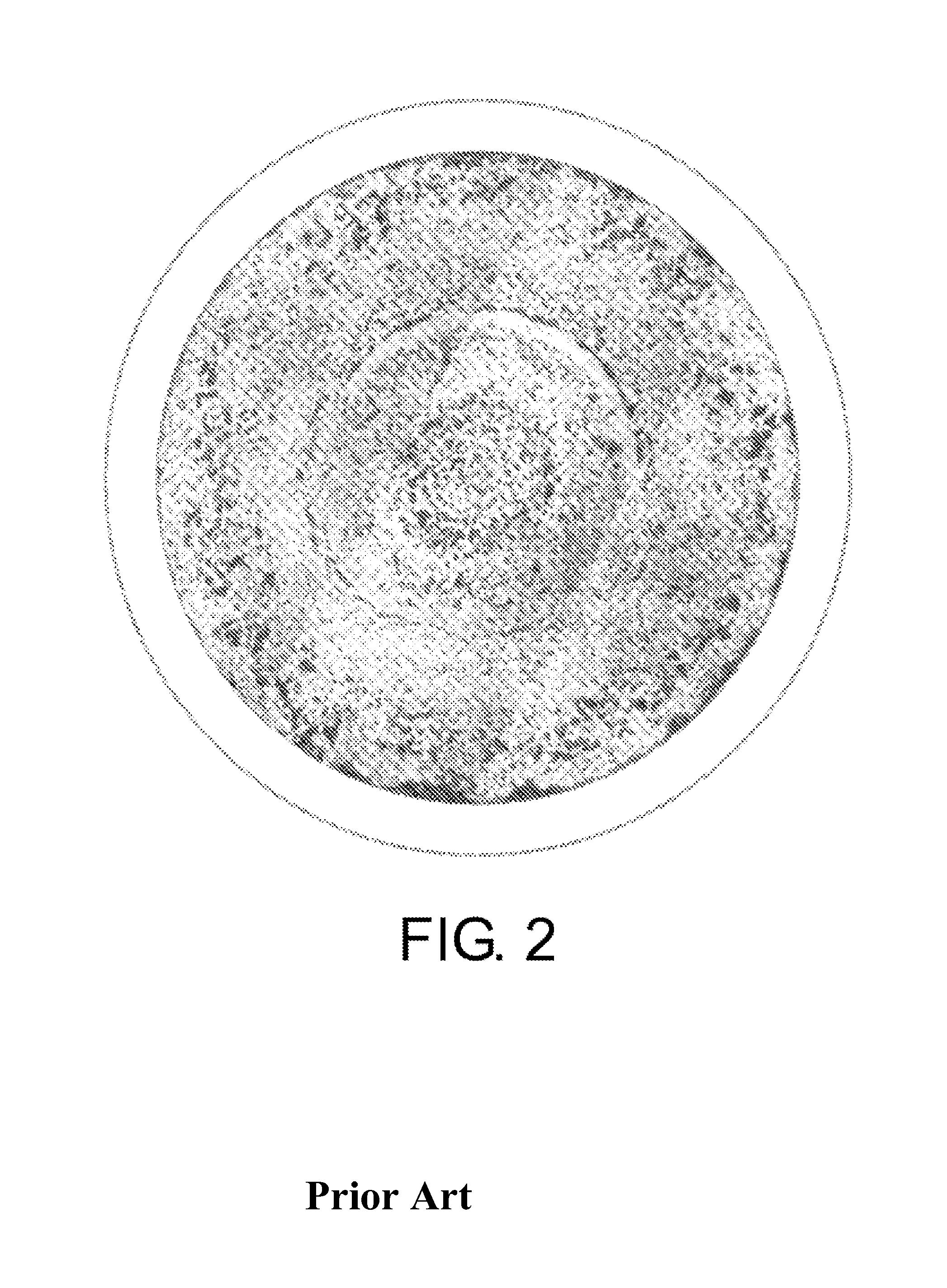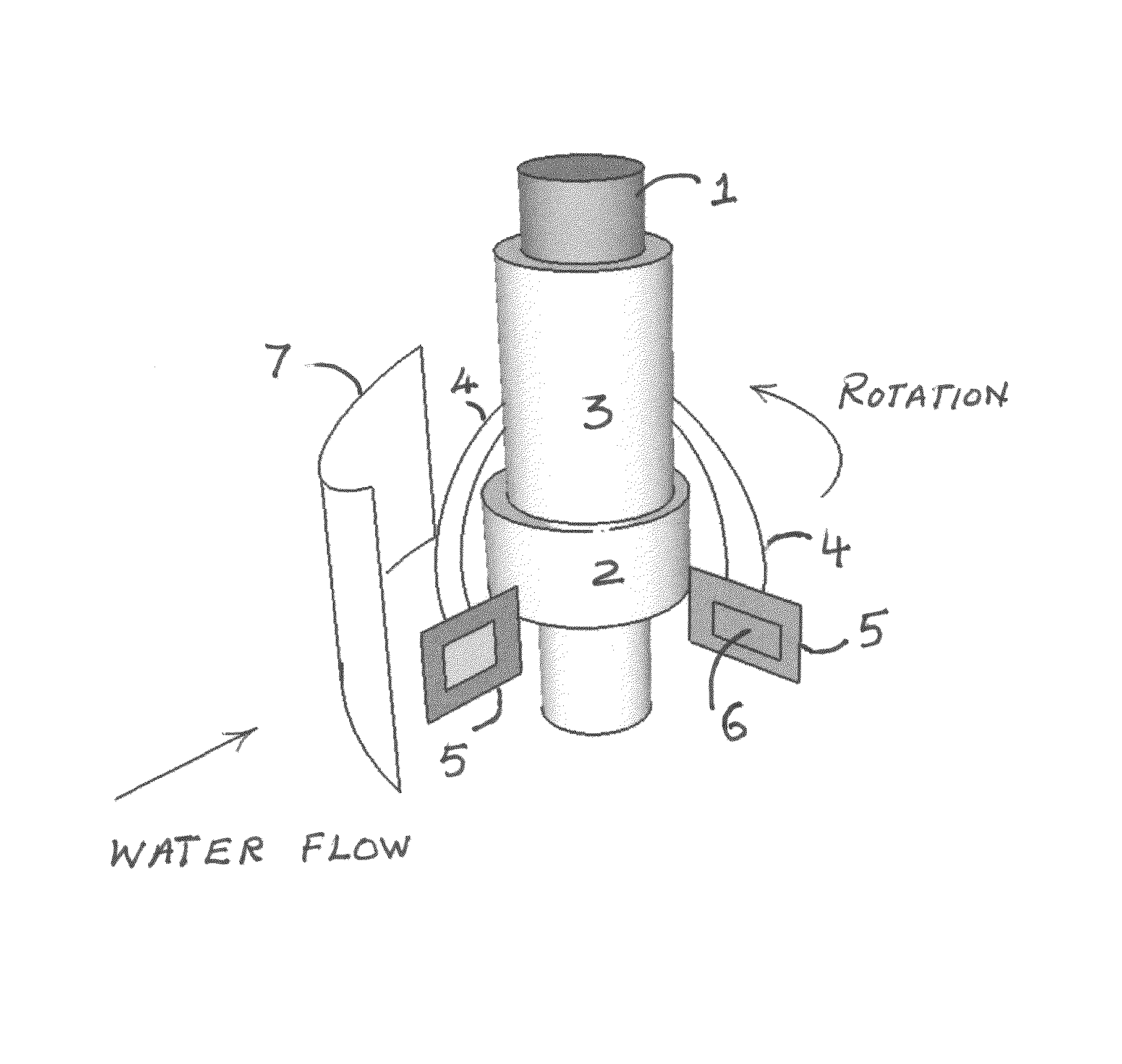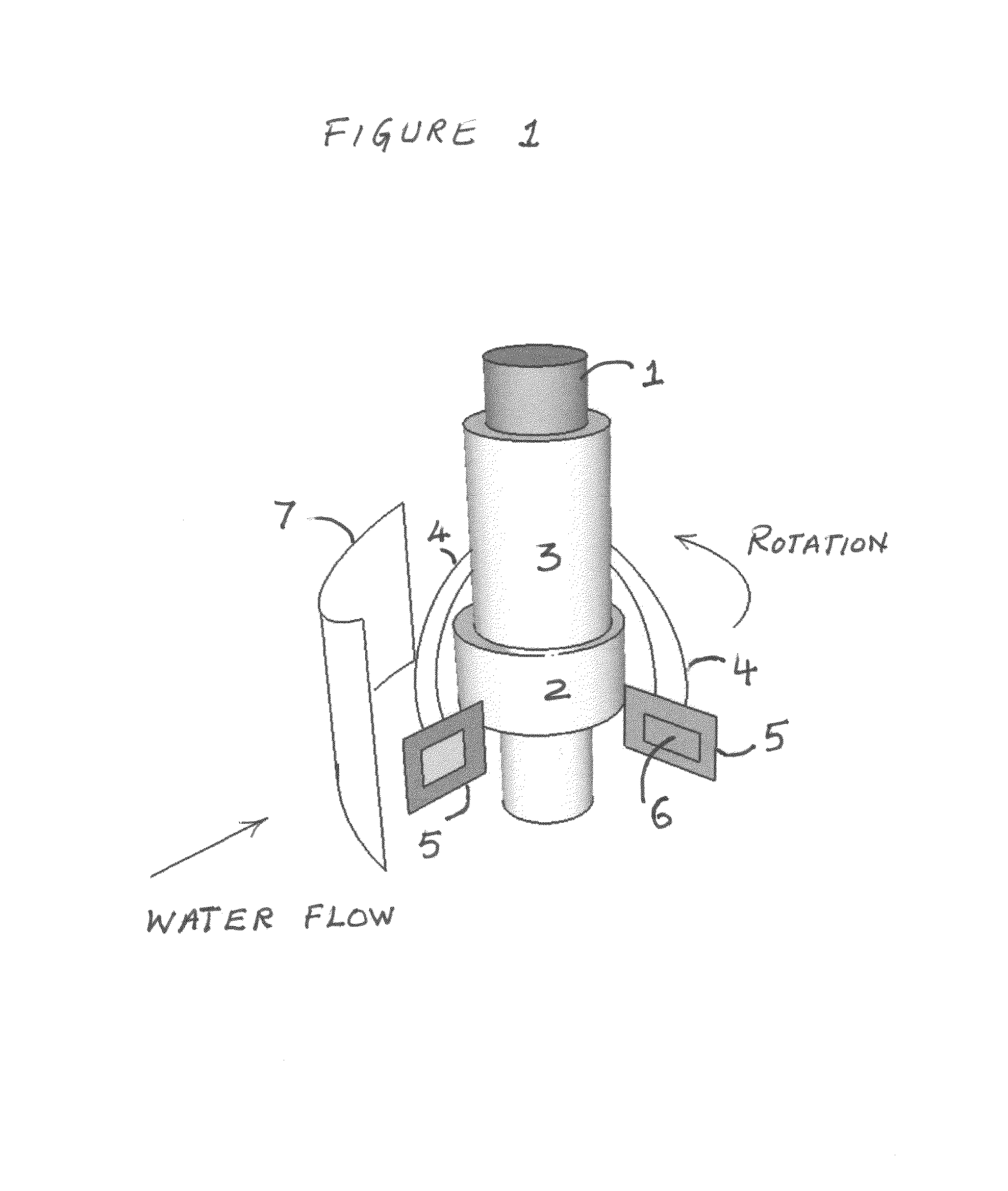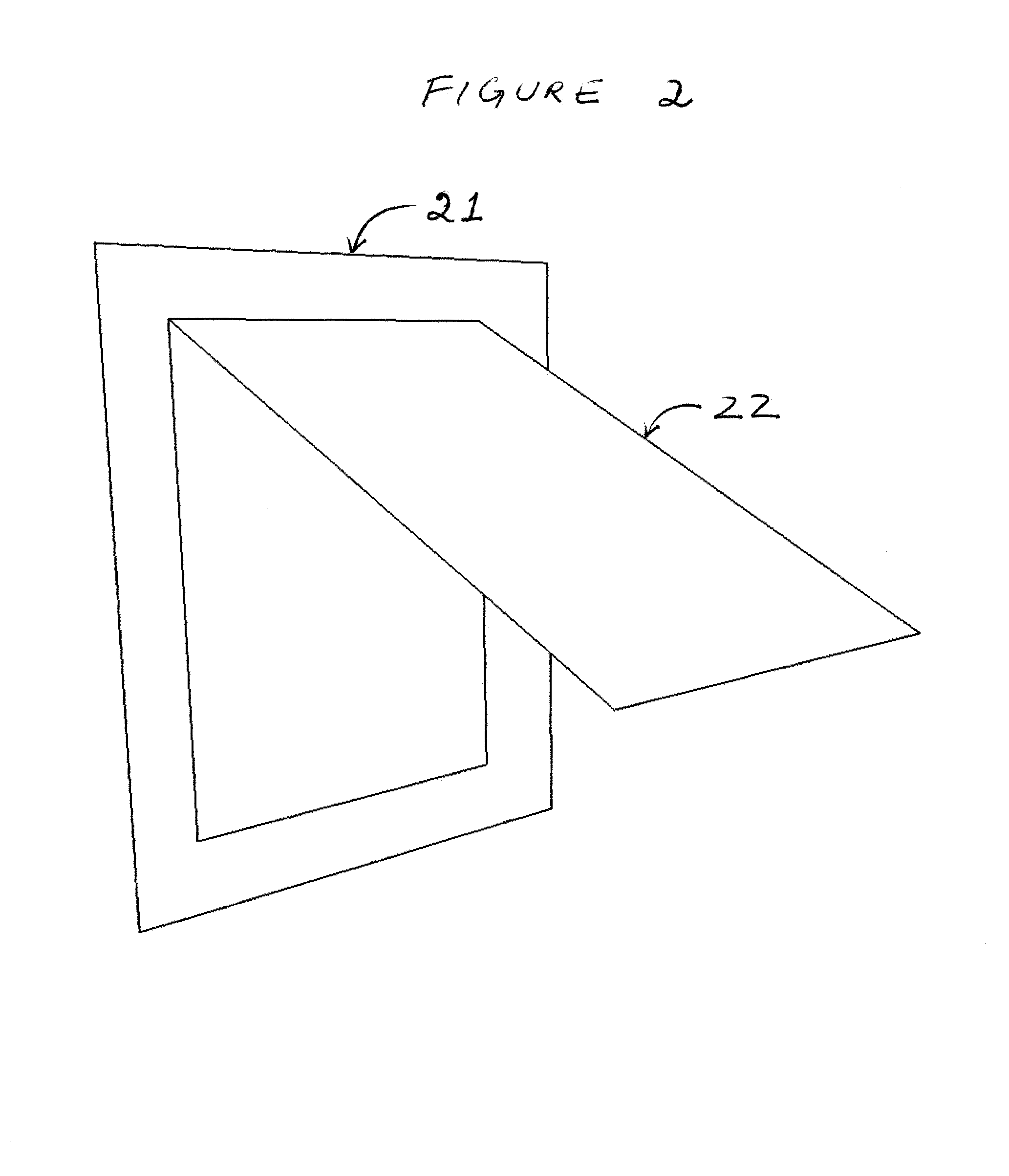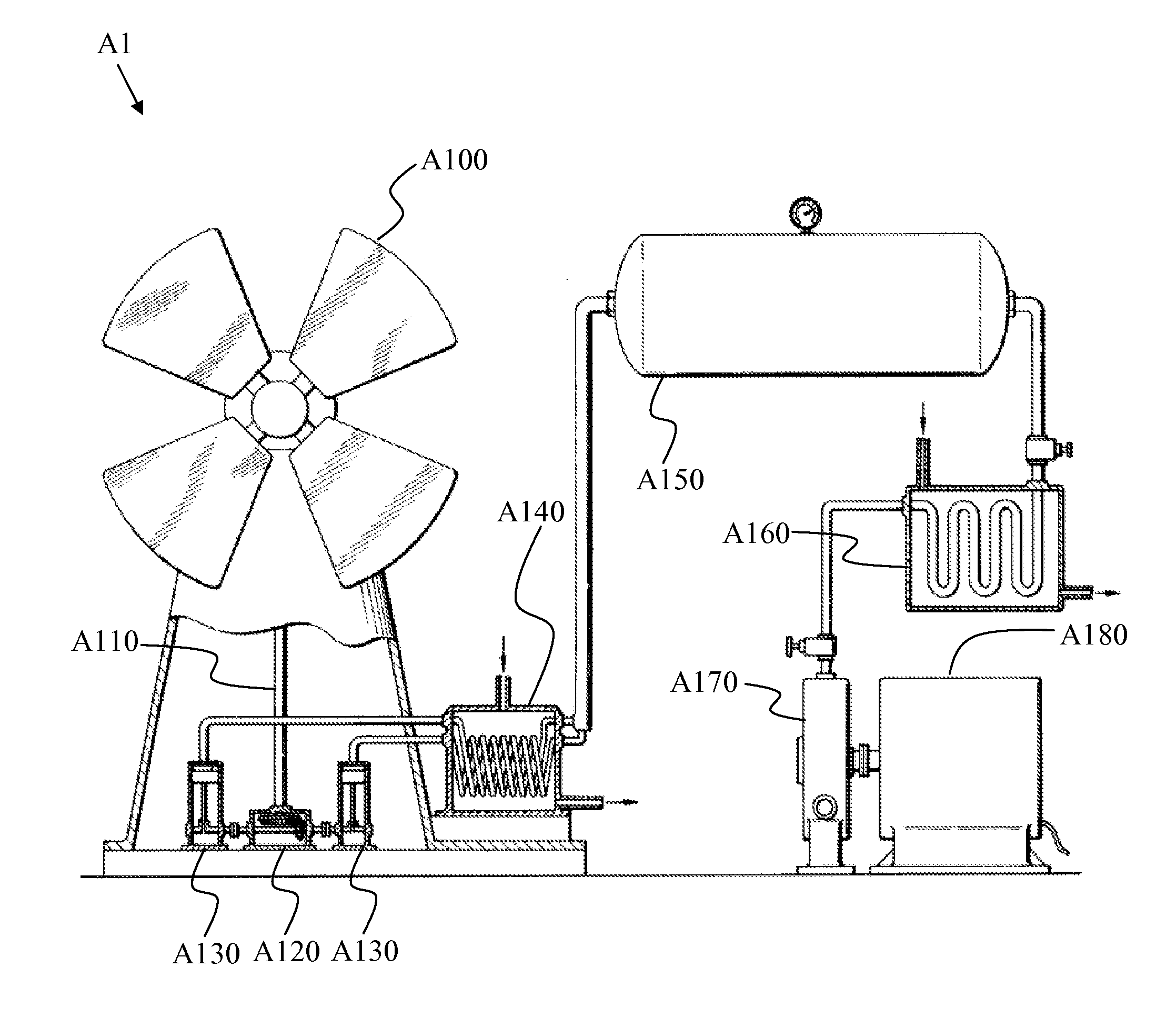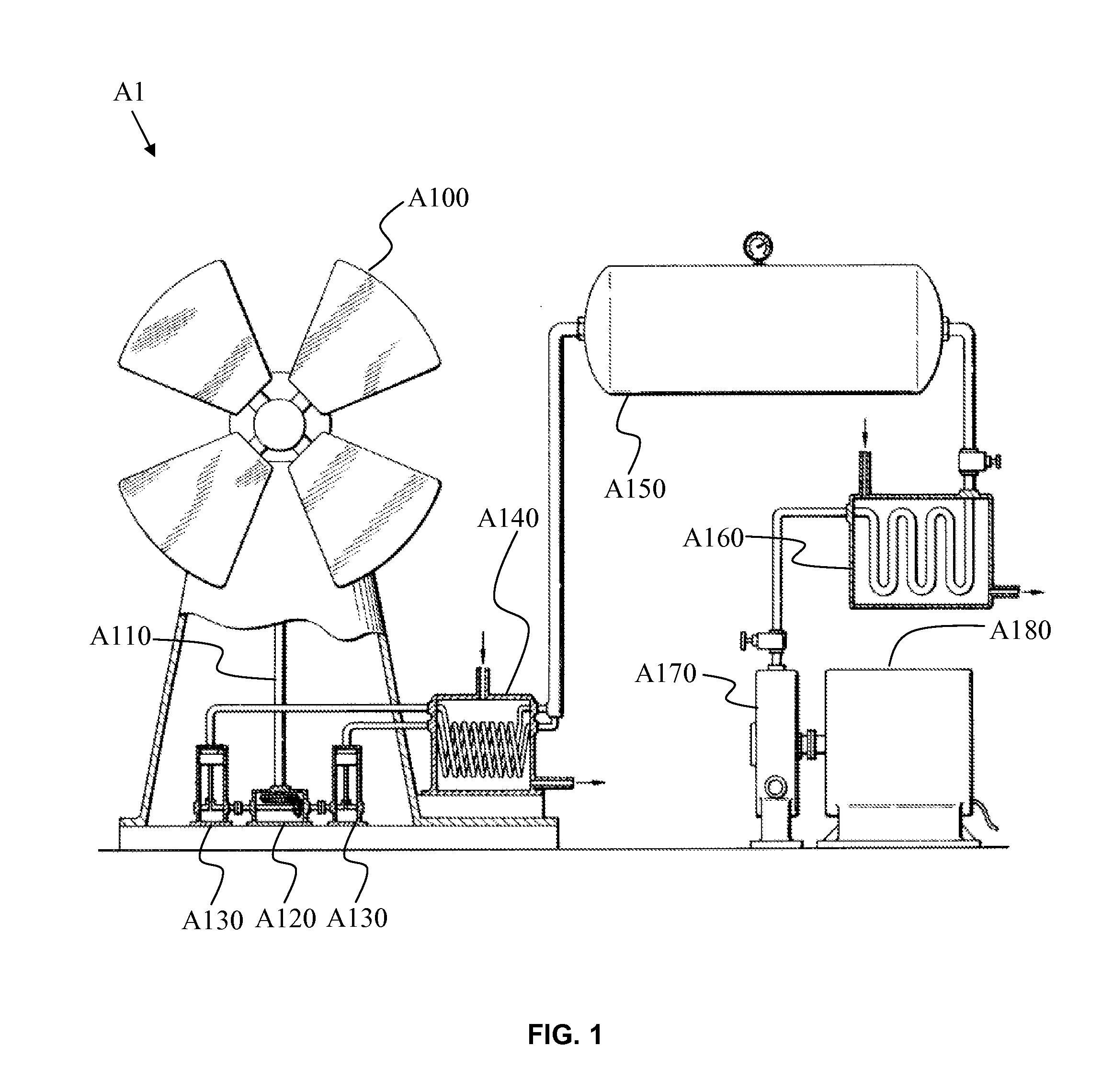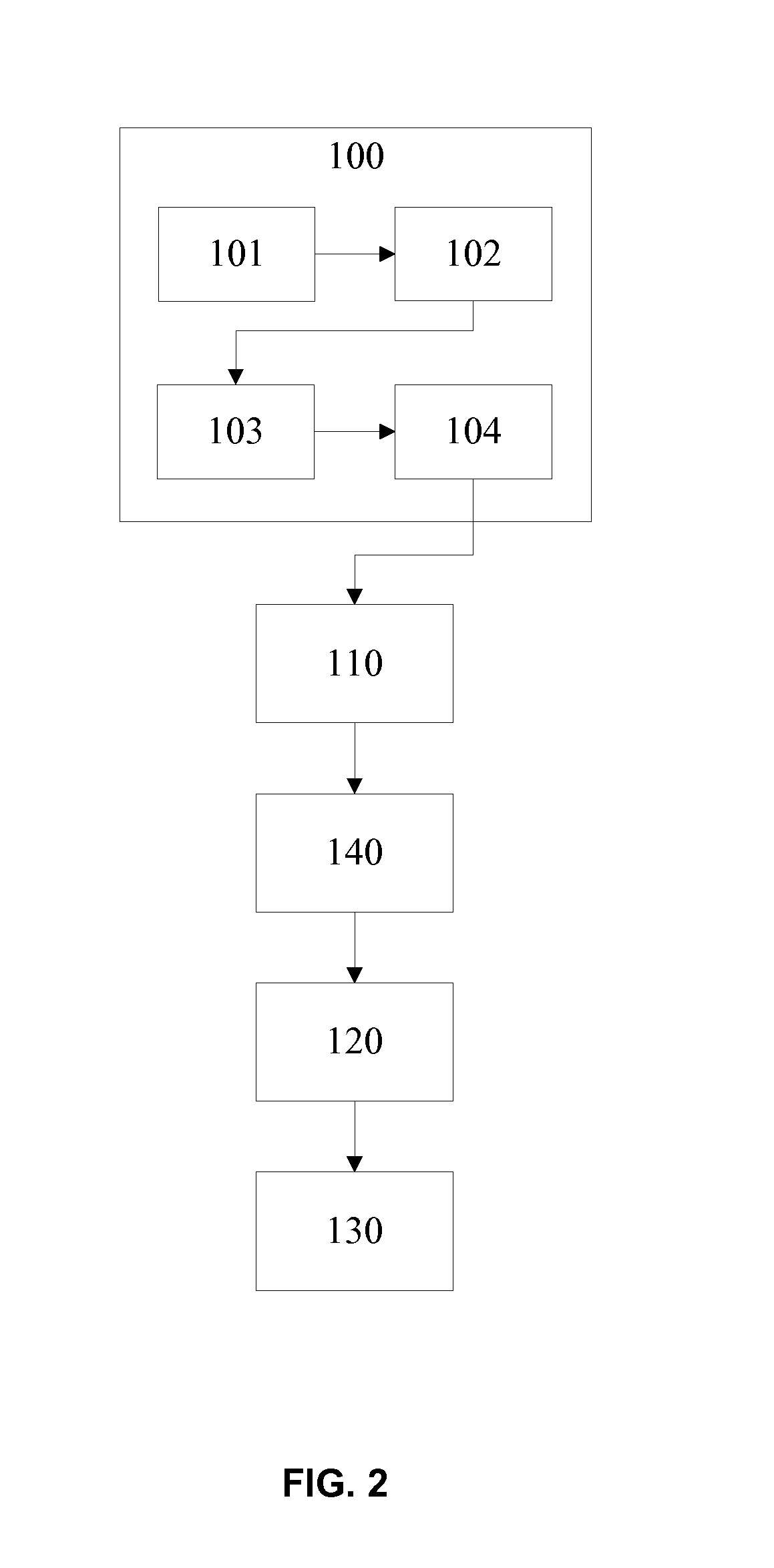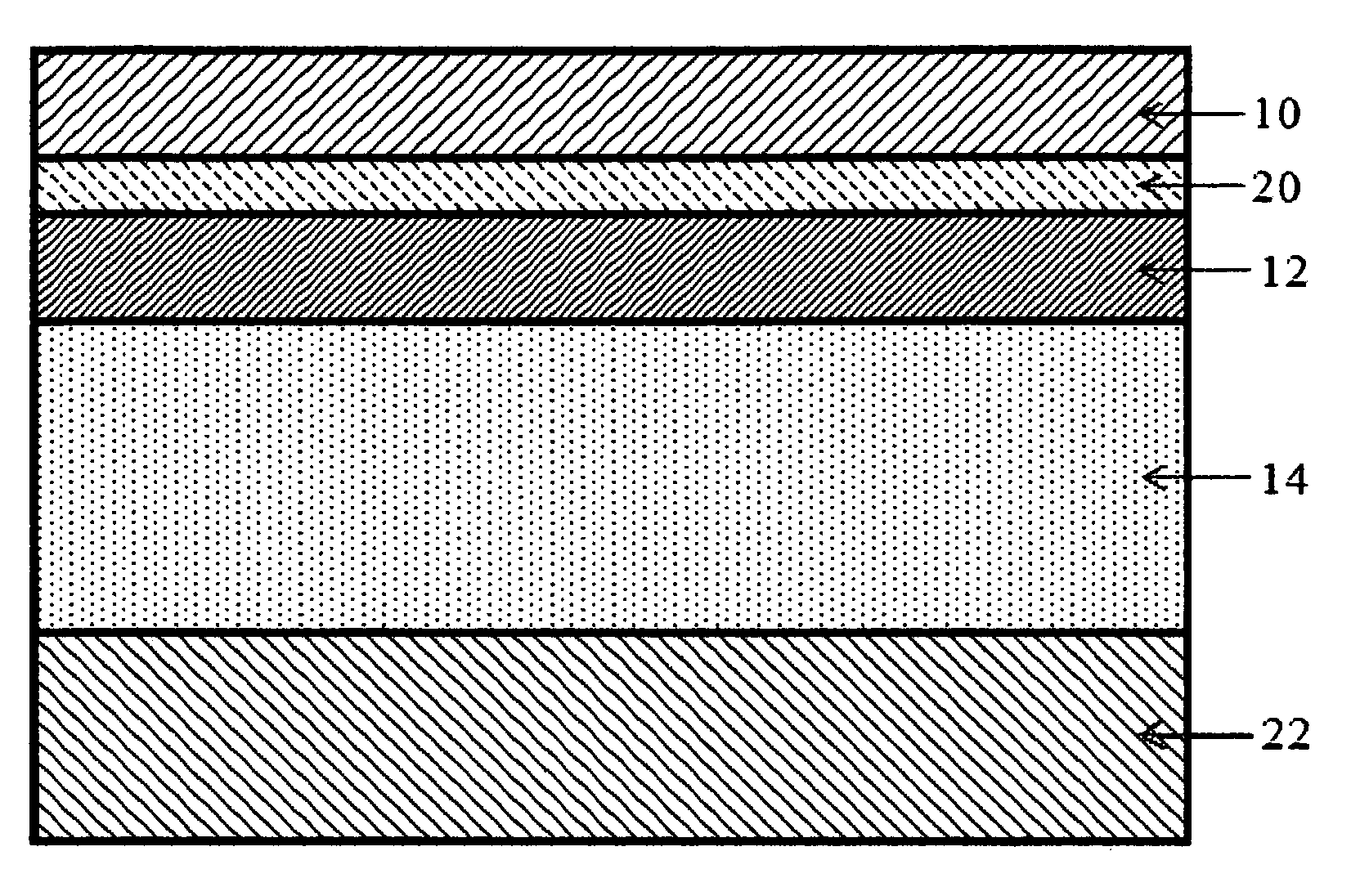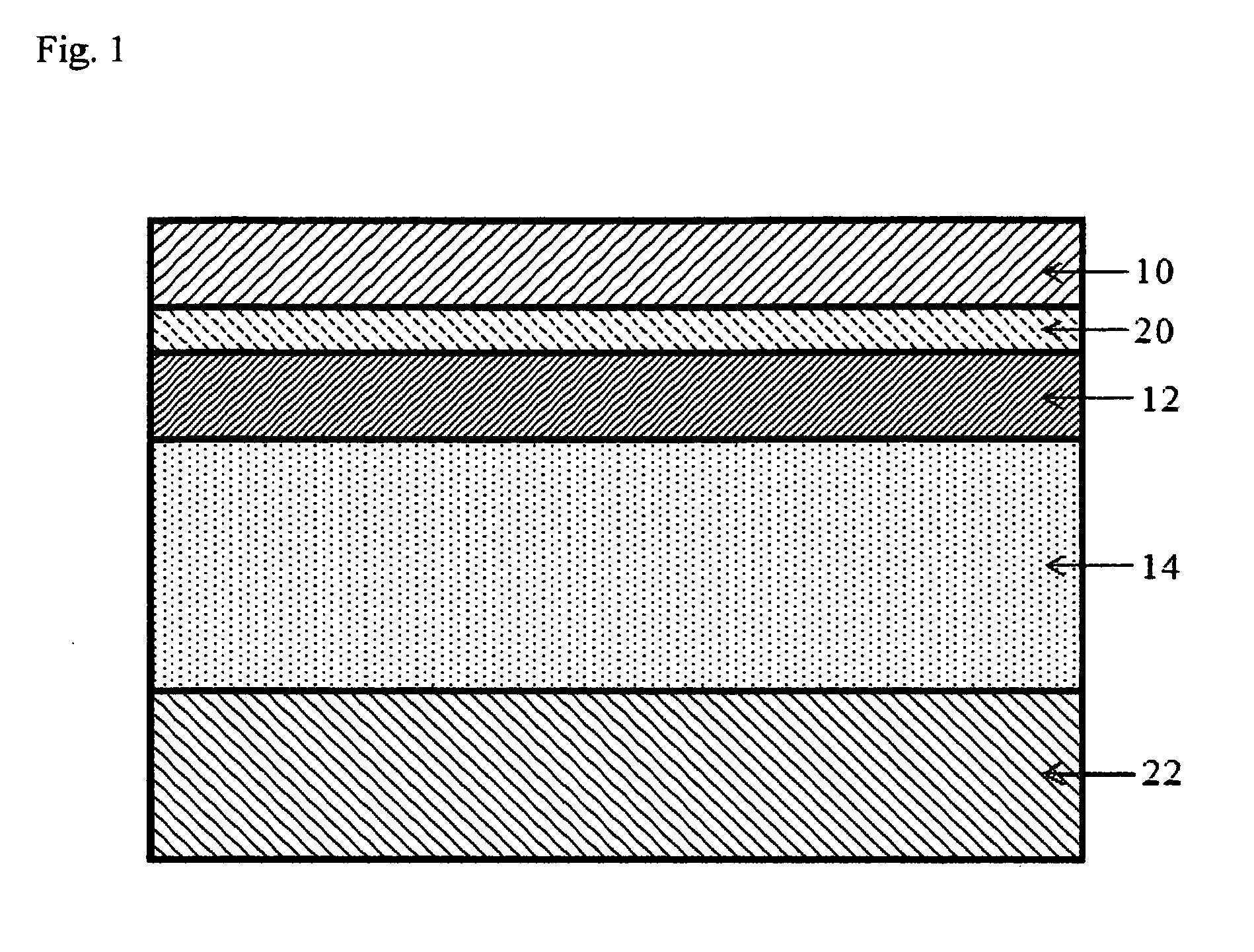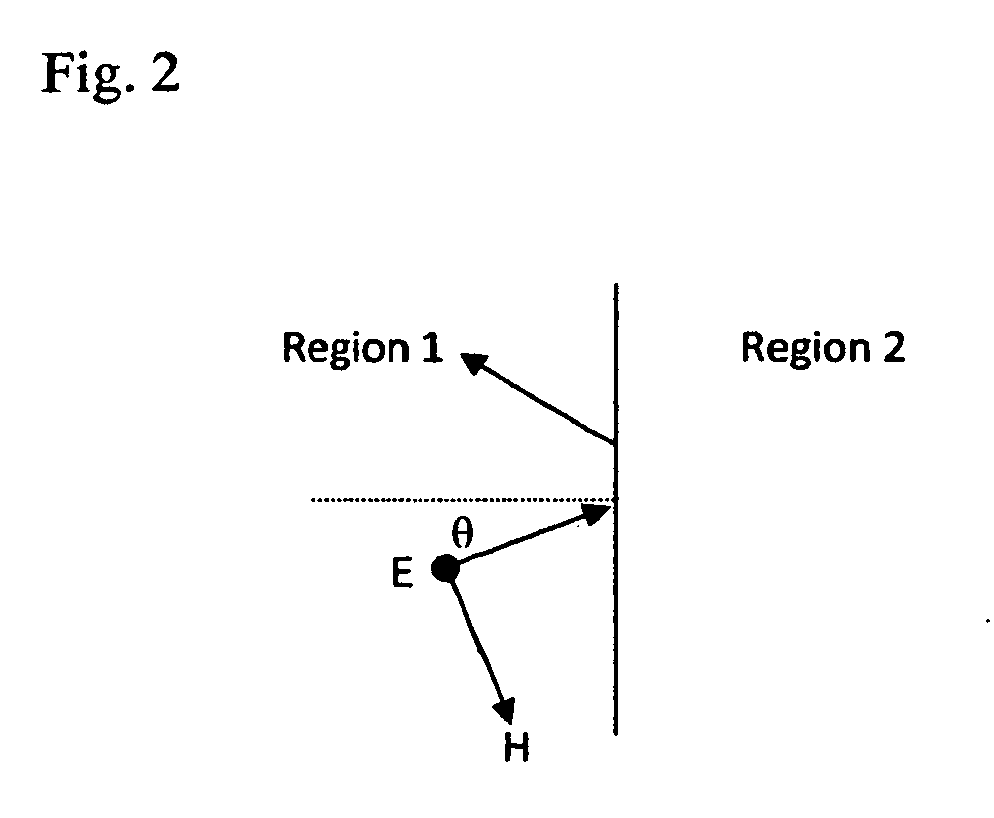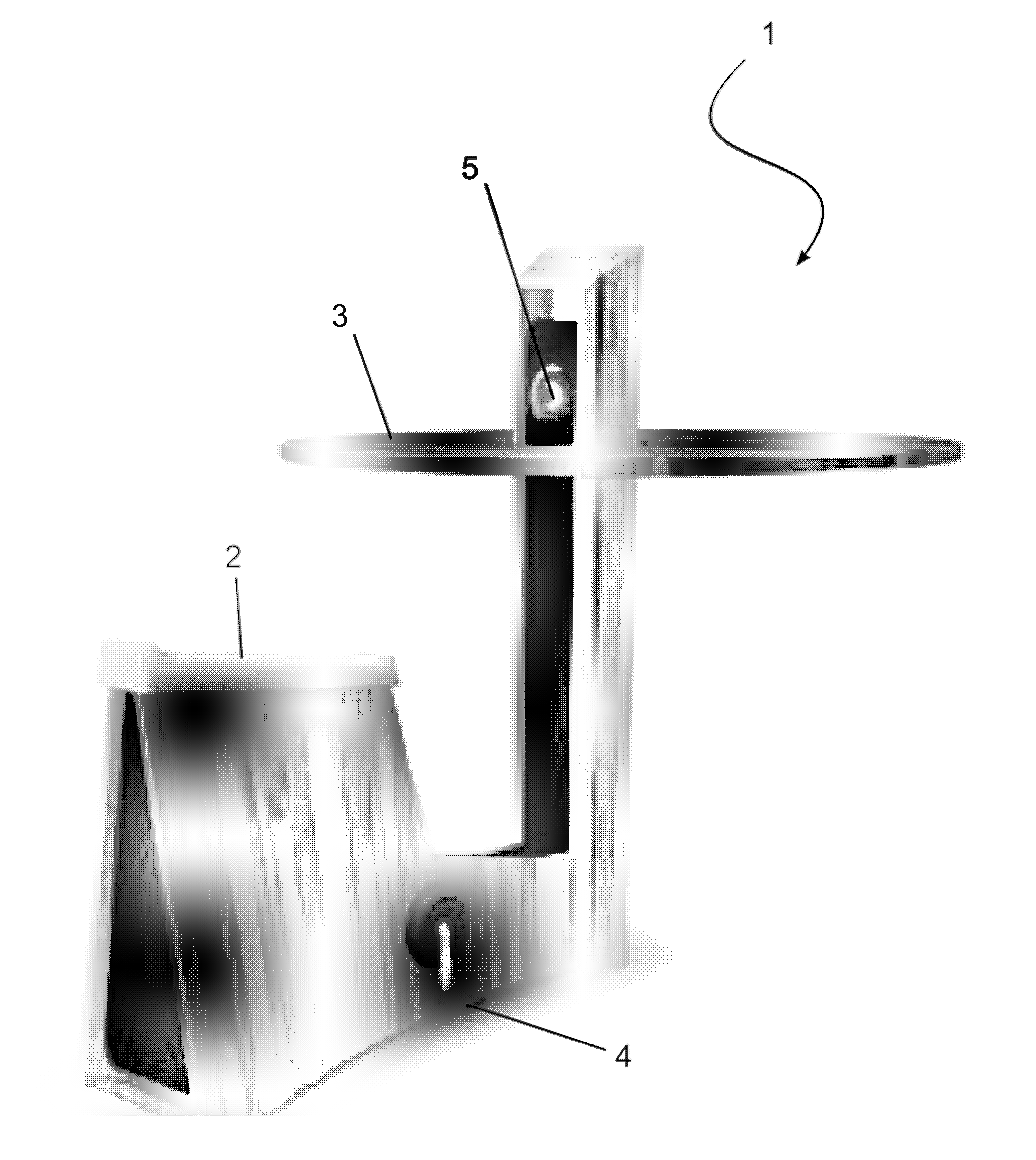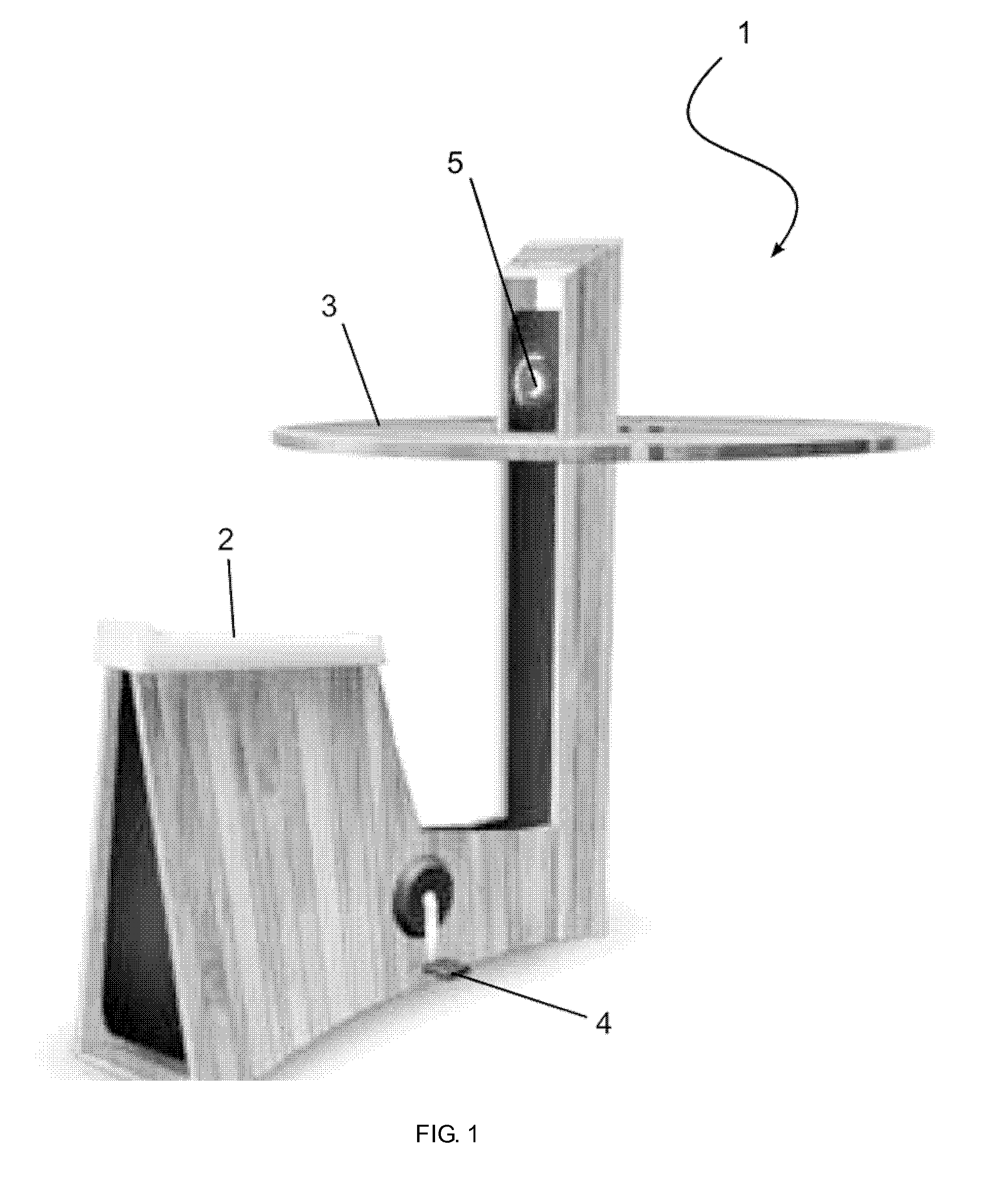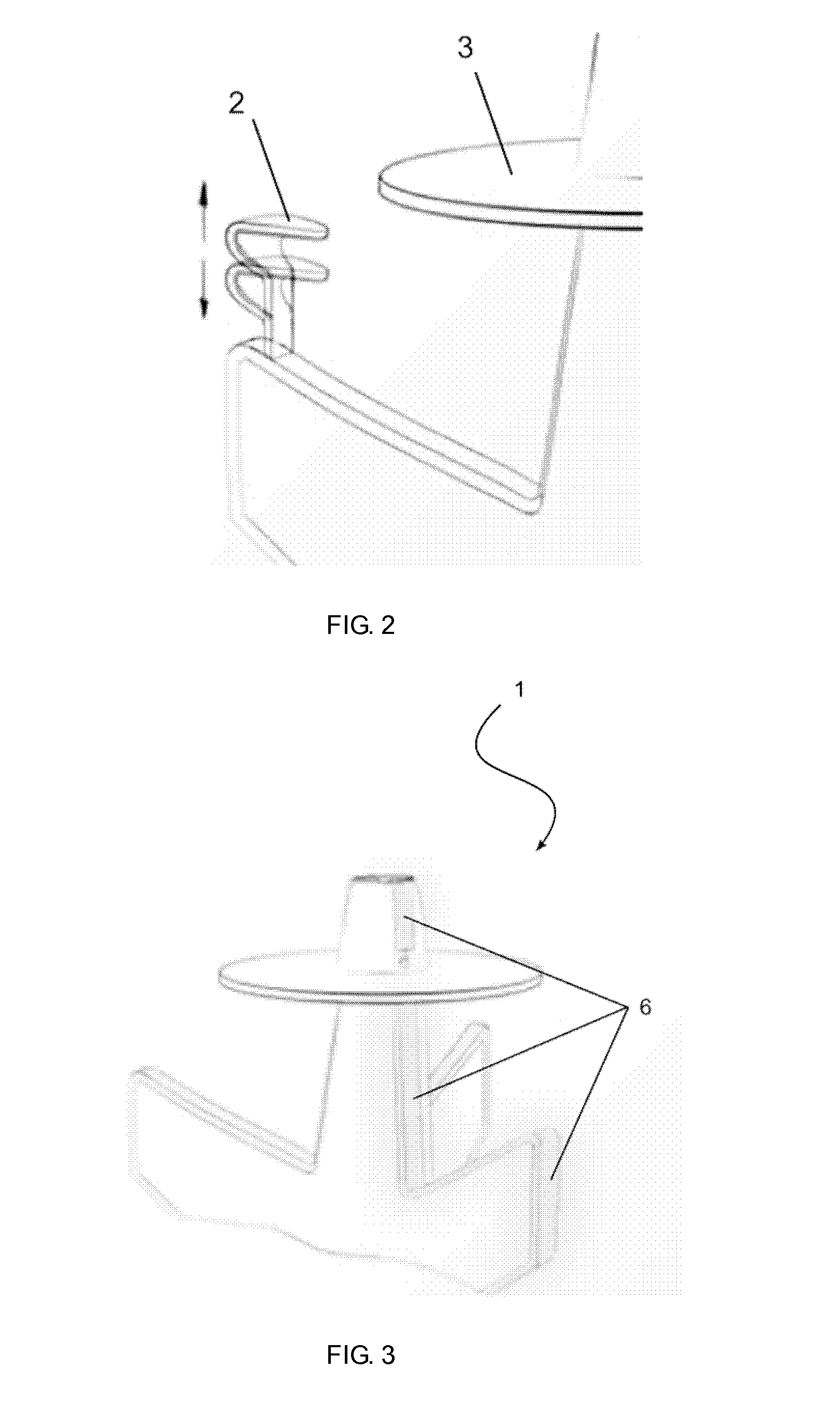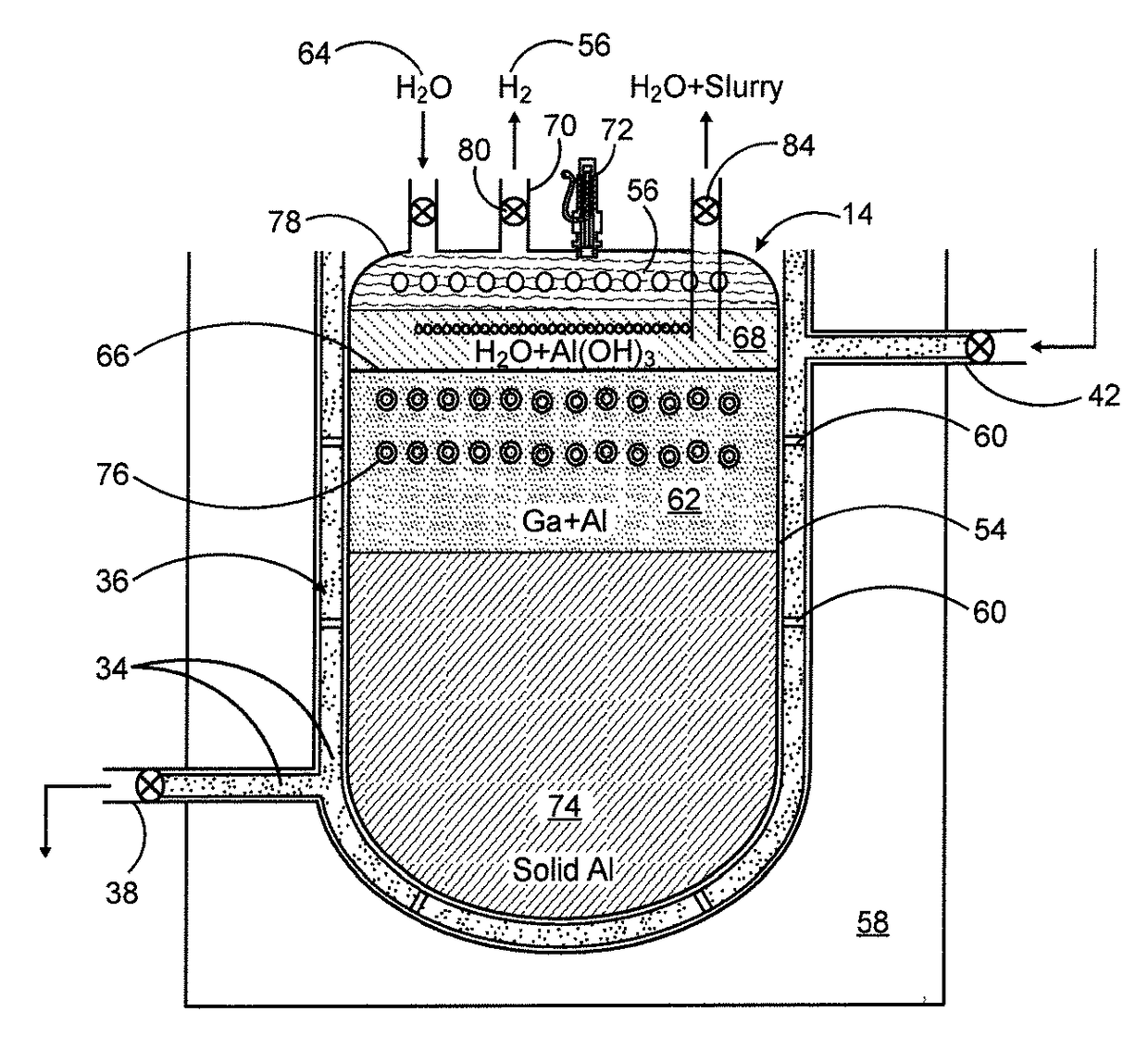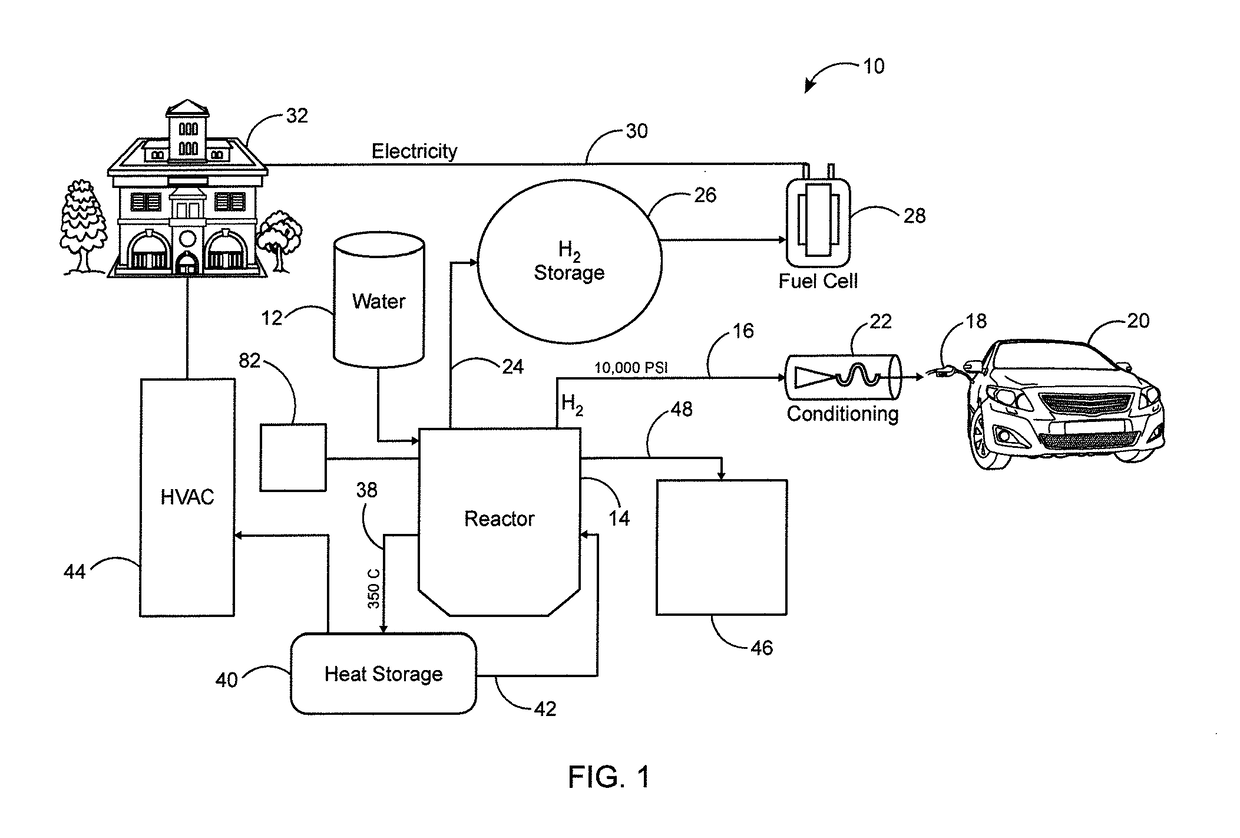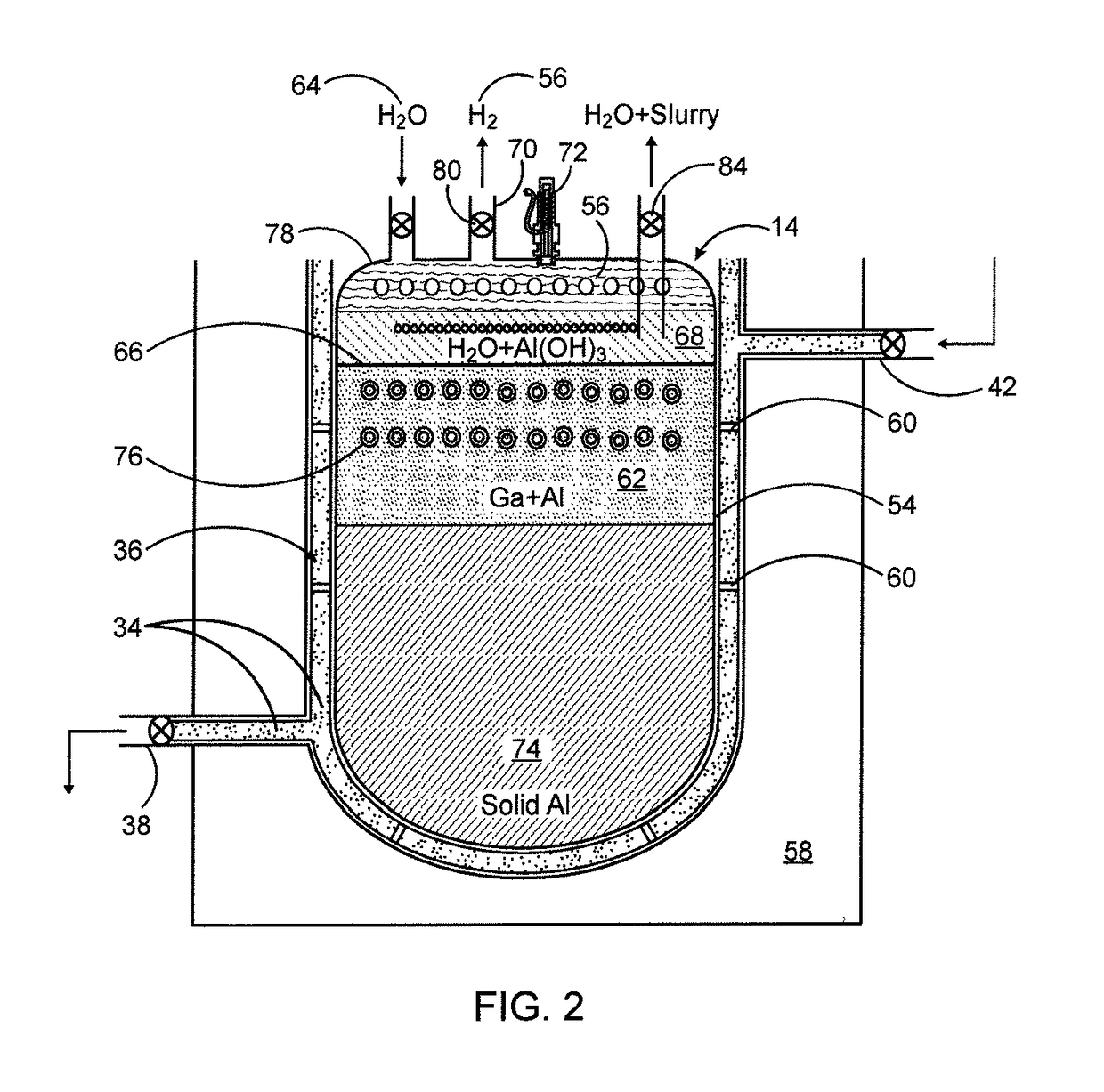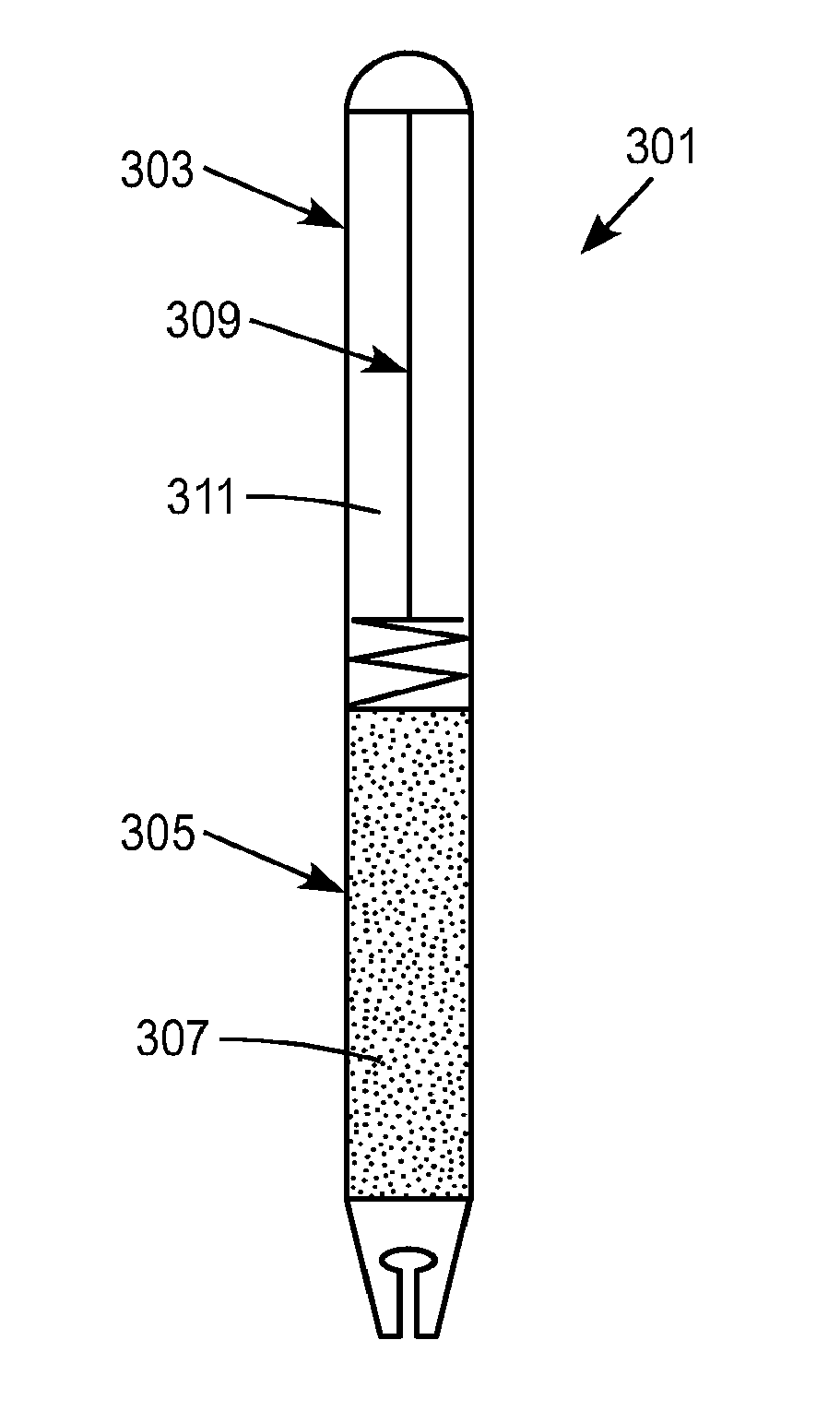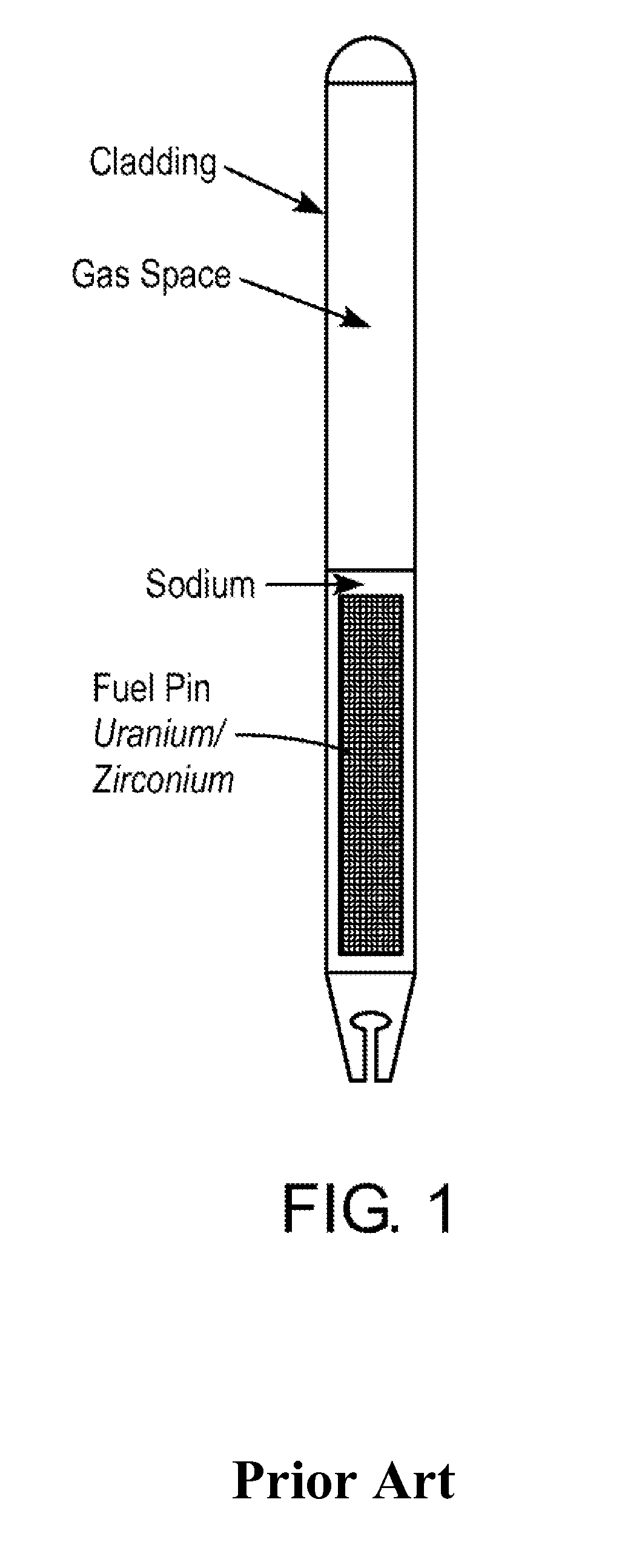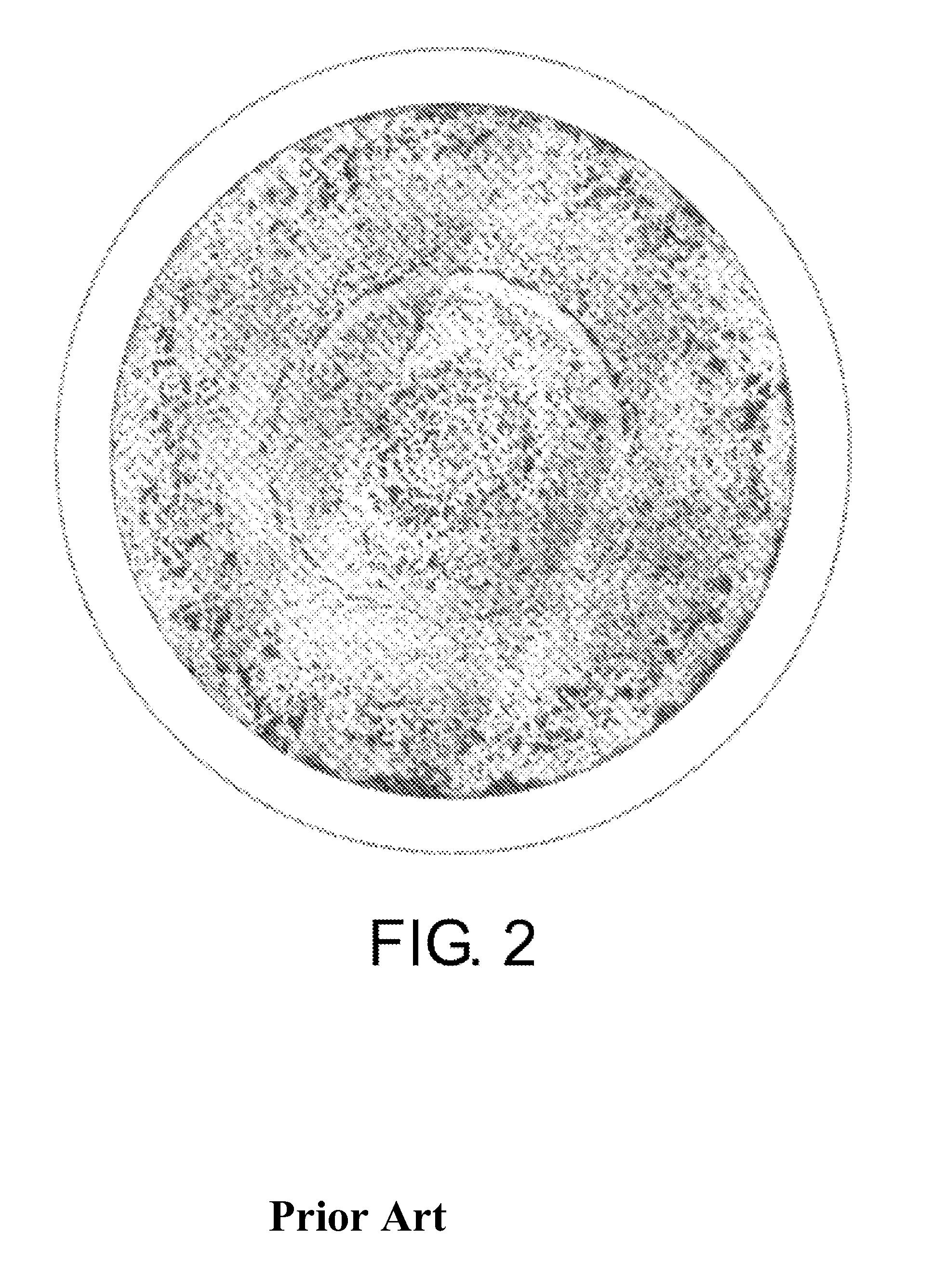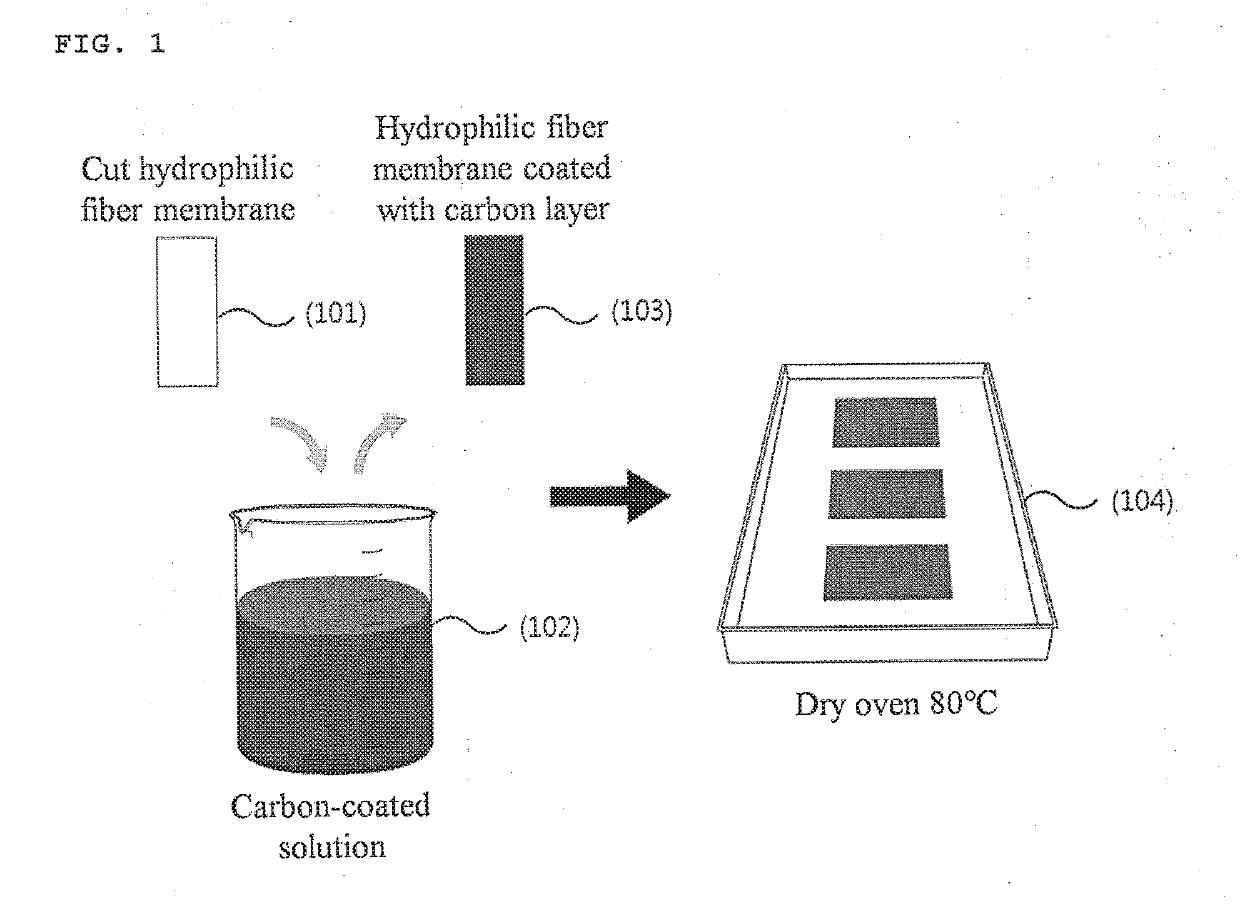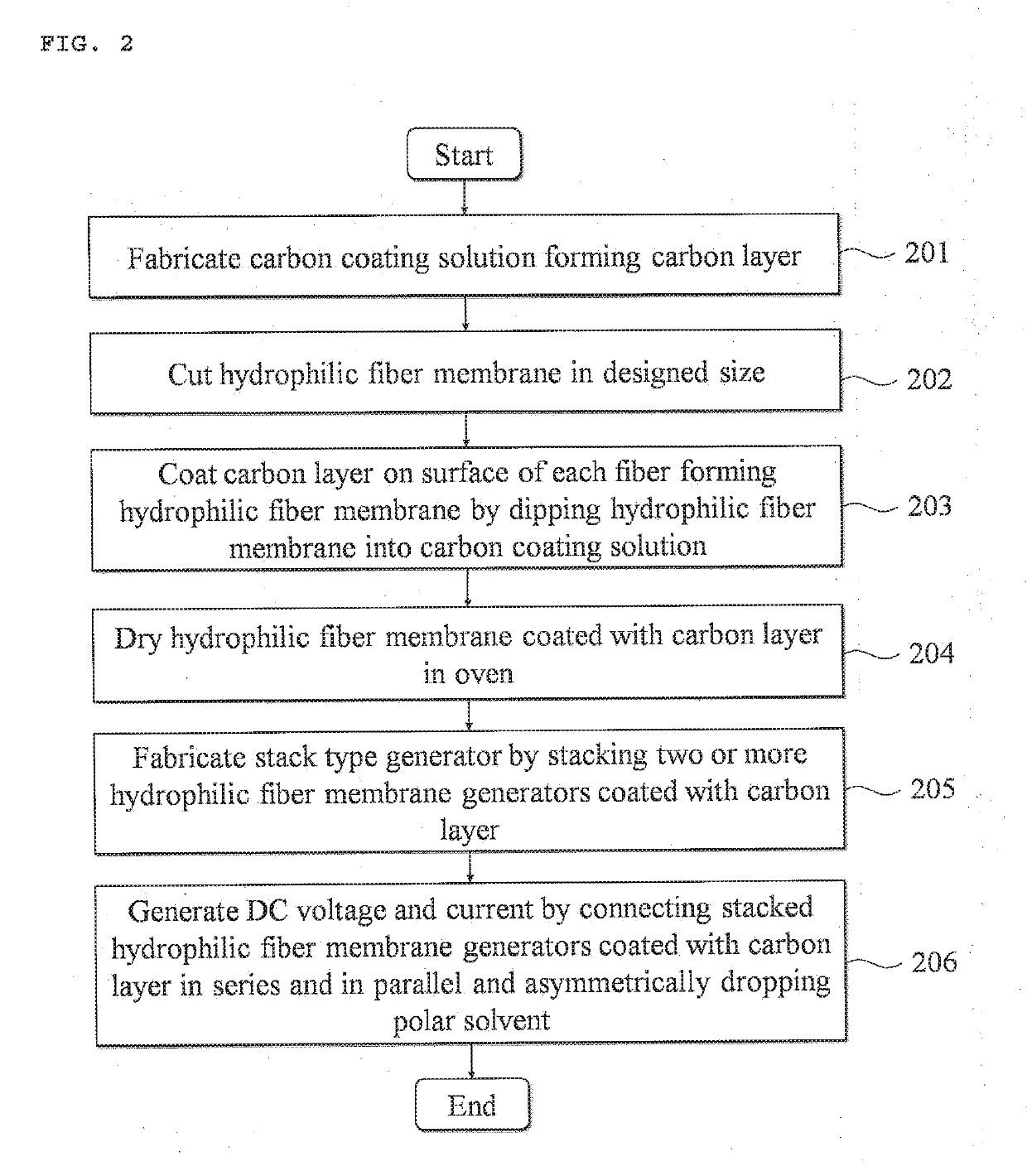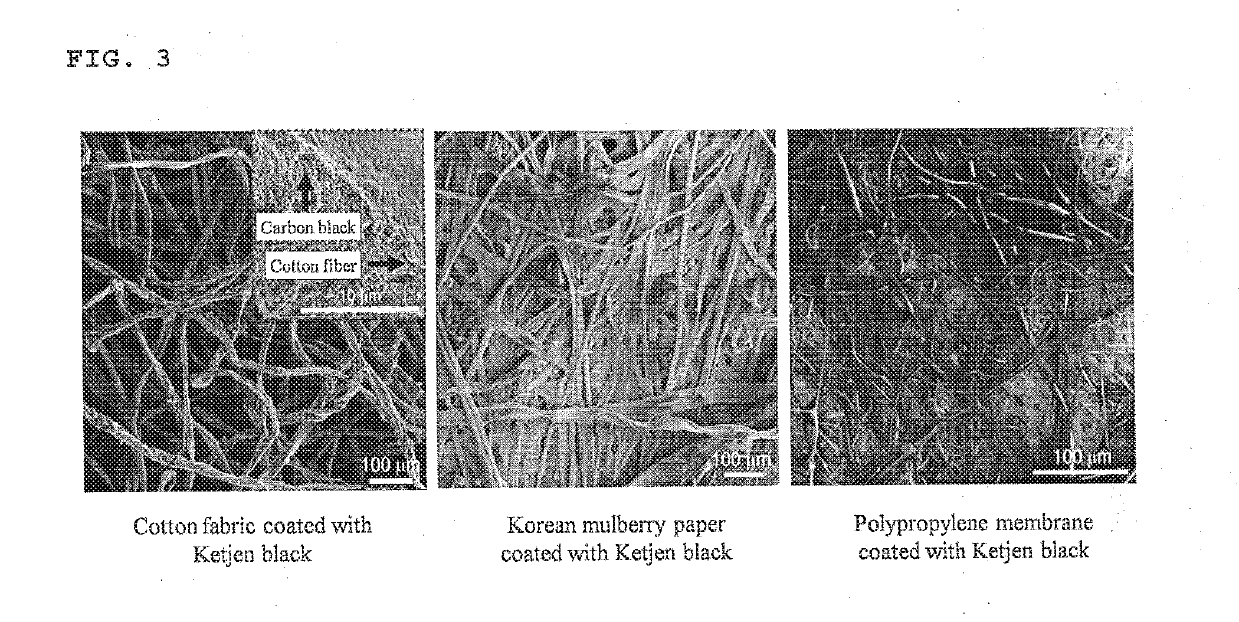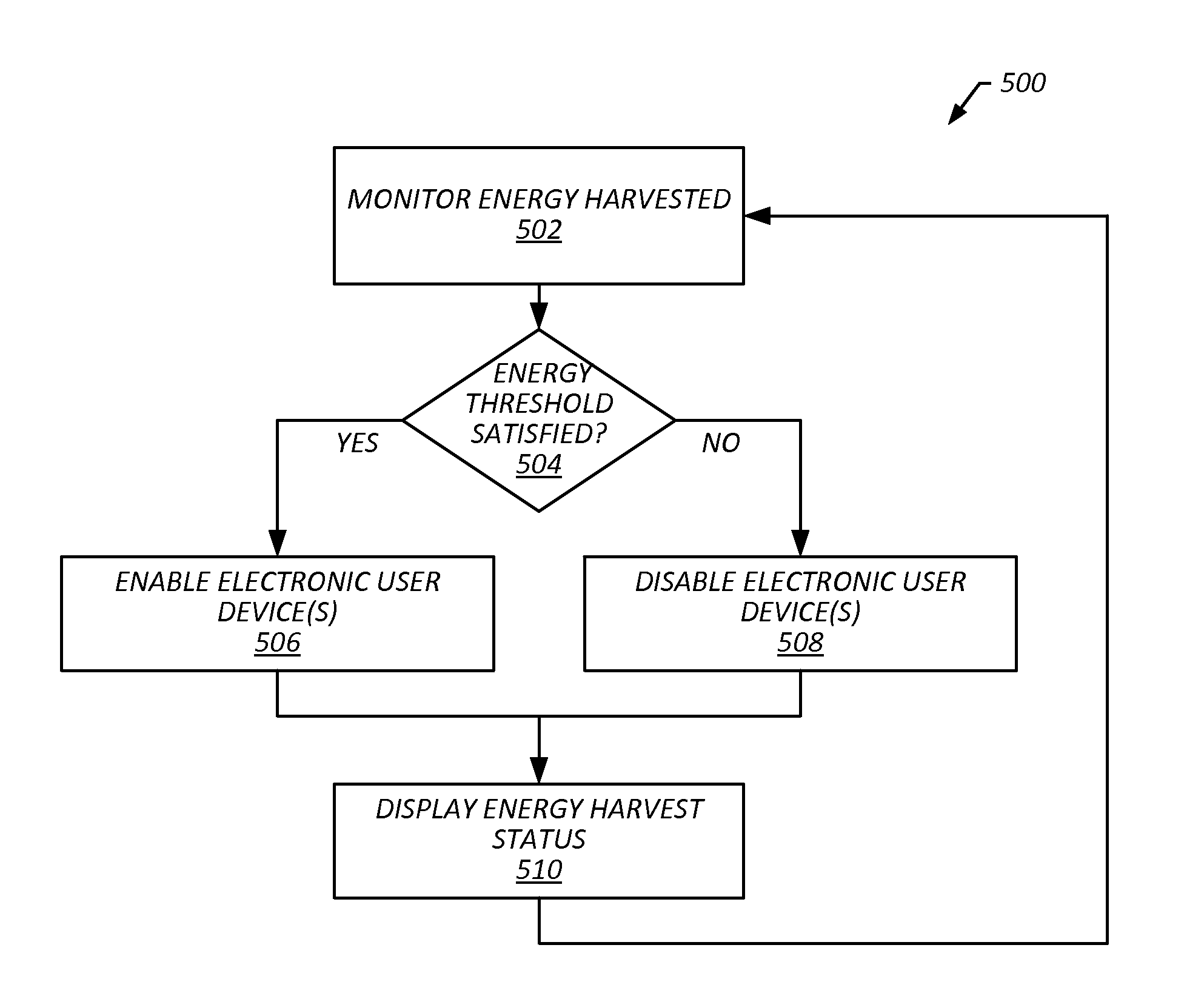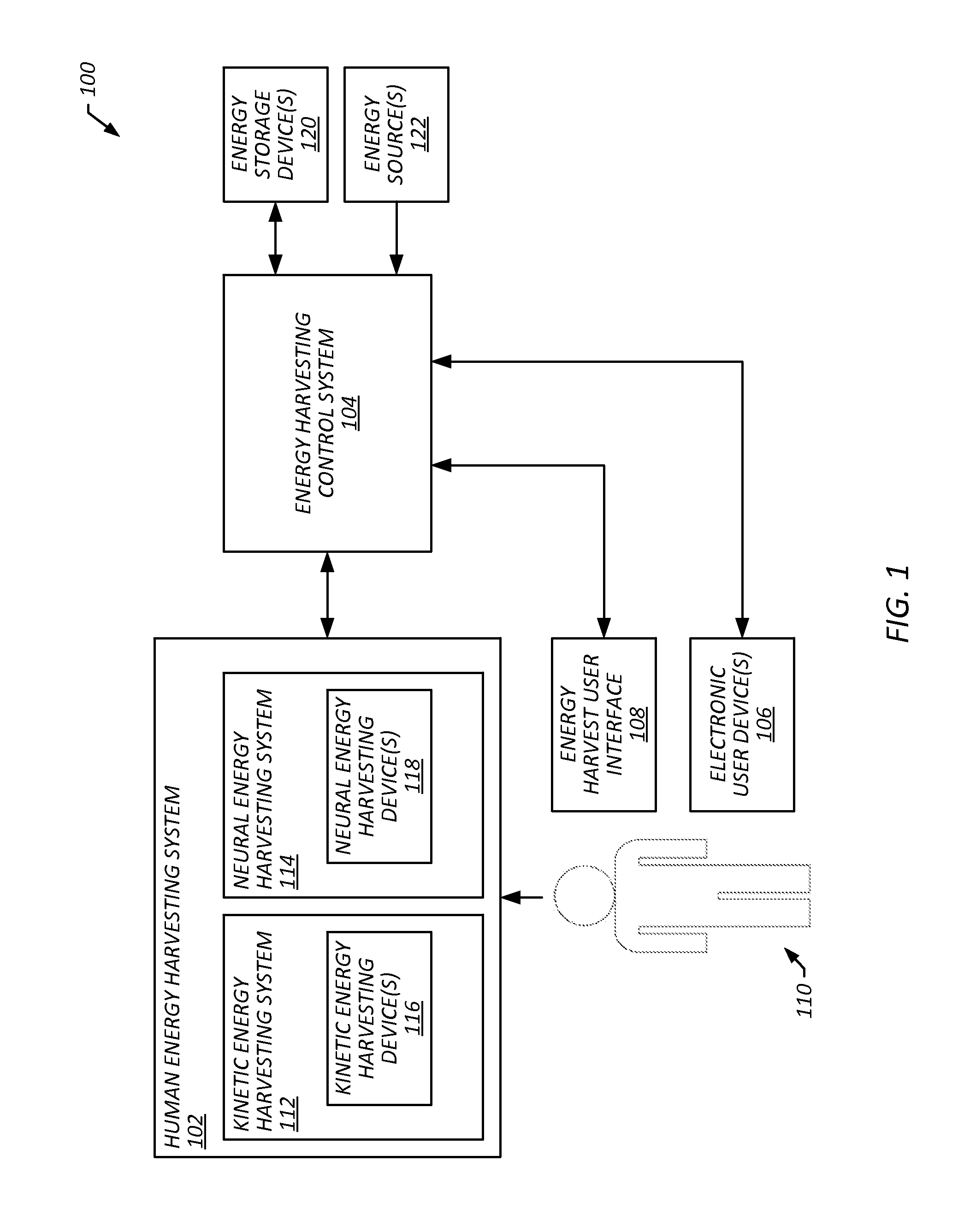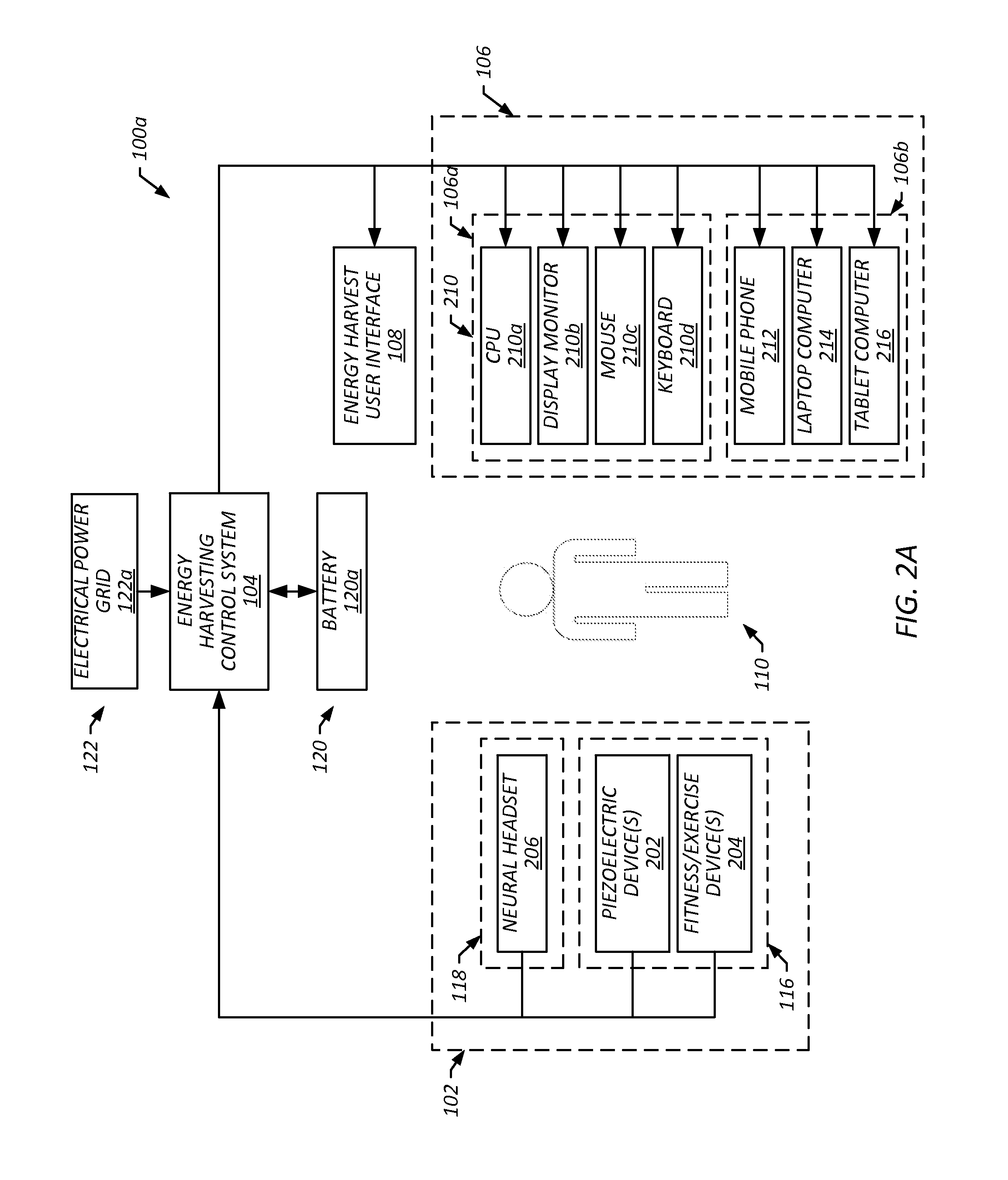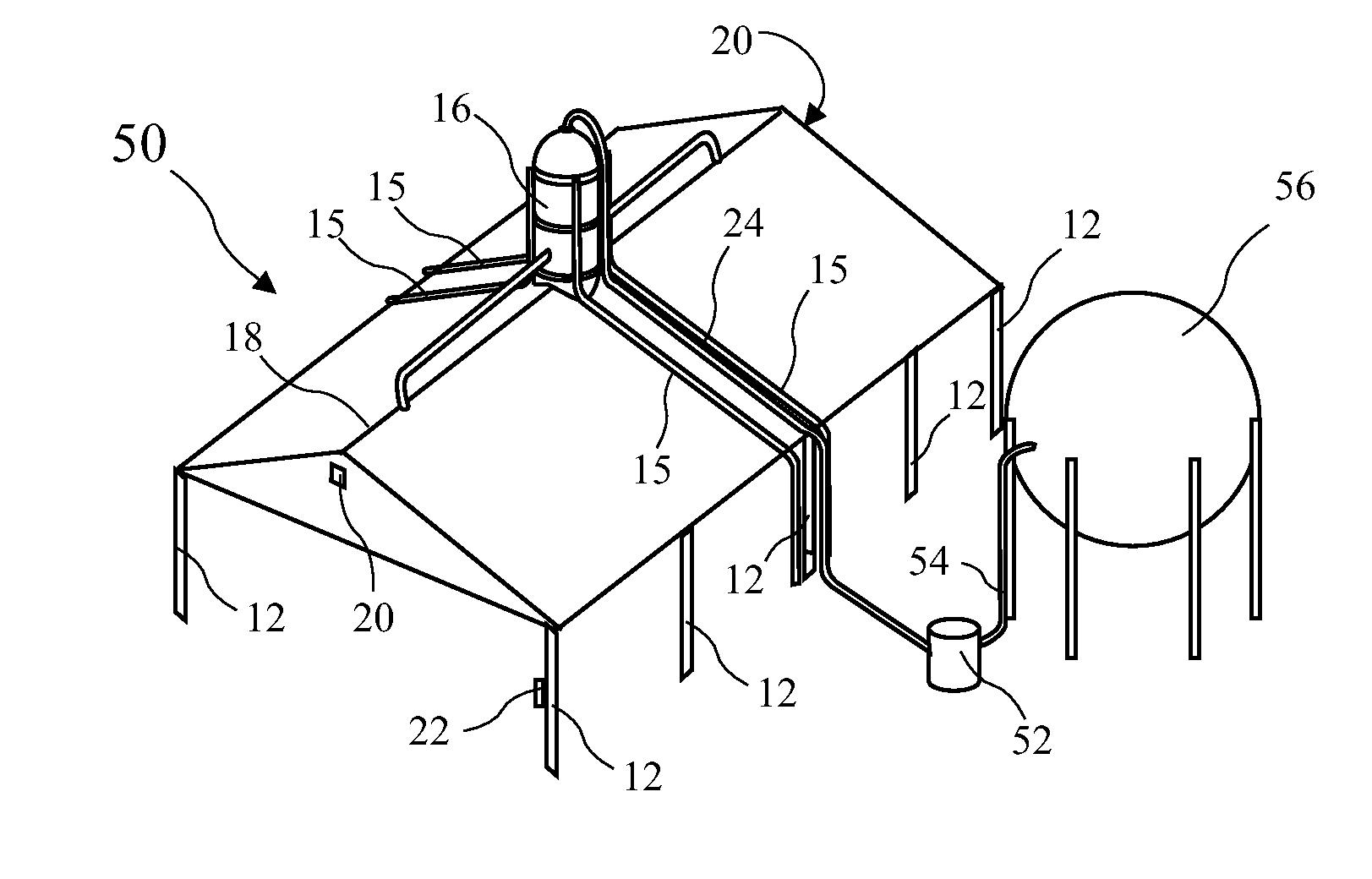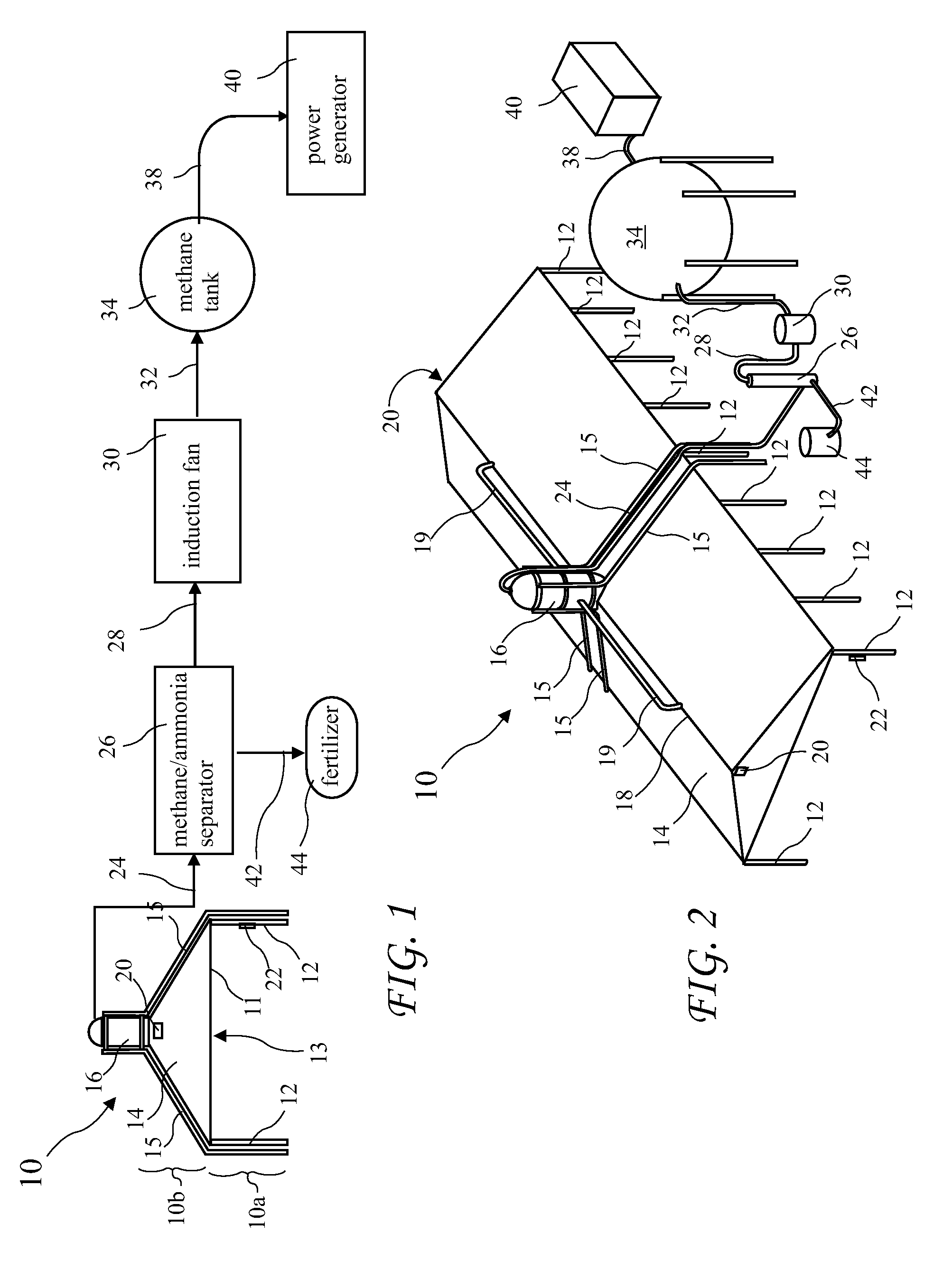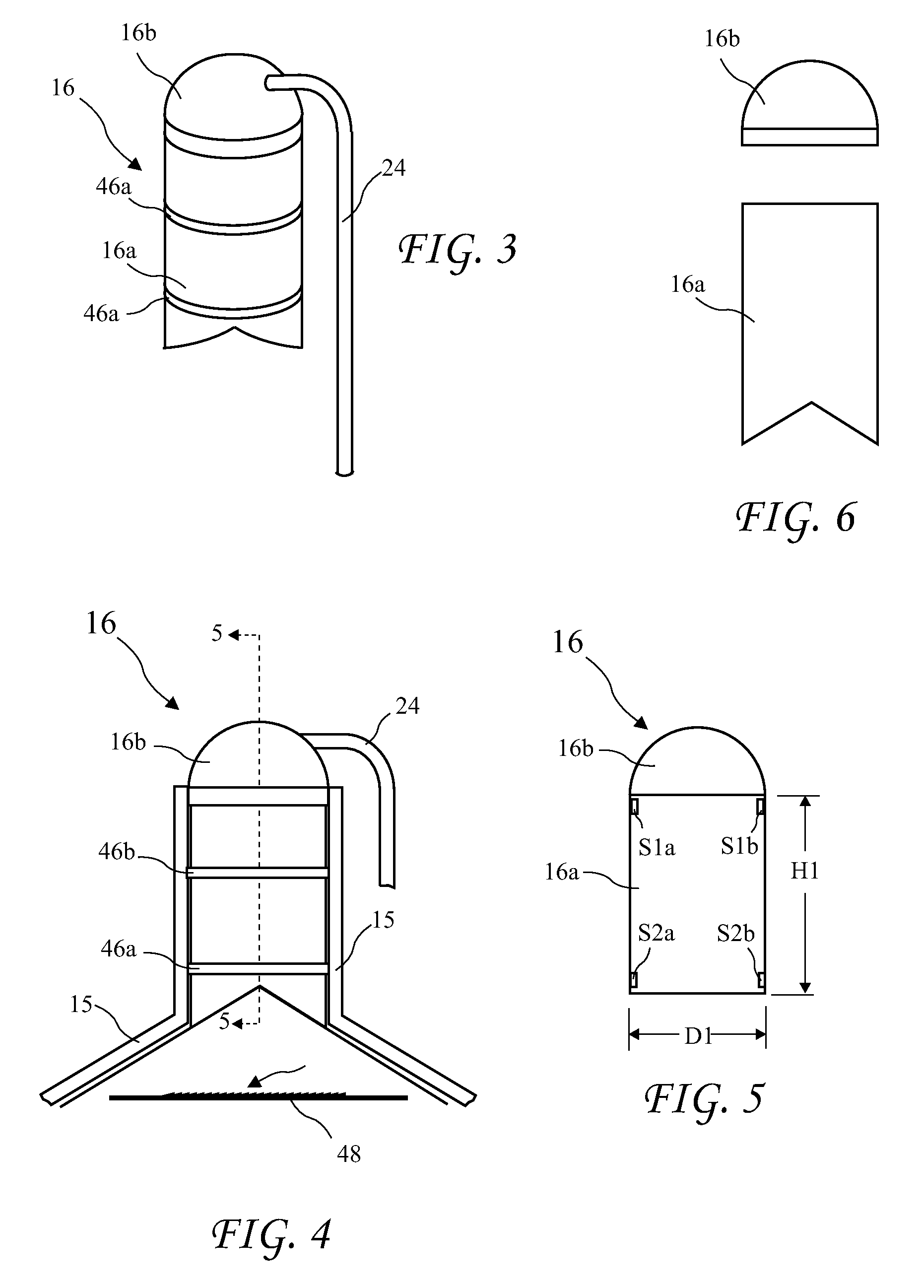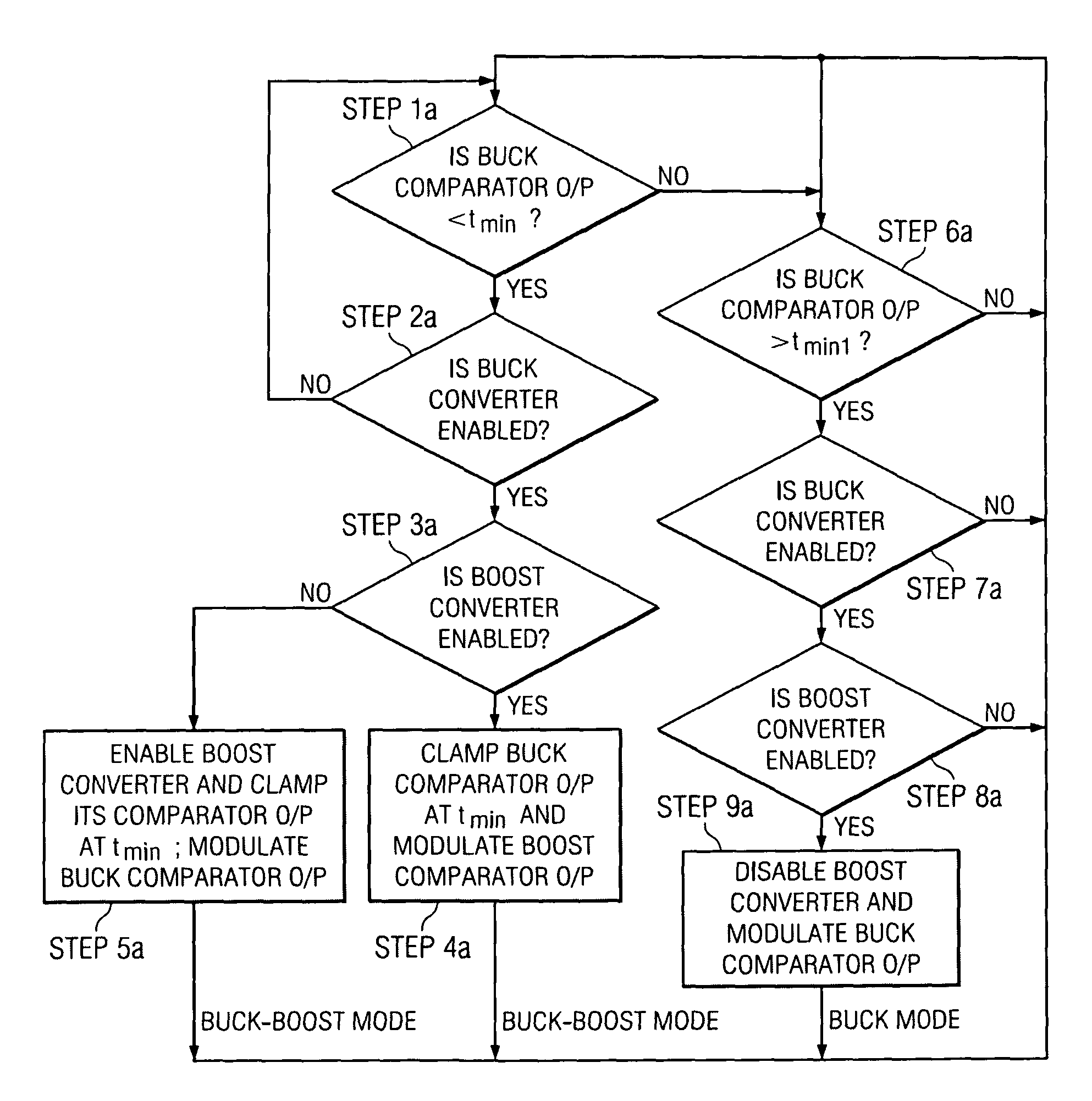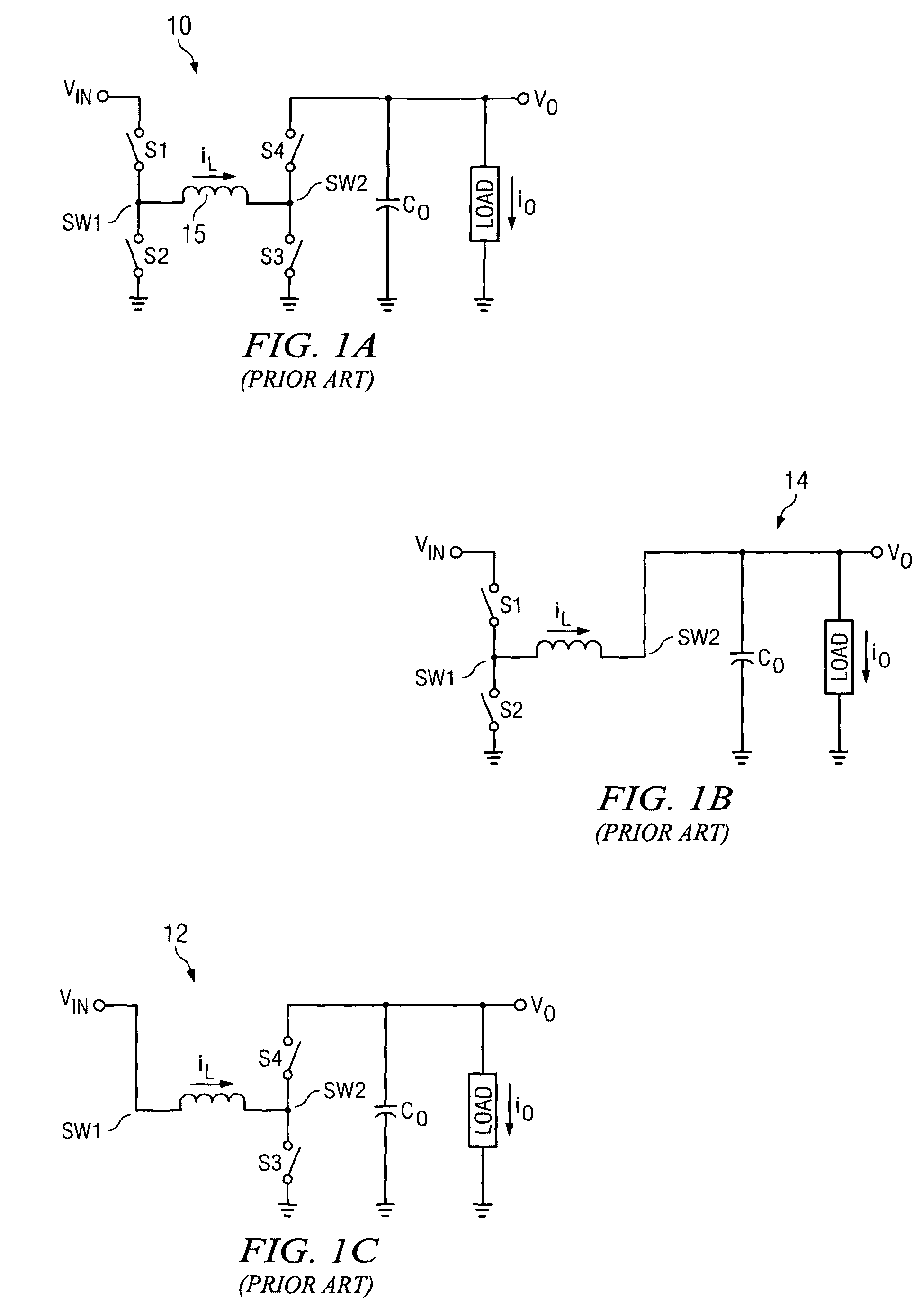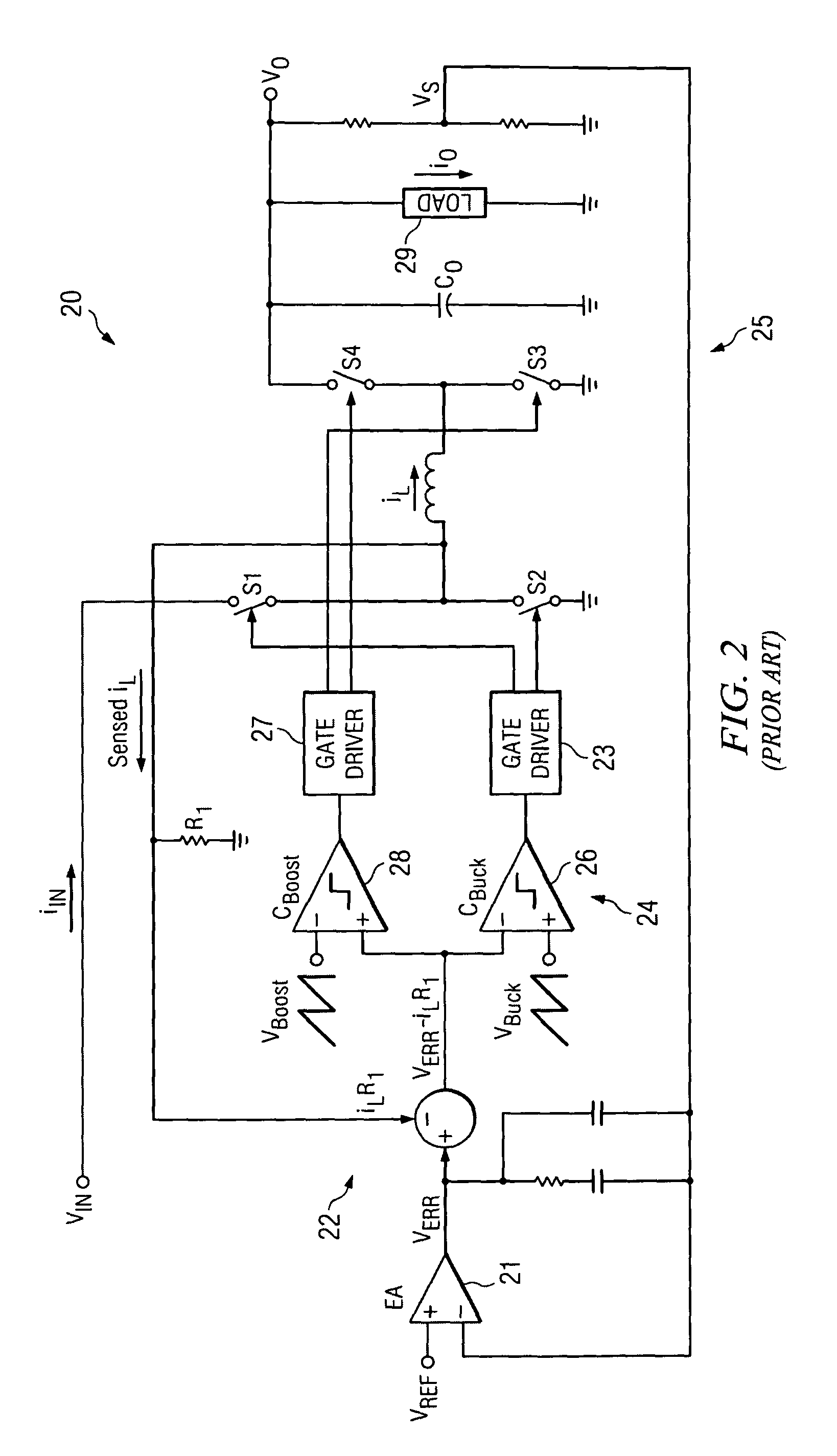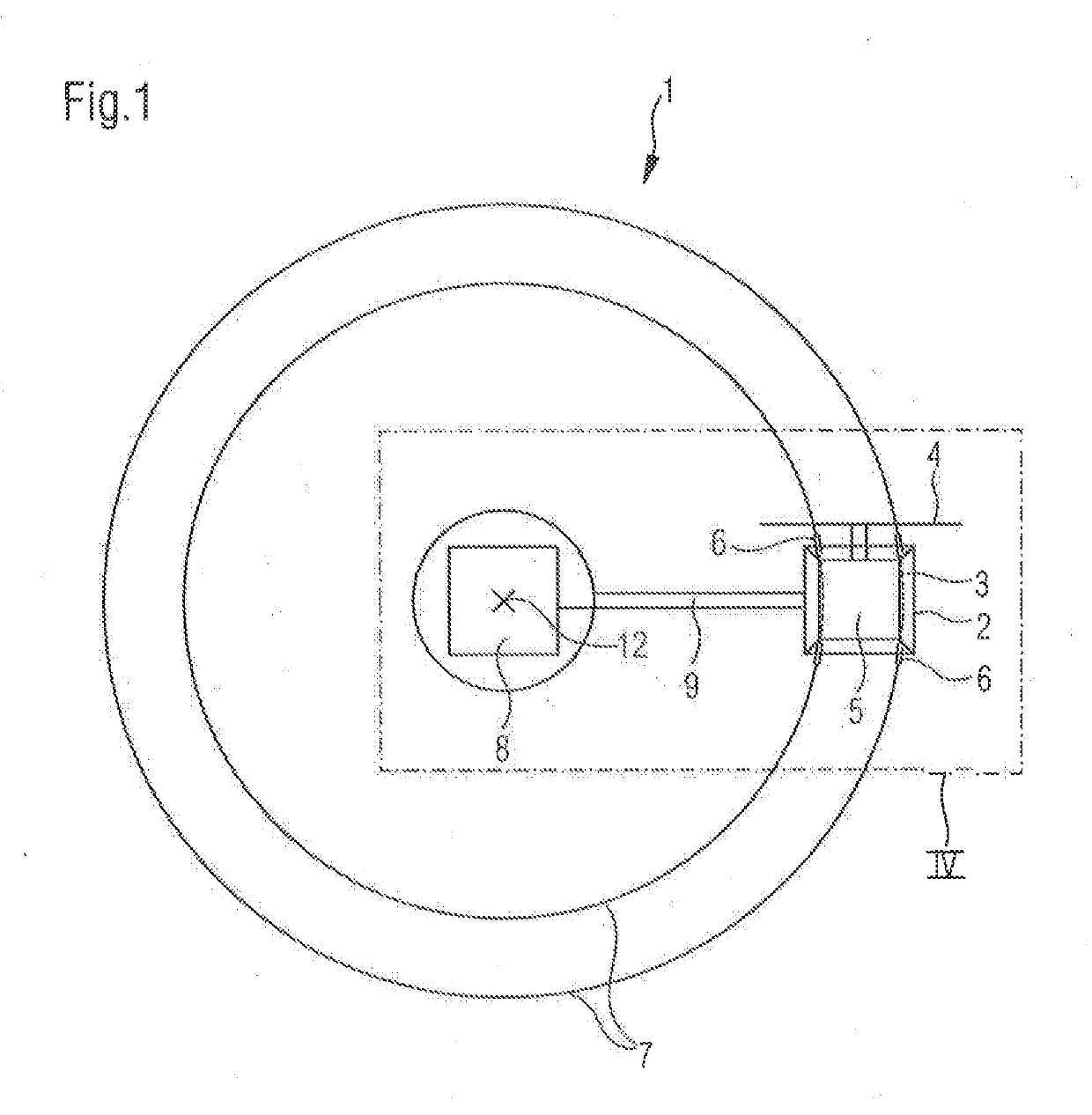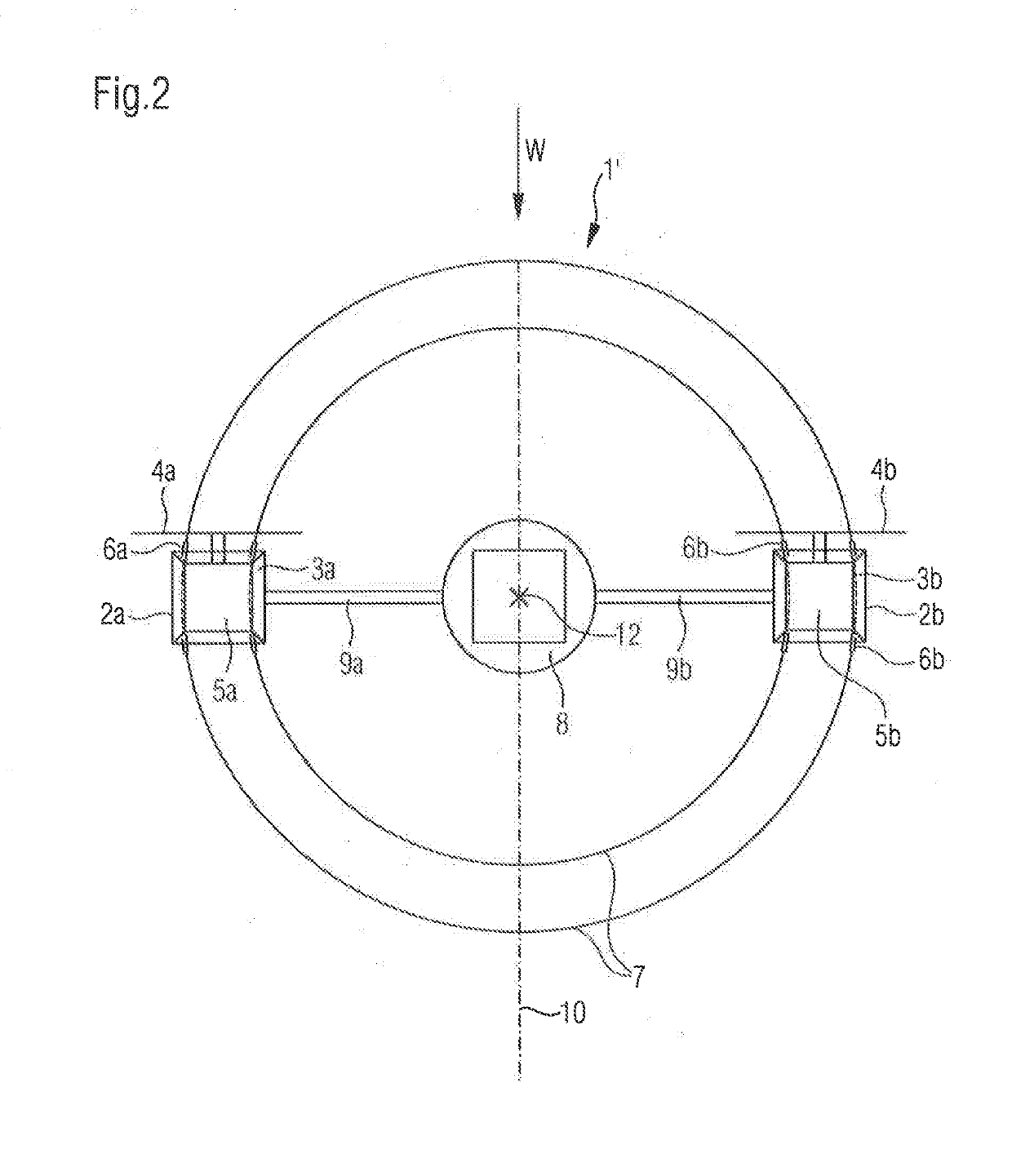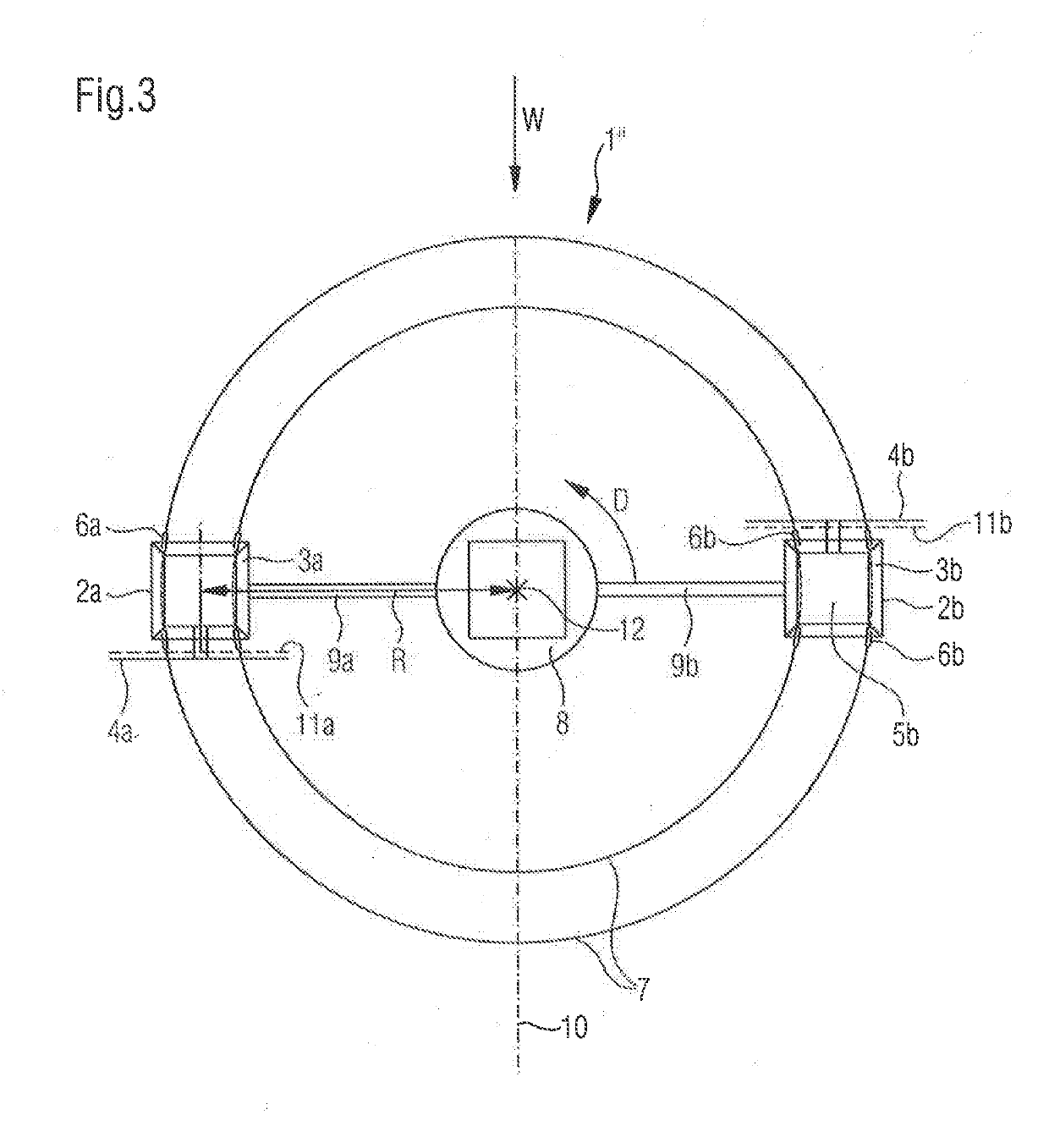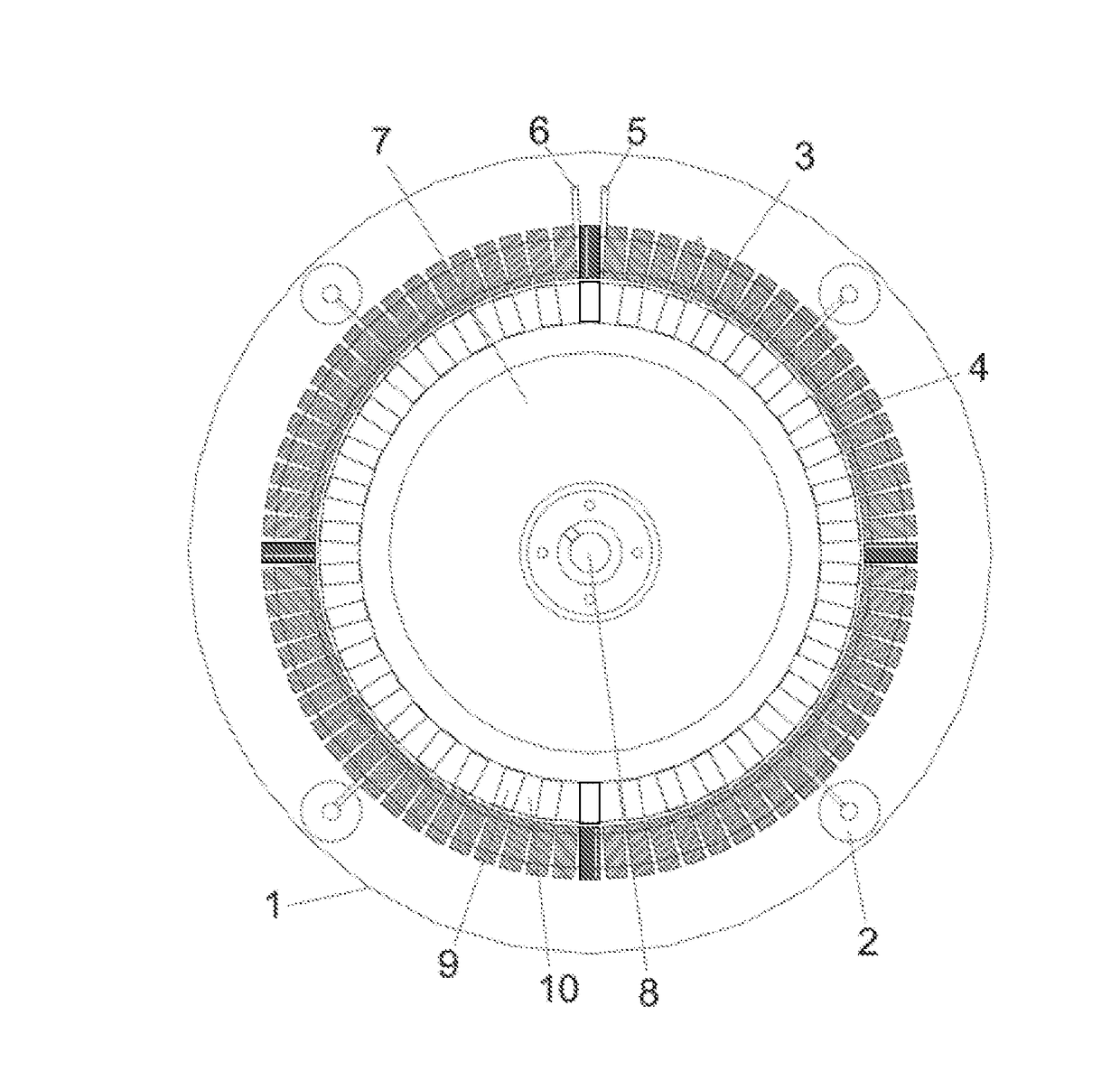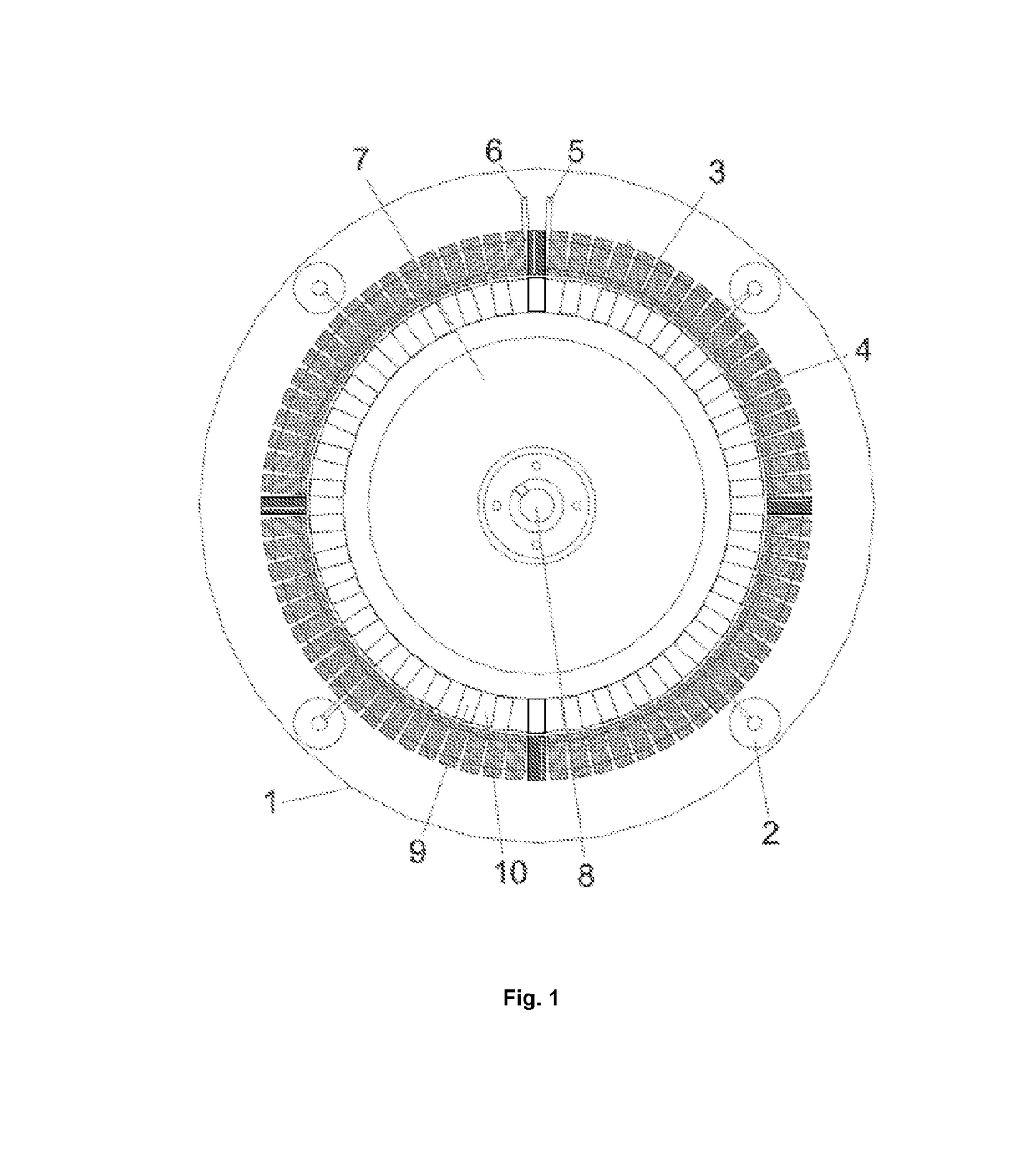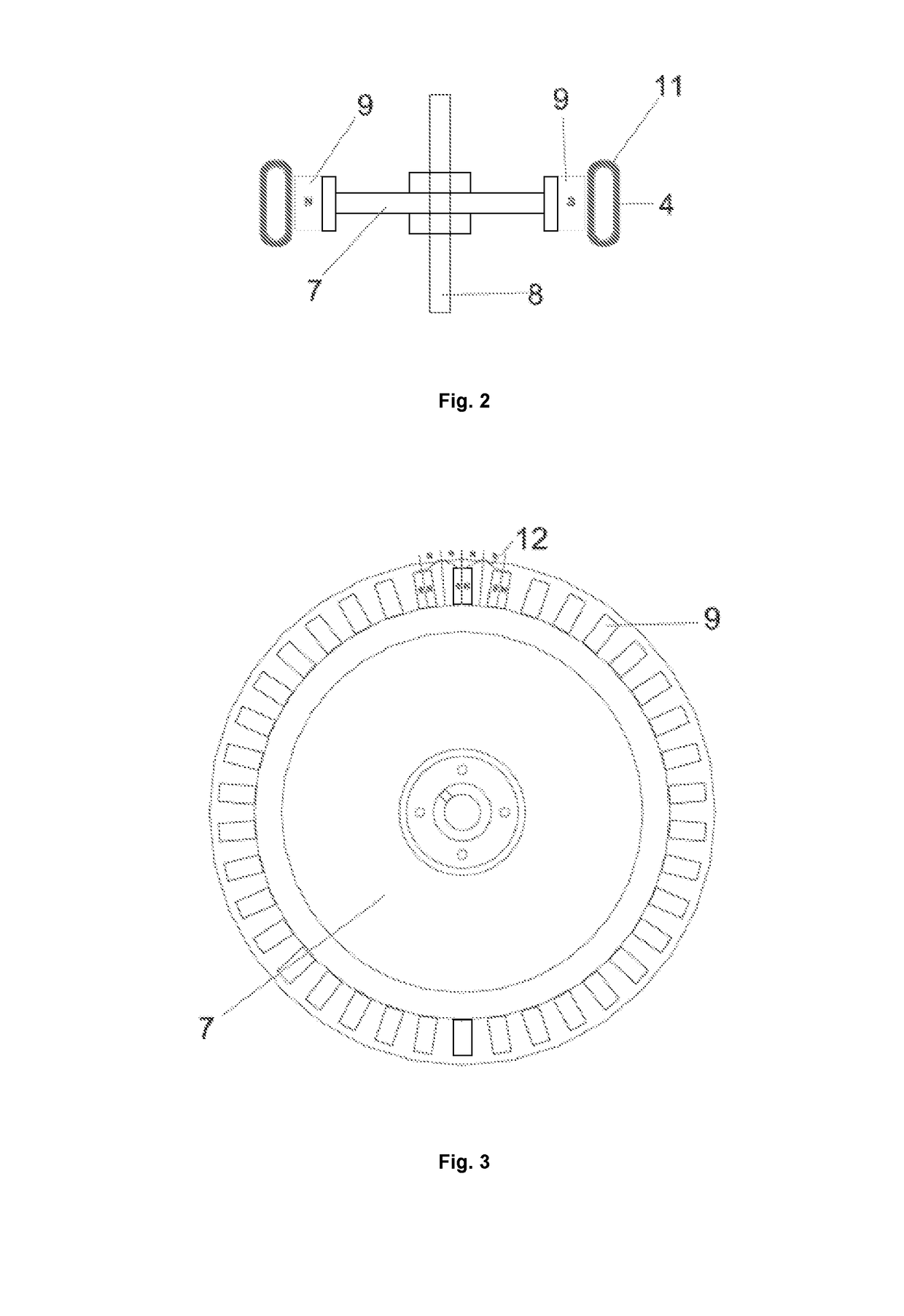Patents
Literature
37results about How to "Generate energy" patented technology
Efficacy Topic
Property
Owner
Technical Advancement
Application Domain
Technology Topic
Technology Field Word
Patent Country/Region
Patent Type
Patent Status
Application Year
Inventor
Sealed shaft gravity buoyancy energy system and method of use thereof
InactiveUS20060042244A1Reduce sizeReadily availableHydro energy generationEngine componentsGravitational forceVALVE PORT
A sealed-shaft gravity-buoyancy energy system and method of use thereof, wherein a wheel is powered by ball masses which fall under gravitational force, thereby causing the wheel to rotate. The ball masses are collected and inserted into a fluid shaft, wherein the fluid shaft comprises at least two separate columns having valves at the ends thereof to provide a sealing function, thereby preventing fluid loss. Buoyant force raises the ball masses to the top of the device, wherein the ball masses are deposited once again onto the wheel. A generator or other device utilizes the rotational force of the wheel to create energy.
Owner:VILLALOBOS VICTOR
Particulate metal fuels used in power generation, recycling systems, and small modular reactors
ActiveUS20100303193A1Fix fuel costEliminate needNuclear fuel reprocessingFuel elementsNuclear reactor coreNuclear reactor
A metal particulate fuel system is described. The metal fuel system may include particulate metal fuel for use in nuclear reactors. The particulate metal fuel may include a plurality of particles of at least one enriched alloy where the particles are compacted into a fuel column. The metal particulate fuel system may also include a cladding and / or a gas-filled plenum.
Owner:ADVANCED REACTOR CONCEPTS
Method and system for producing energy from waste
A method and system for the conversion of waste into energy in a sealed system where combustion does not take place and the operating pressure prior to the inlet of the steam or power generating equipment is maintained below atmospheric pressure. Destruction of the RDF (refuse derived fuel) is accomplished by subjecting the RDF to a high temperature environment under controlled conditions in a purpose designed and built reactor. The high temperature environment, <5000° C., is achieved through the use of one or more non-transferred plasma torches for generation of plasma gas. The plasma gas exiting the torch and provides the thermal energy for the continual gasification of metallurgic coke configured as a carbon bed in the lower part of the reactor, which acts as a thermal catalyst and this provides the thermal energy for the gasification process.
Owner:GREEN ENERGY & TECH
Method and apparatus for repurposing well sites for geothermal energy production
InactiveUS20190128567A1Improving efficiency and economicsGenerate energyCollector components/accessoriesLighting and heating apparatusInjection wellProcess engineering
A method and system for capturing geothermal energy. Injection and production well pairs in a geothermal zone are connected with a power generation apparatus between the production well of one well pair and the injection well of an adjacent well pair in a subterranean closed loop daisy chain configuration. Fluid circulated through the loop and the power generation apparatus recover subterranean heat energy. Specification is also disclosed in respect of application of the technology to repurpose an unused or suspended oilfield.
Owner:EAVOR TECH INC
Method and system for generating renewable energy
InactiveUS20080272233A1Reducing global warmingGenerate energySolar heating energyPV power plantsAutomotive engineeringRenewable energy
A method, system and apparatus for the generation of energy. The method system and apparatus can include one or more airships that collect solar energy and convert it into electricity. An array of airships may be used so as to increase the collection rates of solar energy. The array of airships may include an airship that receives and stores electricity from the other airships in the array. Additionally, the solar energy may be transmitted to a terrestrial collection and distribution station.
Owner:MARLIN KENNETH F
Multiple switch node power converter control scheme that avoids switching sub-harmonics
ActiveUS20100019745A1Eliminates switchingGenerate energyDc-dc conversionElectronic switchingOperating pointTransverter
A method of and system for modulating buck and boost modulation ramps of a multiple switch node power converter without overlap. As the pulse width or duty cycle of the signal to a modulated complementary switching pair approaches a pre-established reference pulse width or duty cycle, plural fixed-width or fixed duty cycle pulses are generated and introduced to a nonmodulated complementary switching pair. A controller detects proximity to the pulse width or duty cycle limit and, correspondingly, initiates prematurely a pseudo-buck-boost mode in the power converter by generating fixed-width or fixed duty cycle pulses to the nonmodulated complementary switching pair while the duty cycles or pulse widths to the modulated complementary switching pair are still controlled by the appropriate modulation ramp. The net effect is that the power converter reaches its optimal operating point without overlap and eliminates any sub-harmonic switching.
Owner:TEXAS INSTR INC
Orbiting drum wind turbine and method for the generation of electrical power from wind energy
InactiveUS20110198857A1Compact designReduced susceptibility to failurePropellersWind motor controlAngle of incidenceGear wheel
A wind turbine captures energy from a flowing fluid medium using drum-shaped drive elements that spin while traveling along a continuous orbiting course around a base. Attached roller bearings engaging stationary raceways can guide the drive elements. Means for spinning the drive elements can include toothed belts engaging drive element cog wheels. Spinning can provide Magnus effect enhancement. Wind energy is captured by the drive element motion, then transferred to the base cog wheels by a toothed belt and finally fed to an output shaft. The invention includes locating drive elements in a moving fluid medium, spinning the drive elements as they are urged by the wind along a continuous orbiting course and capturing energy by linking the motion of the drive elements to an external device. The method includes adjusting the base's azimuth and the angle of incidence of the wind in response to wind direction and speed.
Owner:BECKER ERWIN MARTIN
Buoyancy energy cell
InactiveUS7969033B2Generate energyEfficient of electricityHydro energy generationPiston pumpsElectricityEngineering
A device for the generation of energy and in particular electrical energy includes a cell or chamber which moves upwardly and downwardly in a body of water. Cog wheels are connected to the cell. The cog wheels are connected to the shafts of generators. Rotation of the cog wheels operates the generators which produce energy. The cog wheels engage anchor chains or vertical supports. One end of each anchor chain is secured to an anchor located at the bottom of the body of water. The other end of the anchor chain is secured to a float which floats at or near the surface of the body of water. The up and down movement of the cell causes the cog wheels to move upwardly and downwardly along the anchor chains and thereby rotate. This rotation drives the energy generator and generates energy, preferably electricity. The cog wheels are permitted to rotate upon the receipt of a request for energy. This results in a highly efficient source of energy or electricity.
Owner:RYAN JAMES
Thermal gasification reactor for producing heat energy from waste
ActiveUS20120121477A1Ameliorate aforementioned disadvantageDestroy wasteSolid waste disposalBiofuelsSyngasElectricity
A thermal reactor for producing usable heat energy by destroying waste including a vessel wherein organic waste upon entering said vessel gasifies as it falls onto a carbon bed and is transformed into a synthesis gas with high heat and kinetic energy that can be harnessed to produce electricity. Inorganic waste upon entering melts as it falls onto the carbon bed and exits via slag ports to form an inert slag. Because there is no oxygen present in the gasification zone, the waste is not combusted and neither furan or dioxin are formed. The waste includes either prepared refuse derived fuel (RDF) or unprepared raw waste or a combination thereof.
Owner:GREEN ENERGY & TECH
Orbiting drum wind turbine and method for the generation of electrical power from wind energy
InactiveUS8253264B2Compact designReduce failurePropellersWind motor controlAngle of incidenceTurbine
A wind turbine captures energy from a flowing fluid medium using drum-shaped drive elements that spin while traveling along a continuous orbiting course around a base. Attached roller bearings engaging stationary raceways can guide the drive elements. Means for spinning the drive elements can include toothed belts engaging drive element cog wheels. Spinning can provide Magnus effect enhancement. Wind energy is captured by the drive element motion, then transferred to the base cog wheels by a toothed belt and finally fed to an output shaft. The invention includes locating drive elements in a moving fluid medium, spinning the drive elements as they are urged by the wind along a continuous orbiting course and capturing energy by linking the motion of the drive elements to an external device. The method includes adjusting the base's azimuth and the angle of incidence of the wind in response to wind direction and speed.
Owner:BECKER ERWIN MARTIN
Method for the production of electrical energy from ammonium
InactiveUS20120189923A1Weaken energyLow transportation costWater/sewage treatmentSolid electrolyte fuel cellsFuel cellsPhysical chemistry
The invention provides a method for the production of electrical energy from an ammonium (NH4+) containing aqueous liquid comprising (a) separating at least part of the ammonium as ammonium salt or concentrated ammonium salt comprising solution from the ammonium containing aqueous liquid, (b) decomposing at least part of the ammonium salt or salt solution into an ammonia (NH3) comprising gas and one or more other decomposition products, and (c) feeding at least part of the ammonia comprising gas to an fuel cell.
Owner:HASKONING DHV NEDERLAND BV
Buoyancy Energy Cell
InactiveUS20110221209A1Improve efficiencyGenerate energyHydro energy generationEngine controllersElectricityElectric power
A device for the generation of energy and in particular electrical energy includes a cell or chamber which moves upwardly and downwardly in a body of water. Cog wheels are connected to the cell. The cog wheels are connected to the shafts of generators. Rotation of the cog wheels operates the generators which produce energy. The cog wheels engage anchor chains or vertical supports. The up and down movement of the cell causes the cog wheels to move upwardly and downwardly along the anchor chains and thereby rotate. This rotation drives the energy generator and generates energy, preferably electricity. The cog wheels are permitted to rotate upon the receipt of a request for energy. This results in a highly efficient source of energy or electricity. Energy from other sources, such as wind or tides, can be utilized to operate the cell.
Owner:RYAN JAMES
Self, ceaselessly repeating electrical system
ActiveUS20100096199A1Avoid insufficient lengthImproved batteryAuxillary drivesElectric propulsion mountingCircular discGear wheel
A Self, Ceaselessly Repeating Electrical System device and associated method of using the device is disclosed. The device includes a S.U.V. platform having disk toothed, brake disks, aFour wheel configuration; and a telescoping, square rod, traveling from said wheel, driven by gears, to drive another set of gears in to the body of the car, driving a linear gear system, withThree options rotating the drive shaft of the alternators, that rotation of 32, & 1, alternators causes regeneration of electrical energy to a fuse system, a over charge system, than directly to the 8-48 volt DC. Lithium Ion batteries. The 1-12 volt DC. Lithium Ion battery is charged in the manner that is consistent with a basic battery alternator system. The 8 regenerated batteries electrical energy is than directed to a throttle / voltage control, than ignition switch, than directional control, finally the motors.
Owner:RAYNOR MAURICE W
Particulate metal fuels used in power generation, recycling systems, and small modular reactors
ActiveUS8571167B2Fix fuel costEliminate needFuel elementsNuclear energy generationNuclear reactor coreNuclear reactor
Owner:ADVANCED REACTOR CONCEPTS
Wave and water energy converter mounted on bridge supports
Owner:SWAMIDASS PAUL M
Air Compression System Having Characteristic of Storing Unstable Energy and Method for Controlling the Same
InactiveUS20130032211A1Generate clean energyImprove conversion rateEngine fuctionsCombustion enginesAir compressionCompression device
The present invention discloses an air compression system having a characteristic of storing unstable energy and a method for controlling the same. The air compression system comprises an energy conversion system, an energy storage device, a compression device, and an air storage device. The control method comprises the steps of: the energy conversion system collecting the unstable natural energy and converting the unstable energy into a mechanical energy; the energy conversion system transmitting the mechanical energy to the energy storage device for storage; the energy storage device transmitting the energy to the compression device; the compression device utilizing the energy for compressing air for at least one whole stroke; and the compression device storing the compressed air in the air storage device.
Owner:NATIONAL TSING HUA UNIVERSITY
Photon trapping solar cell
InactiveUS20100024876A1Reduce designThe overall thickness is thinSemiconductor/solid-state device manufacturingPhotovoltaic energy generationNano structuringSolar cell
A nano structure CdTe / CdS Photon Trapping Solar Cell (PTSC) comprising an ultra thin film stack construction of 2 layers, one each of Cadmium Sulfide and Cadmium Telluride, and wherein the bottom electrode is a reflecting sheet or plate that serves to reflect Photons unabsorbed by their pass through the material back through the layers of Cadmium Telluride and Cadmium Sulfide. The bottom metallic plate also serves as an electron conductor for allowing the photoelectric current to exit the device and perform useful work. The cell has a maximum efficiency of 40%.
Owner:MCCLARY RICHARD L +1
Furniture for generating green energy
InactiveUS20140194257A1Generate energySpace saving gamesMuscle exercising devicesEngineeringElectric generator
Owner:WEWATT
Selectively locatable power generation system employing a water splitting process
ActiveUS9780398B1Sufficient fuelEliminate needHeat storage plantsHydrogen productionElectricityHydrogen
The invention is a power generation system which involves a water-splitting reaction employing metal feedstock to generate heat, hydrogen and metal hydroxide. The heat produced by the power generation system supplies a Heating-Ventilation-Air Conditioning (HVAC) system for heating and cooling building structures, such as homes, kiosks, commercial buildings and greenhouses. The hydrogen gas component produced by the invention is sufficient to fuel a fuel cell vehicle (FCV) and a fuel cell, which provides electricity to an associated building structure. The invention can be located on-site with a building structure and provides a readily available FCV fueling station associated with the building structure where an FCV is located.
Owner:WOODALL JERRY M +1
Method for the production of electrical energy from ammonium
InactiveUS8802323B2Reduce water pollutionEmission of gasFuel cell auxillariesWater/sewage treatmentFuel cellsDecomposition
The invention provides a method for the production of electrical energy from an ammonium (NH4+) containing aqueous liquid comprising (a) separating at least part of the ammonium as ammonium salt or concentrated ammonium salt comprising solution from the ammonium containing aqueous liquid, (b) decomposing at least part of the ammonium salt or salt solution into an ammonia (NH3) comprising gas and one or more other decomposition products, and (c) feeding at least part of the ammonia comprising gas to an fuel cell.
Owner:HASKONING DHV NEDERLAND BV
Charging a Device Supported by an Animal
InactiveUS20160050890A1Generate energyBatteries circuit arrangementsElectric powerElectrical devicesEngineering
Owner:APRIUM TECH
Particulate metal fuels used in power generation, recycling systems, and small modular reactors
InactiveUS20140064432A1Fix fuel costEliminate needFuel elementsNuclear energy generationNuclear reactor coreNuclear reactor
A metal particulate fuel system is described. The metal fuel system may include particulate metal fuel for use in nuclear reactors. The particulate metal fuel may include a plurality of particles of at least one enriched alloy where the particles are compacted into a fuel column. The metal particulate fuel system may also include a cladding and / or a gas-filled plenum.
Owner:ADVANCED REACTOR CONCEPTS
Apparatus for generating electrical energy based on hydrophilic fiber membrane and method of fabricating same
ActiveUS20190148085A1Maintain charge neutralityFacilitating mass production and large area fabricationMembranesHybrid capacitor separatorsFiberPhysical chemistry
Disclosed herein is a complex generator including a hydrophilic fiber membrane coated with an adsorption material. Electrical energy is generated in such a manner that the adsorption material is adsorbed onto a polar solvent in some region of the hydrophilic fiber membrane by asymmetrical wetting of the polar solvent for the hydrophilic fiber membrane.
Owner:KOREA ADVANCED INST OF SCI & TECH
Systems, Computer Medium and Computer-Implemented Methods for Harvesting Human Energy in the Workplace
ActiveUS20150162802A1Improving workplace wellness in workplaceImprove energy efficiencyPhysical therapies and activitiesMechanical power/torque controlUser deviceEngineering
Provided are embodiments of systems, computer medium and computer-implemented methods for harvesting human energy from an employee. The techniques including determining an amount of energy harvested, and selectively enabling / disabling one or more electronic user devices based at least in part on the amount of energy harvested. The amount of energy harvested including kinetic energy and neural energy. The kinetic energy having been harvested by a kinetic energy system including one or more kinetic energy harvesting devices that harvest kinetic energy generated by physical activity of an employee. The neural energy having been harvested by a neural energy system that includes one or more neural energy harvesting devices that harvest neural energy generated by neural activity of the employee.
Owner:SAUDI ARABIAN OIL CO
Carbon-based bio-enzyme fertilizer capable of resisting continuous cropping obstacles of flue-cured tobacco
PendingCN111892455APromote growthImprove stress resistanceFertilizer mixturesContinuous croppingSoil science
The invention belongs to the field of agricultural planting, and particularly relates to a carbon-based bio-enzyme fertilizer capable of resisting continuous cropping obstacles of flue-cured tobacco.The carbon-based bio-enzyme fertilizer comprises an organic fertilizer, biochar and enzymes, wherein the organic fertilizer is composed of cow dung, oil cakes, fungus bags, straw, phosphorus and beneficial bacteria. The carbon-based bio-enzyme fertilizer applied to acid red soil and used for resisting the continuous cropping obstacles of flue-cured tobacco in the invention can provide medium and trace elements required by tobacco growth, adsorb toxic and harmful substances in soil, inhibit the activity of harmful flora in the soil, increase the number of beneficial flora, improve soil fertility and enhances the physical and chemical properties of the soil, and enables the soil to become loose and fertile, thereby improving the disease resistance, yield and quality of tobacco.
Owner:KUNMING UNIV +1
Advanced methane and ammonia recovery system
InactiveUS20090126563A1Reduce releaseGenerate energyBuilding roofsCombination devicesAtmospheric airGreenhouse
An advanced methane and ammonia recovery system captures gaseous waste produced by domestic livestock to reduce the release of greenhouse gasses into the atmosphere and to generate energy. The system includes a gas capture system residing at a peak of a barn. At large commercial operations, the captured gasses pass through a separator to separate methane from ammonia gas. The ammonia is processed to obtain a fertilizer. The methane is stored in a tank, and drawn from the tank to provide fuel for an electrical generator. At smaller operations, the captured gasses may be stored in a tank for periodic collection by a tanker truck or other transportation, or where economically feasible, piped to a central processing location. The system is designed to substantially reduce the amount of methane gas released into the environment while providing additional income to the domestic livestock operations.
Owner:CARO SAL
Multiple switch node power converter control scheme that avoids switching sub-harmonics
ActiveUS7902807B2Generate energyEliminates switchingDc-dc conversionElectronic switchingOperating pointHarmonic
Owner:TEXAS INSTR INC
Carbon-based bio-enzyme fertilizer and preparation method thereof
PendingCN111892453AIncreased organic carbon levelsImprove textureSuperphosphatesBio-organic fraction processingBiocharWheat Brans
The invention belongs to the field of agricultural planting, and particularly relates to a carbon-based bio-enzyme fertilizer and a preparation method thereof. The carbon-based bio-enzyme fertilizer comprises an organic fertilizer, biochar, wheat bran, enzymes, molasses and beneficial bacteria, wherein the organic fertilizer comprises organic materials, urea and calcium phosphate. The carbon-basedbio-enzyme fertilizer can increase the organic matter content of soil, promote the growth of microorganisms in soil, increase a total microorganism amount and effective microbial communities in the soil, increase the pH value of the soil and adjust the pH value of the soil; and the carbon-based bio-enzyme fertilizer improves the activity of protease and urease in the soil, so the activity of thesoil is enhanced, soil fertility is improved, soil continuity is maintained, the disease resistance of crops is enhanced, nutrients required by crop growth are provided, the yield of grain crops is increased, and the quality of the grain crops is improved.
Owner:KUNMING UNIV +1
Translationally movable wind power plant
InactiveUS20190242363A1Increased wind exposure areaEntail some riskWind motor controlWind energy with electric storageRotational axisEngineering
A wind generator, comprising: at least one wind wheel which is mounted to be rotatable around a rotational axis, and which has one or more blades or other wind-guiding surfaces for converting flow energy of wind into rotational energy, at least one generator, which is coupled to a hub or shaft of the wind wheel or to an output shaft of a gear connected thereto, for converting the rotational energy into electrical energy, wherein a center of gravity of the wind wheel, together with a hub and rotor shaft and rotatable parts which are coupled to the hub or rotor shaft and rotate around the same rotational axis, is translationally movable in a horizontal or approximately horizontal direction, characterized in that: the generator is either a direct current generator or is on its output side coupled to a rectifier to provide the electrical energy as direct current, and at least one energy storage is coupled to a direct current output of the generator or of the rectifier for receiving and storing the electrical energy.
Owner:FRANCK JAN
Generator of electrical current by movement and induction by means of permanent magnets and resonant coils
InactiveUS20180062485A1Low torque levelHighly-efficient energy generationMagnetic circuit rotating partsMembrane filtersMagnetic fluxCurrent generator
The invention relates to a generator of electrical current by movement and induction by means of permanent magnets and resonant coils according to an envelope housing a circular solid element in the form of a rotor in which a variable magnetic flux is generated by incorporating thirty-eight permanent and rectangular magnets arranged such that they are radially aligned on the outer periphery of said rotor, and rotating inside a stator which has an annular shape and is hollow so as to carry out the cooling on the inside thereof, containing seventy-six idle coils which are regularly distributed and between which resonant capacitors and coils are alternated with non-resonant coils, arranged specifically three millimetres from the magnets, from which electrical current is generated with a very high efficiency.
Owner:ENERGY RESONANCE MAGNETIC SL
Features
- R&D
- Intellectual Property
- Life Sciences
- Materials
- Tech Scout
Why Patsnap Eureka
- Unparalleled Data Quality
- Higher Quality Content
- 60% Fewer Hallucinations
Social media
Patsnap Eureka Blog
Learn More Browse by: Latest US Patents, China's latest patents, Technical Efficacy Thesaurus, Application Domain, Technology Topic, Popular Technical Reports.
© 2025 PatSnap. All rights reserved.Legal|Privacy policy|Modern Slavery Act Transparency Statement|Sitemap|About US| Contact US: help@patsnap.com
